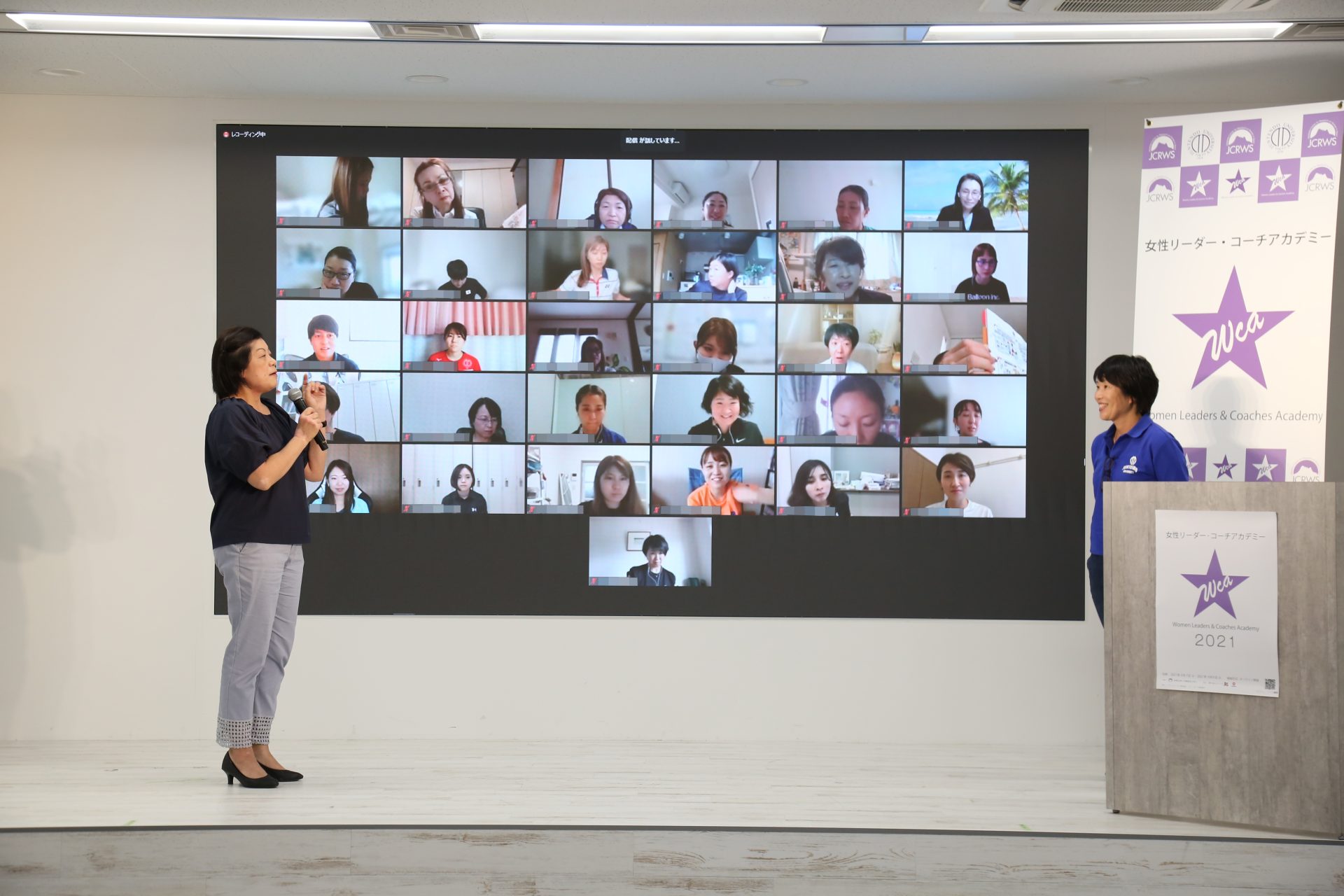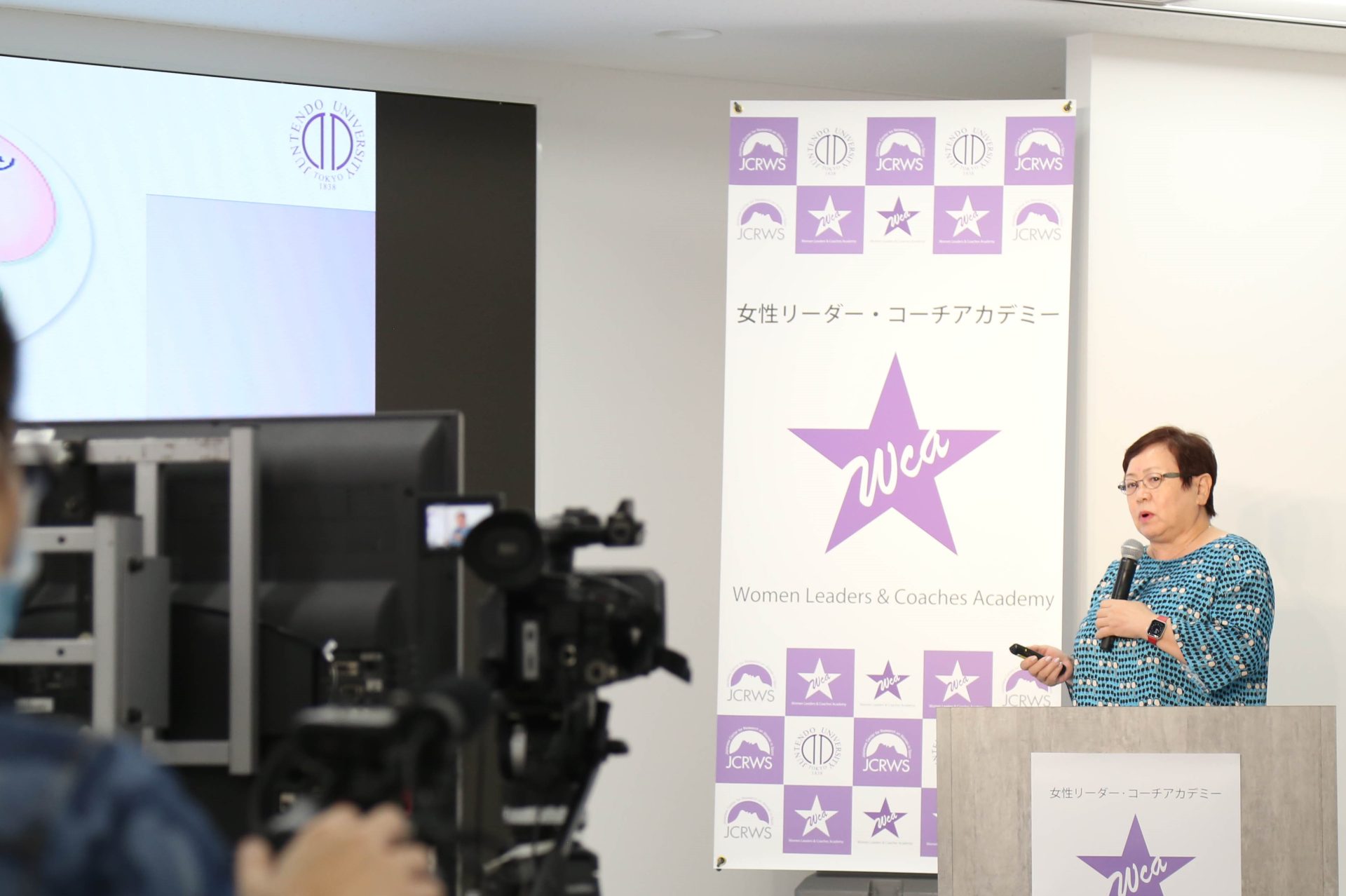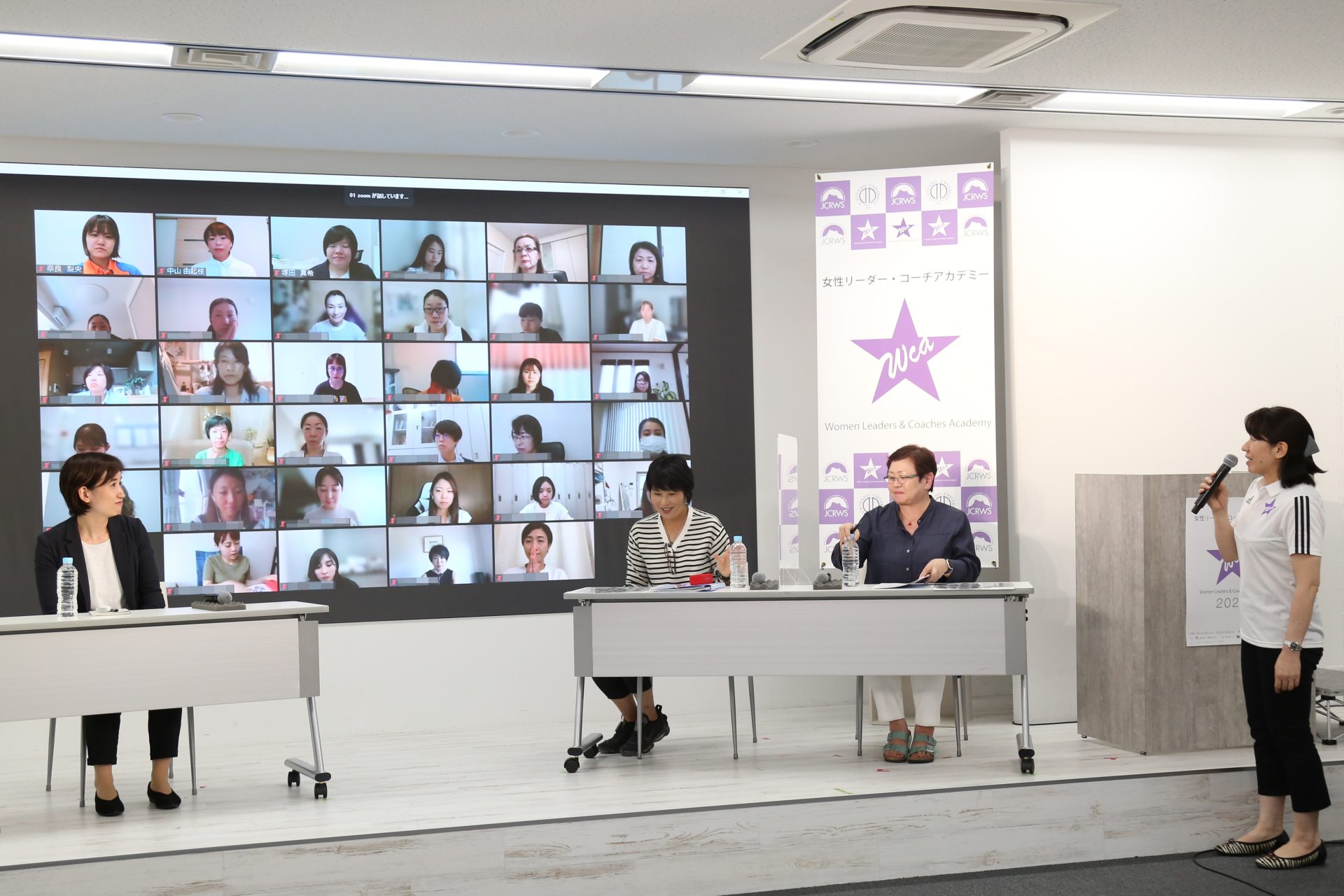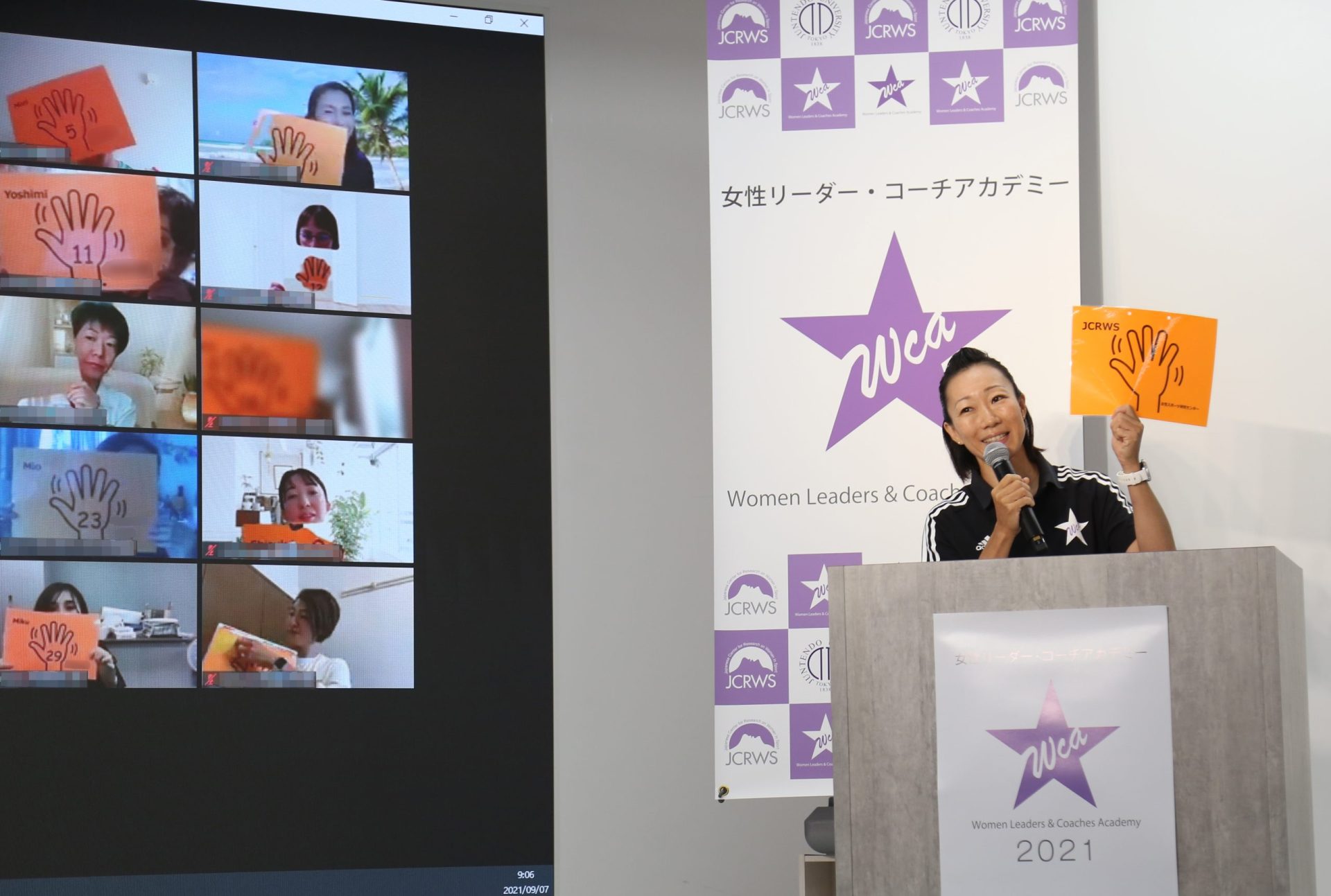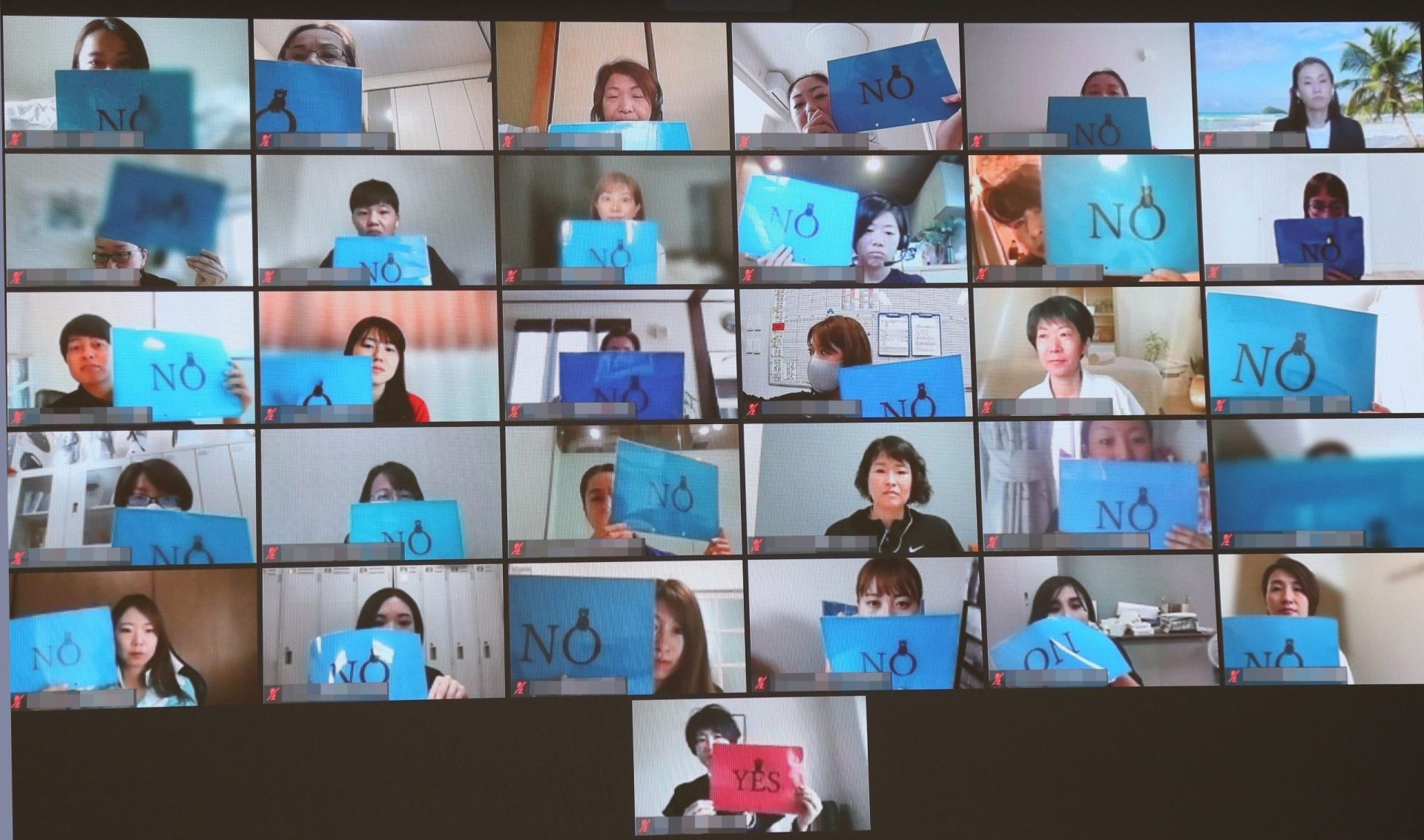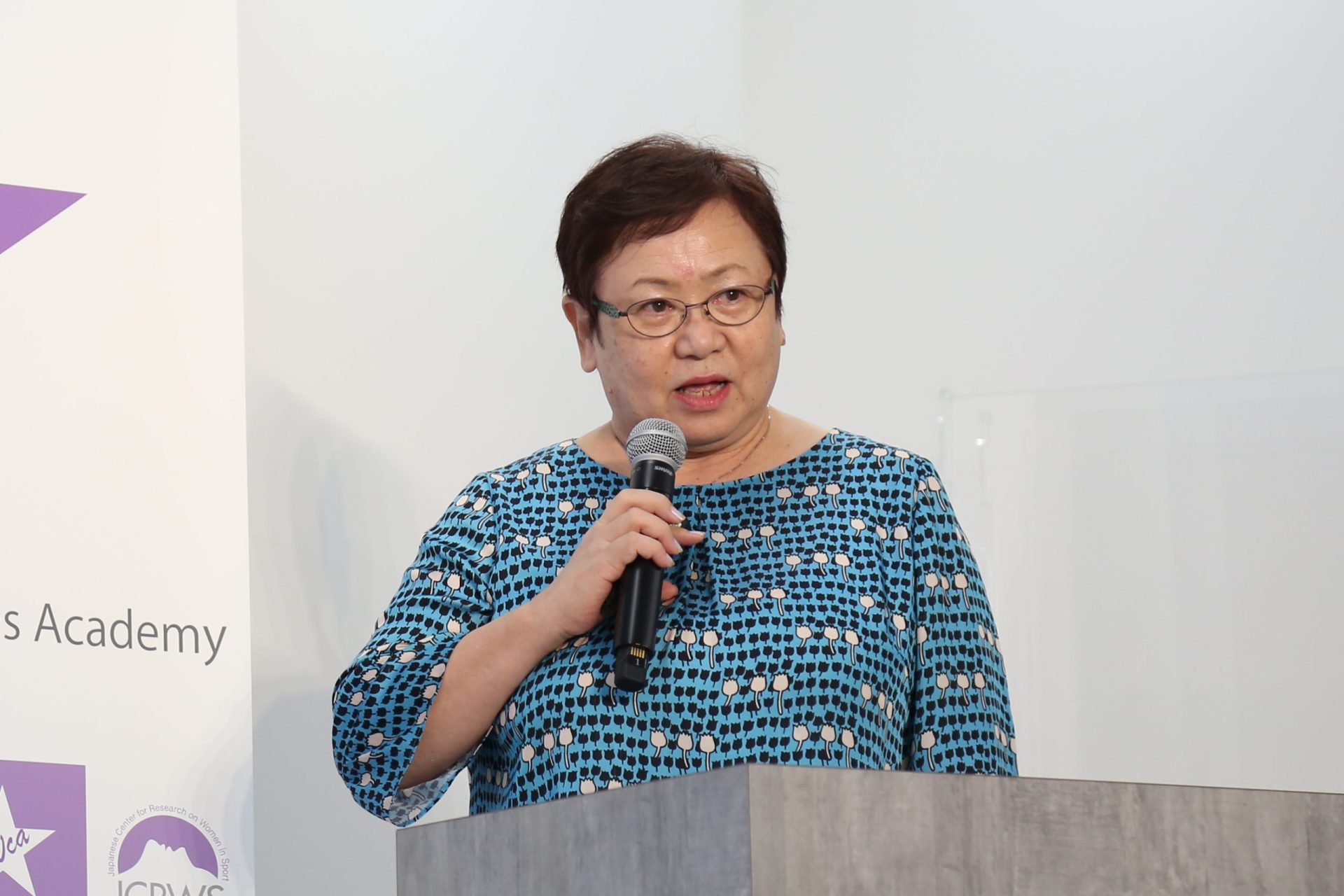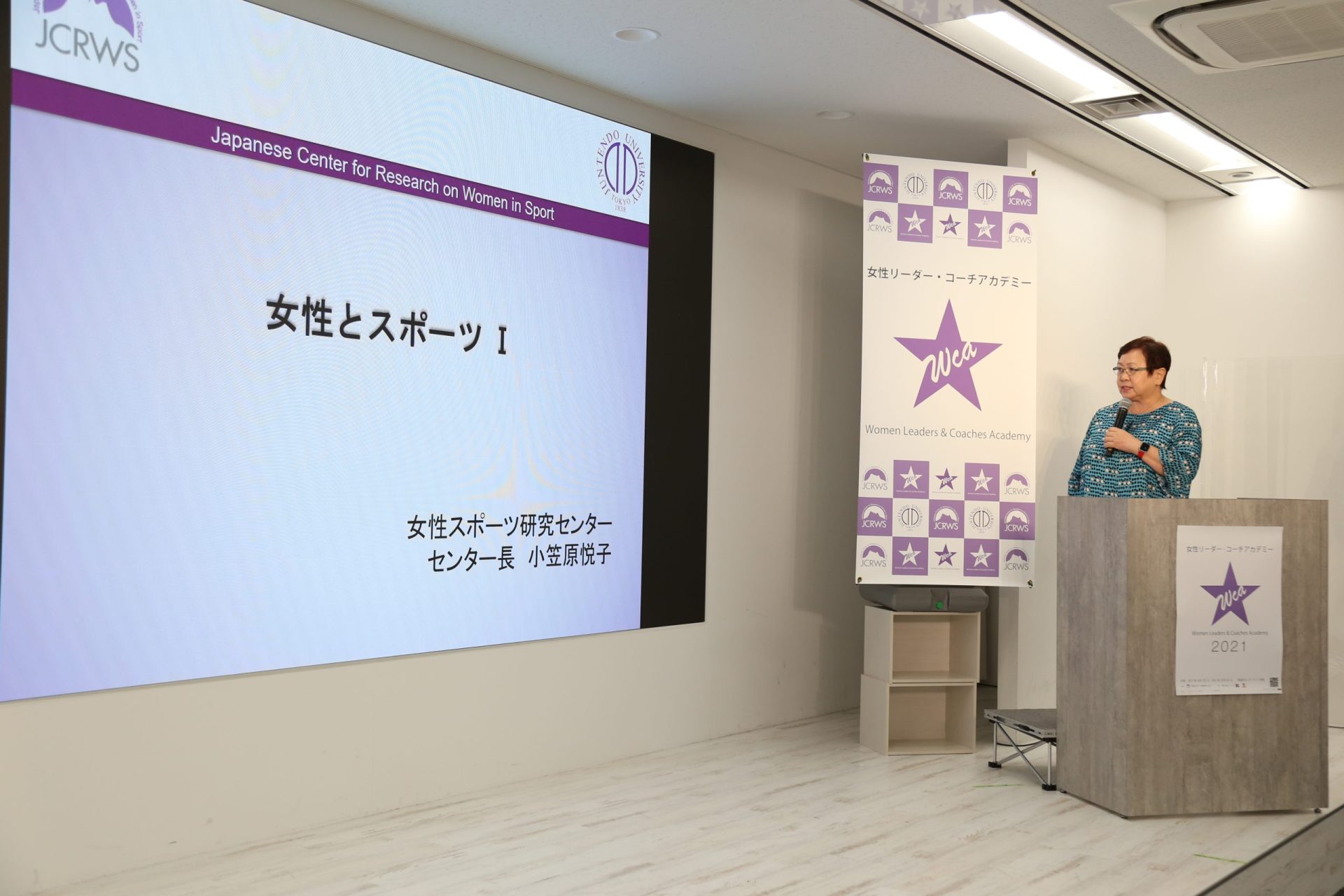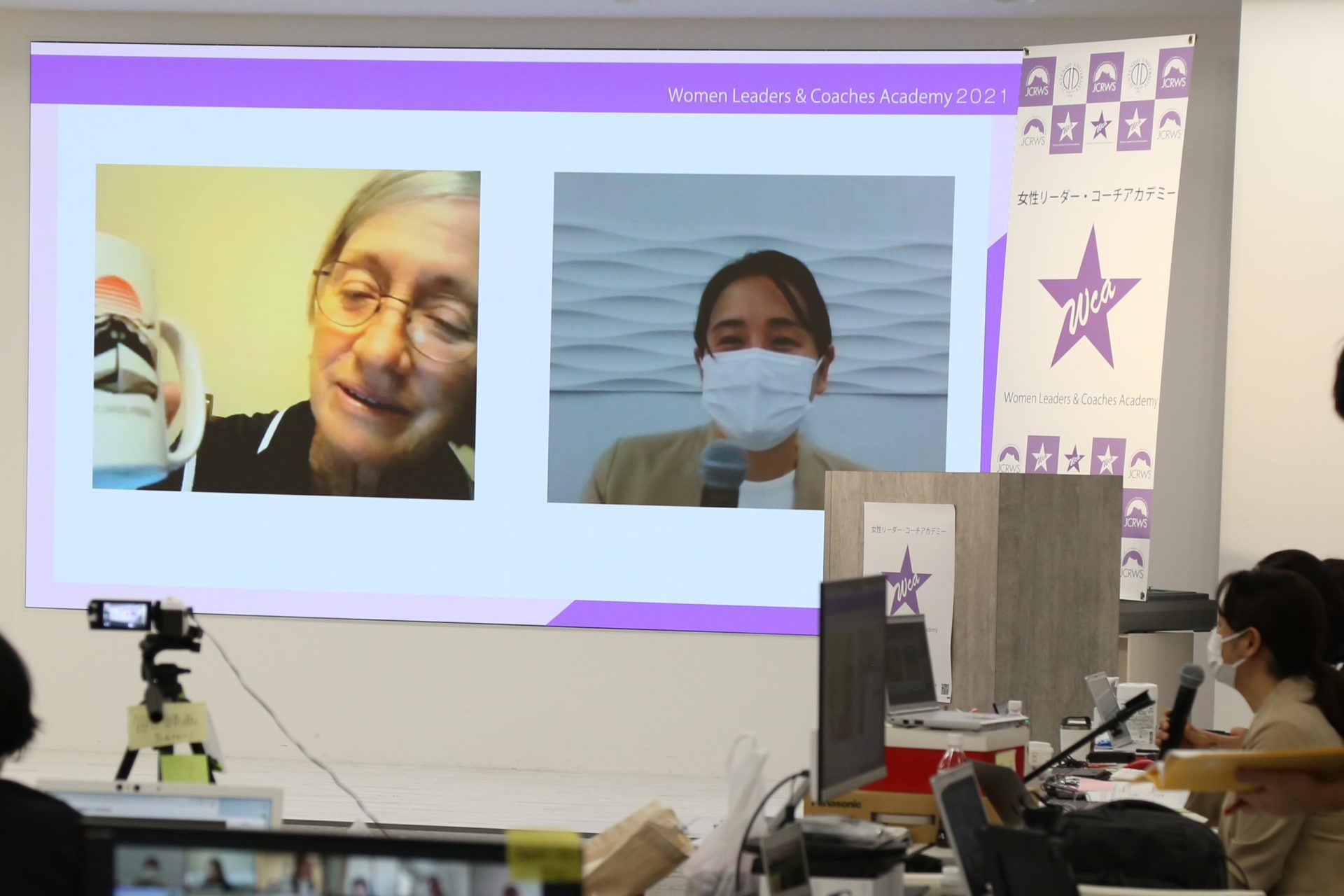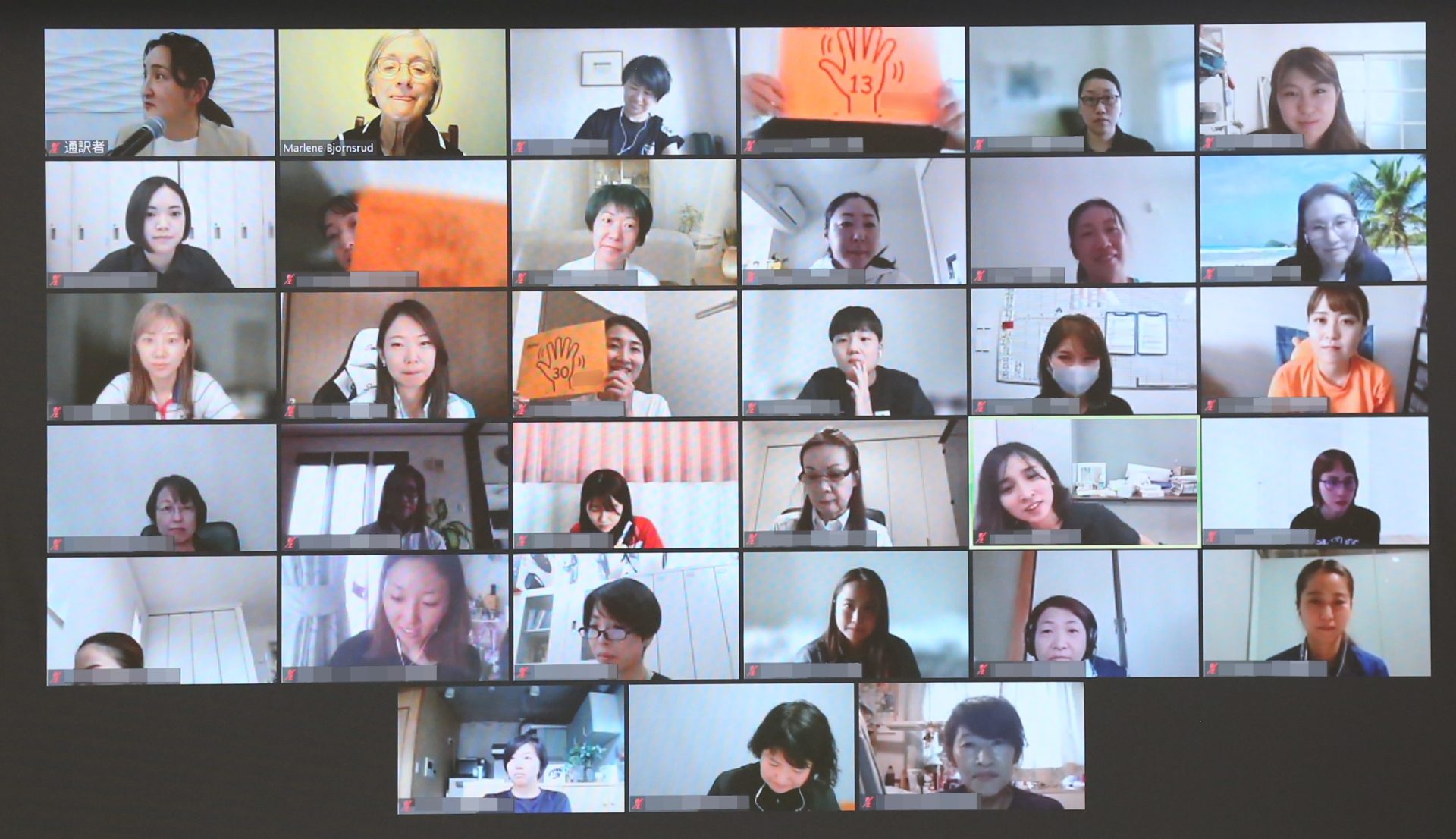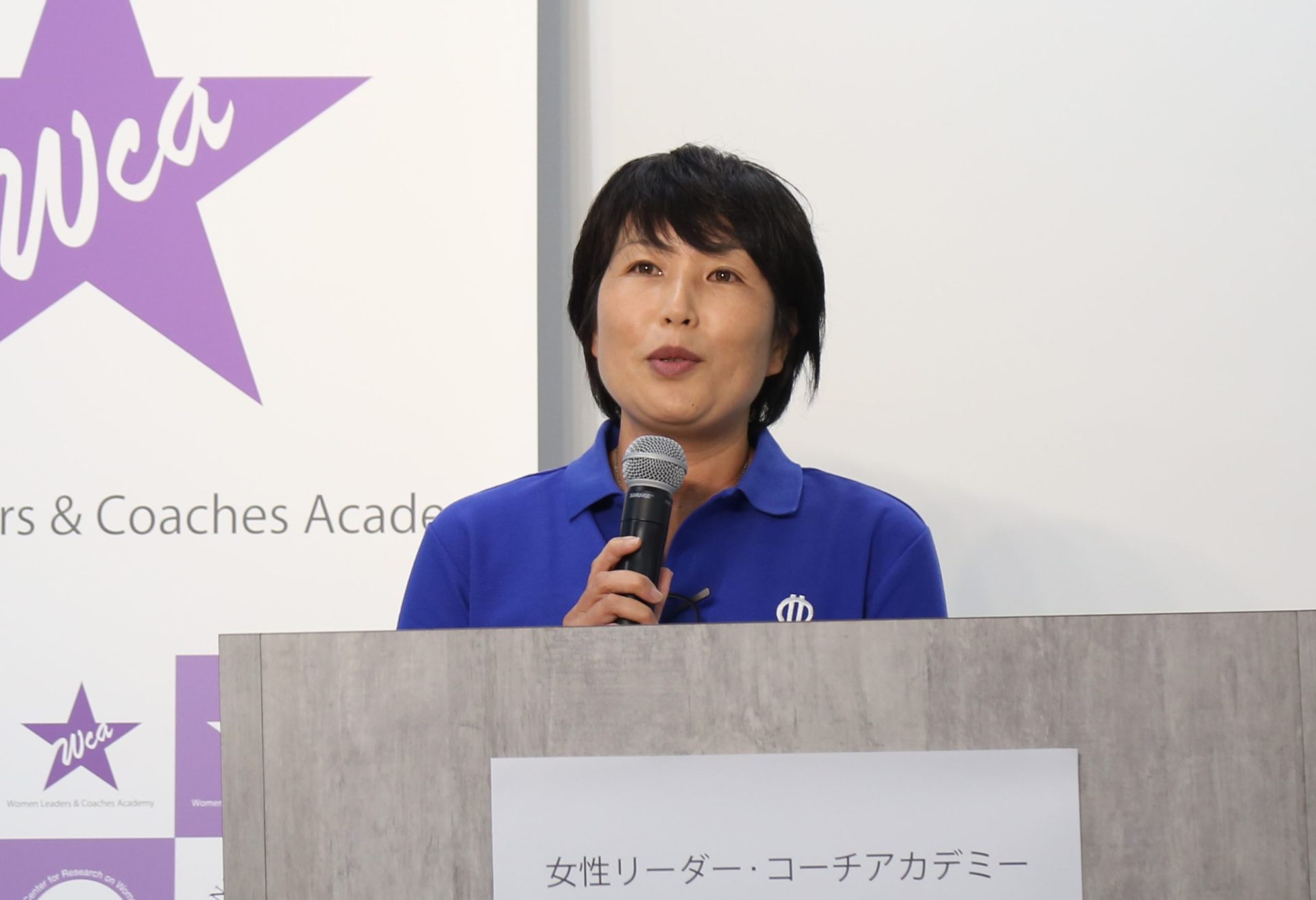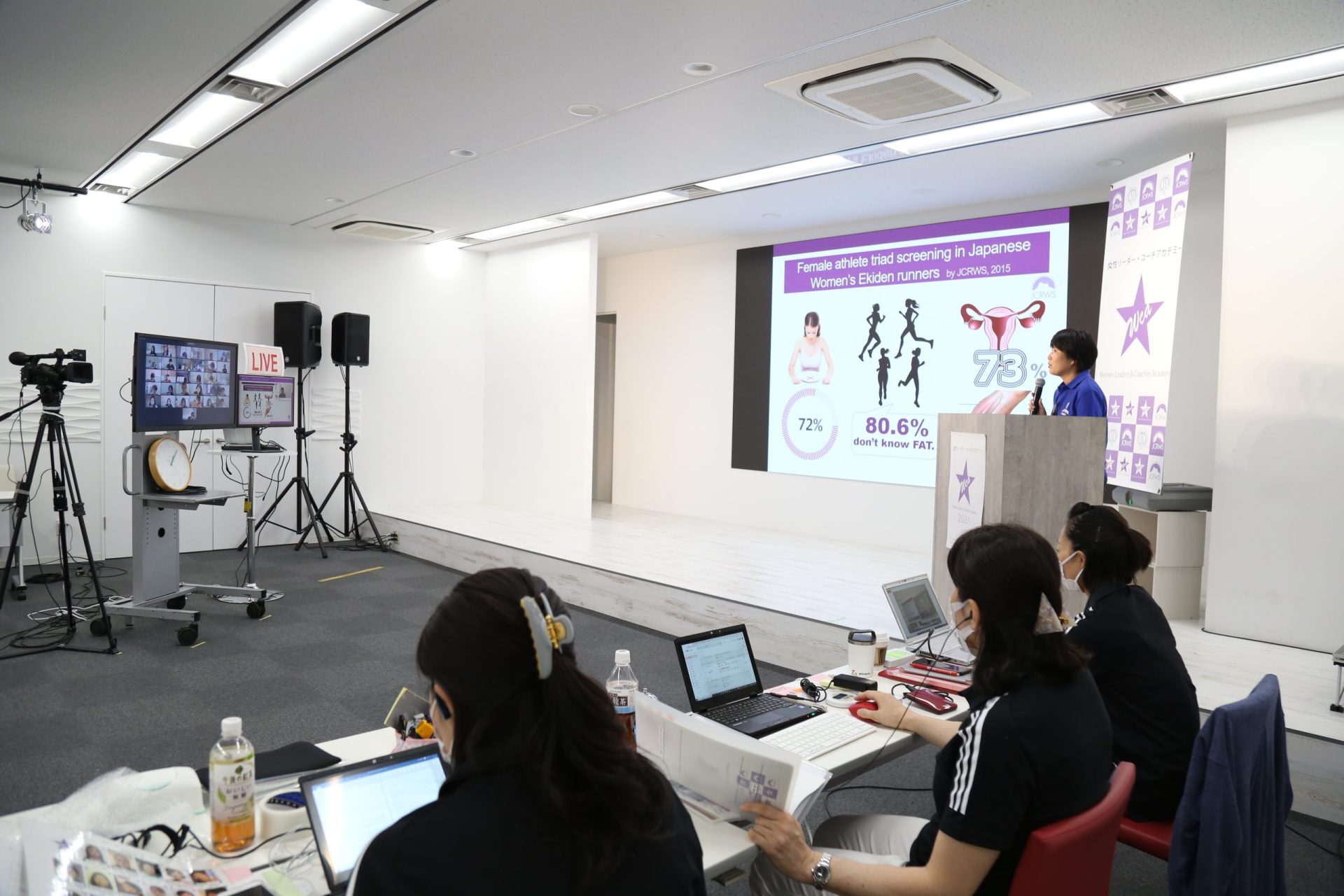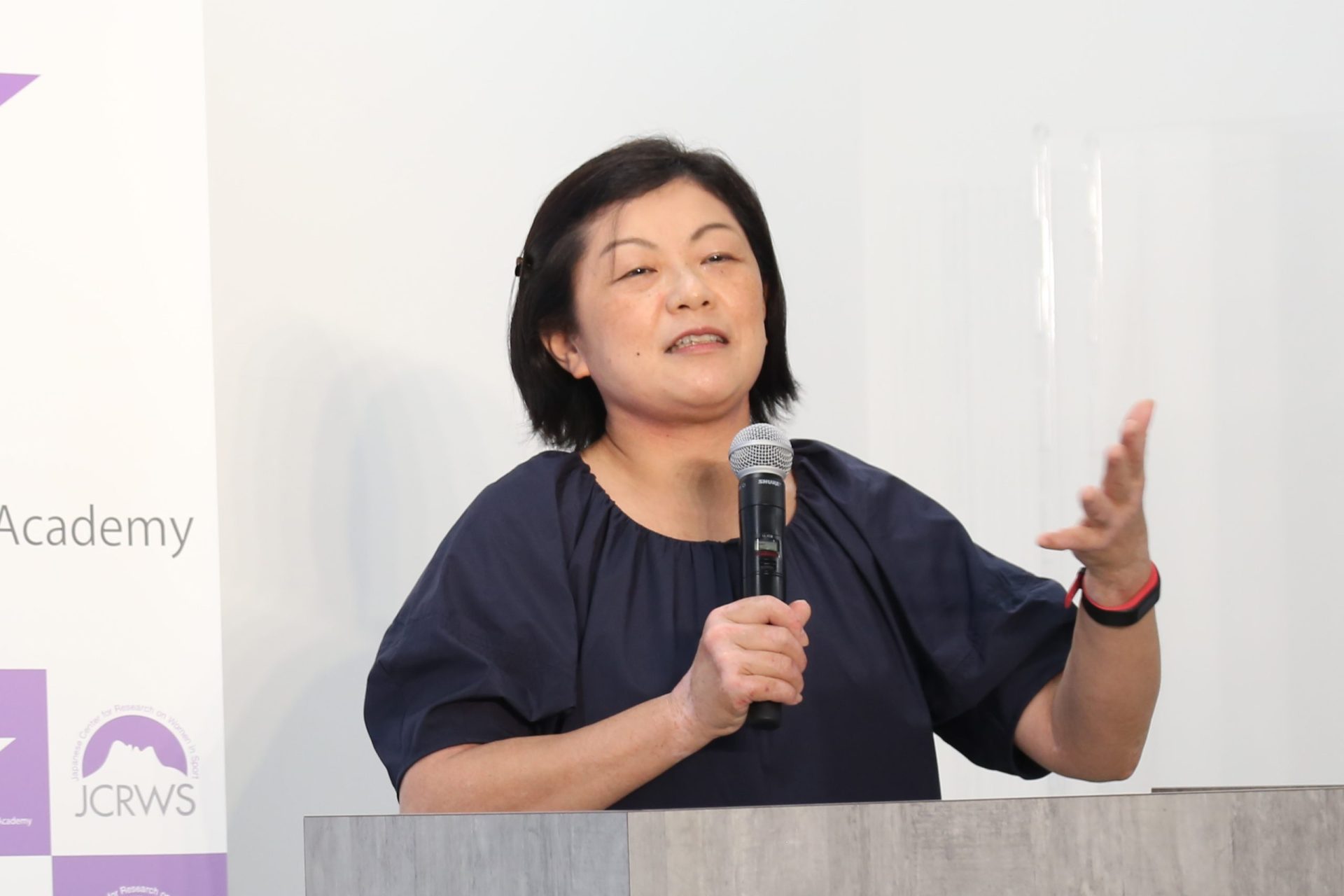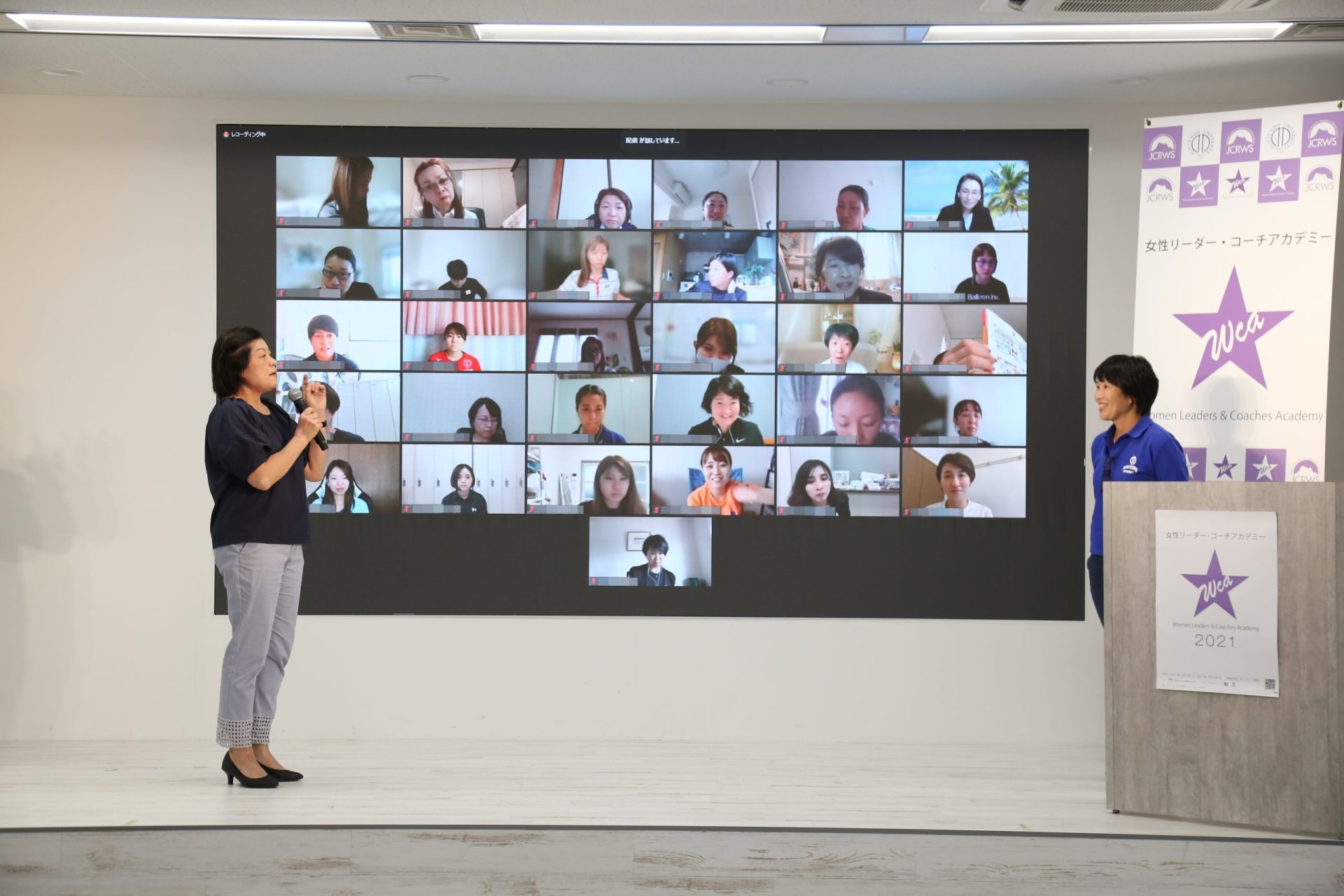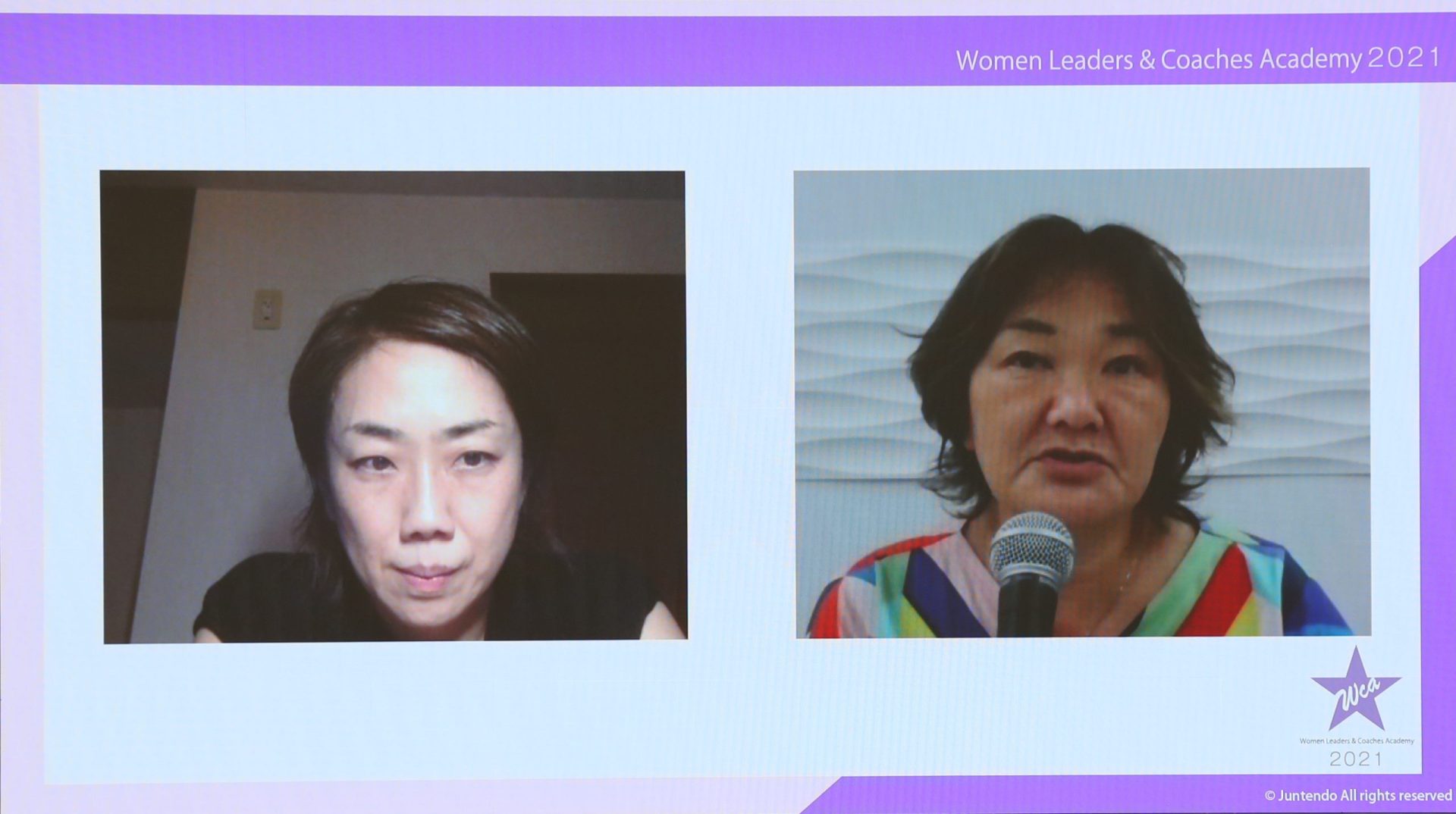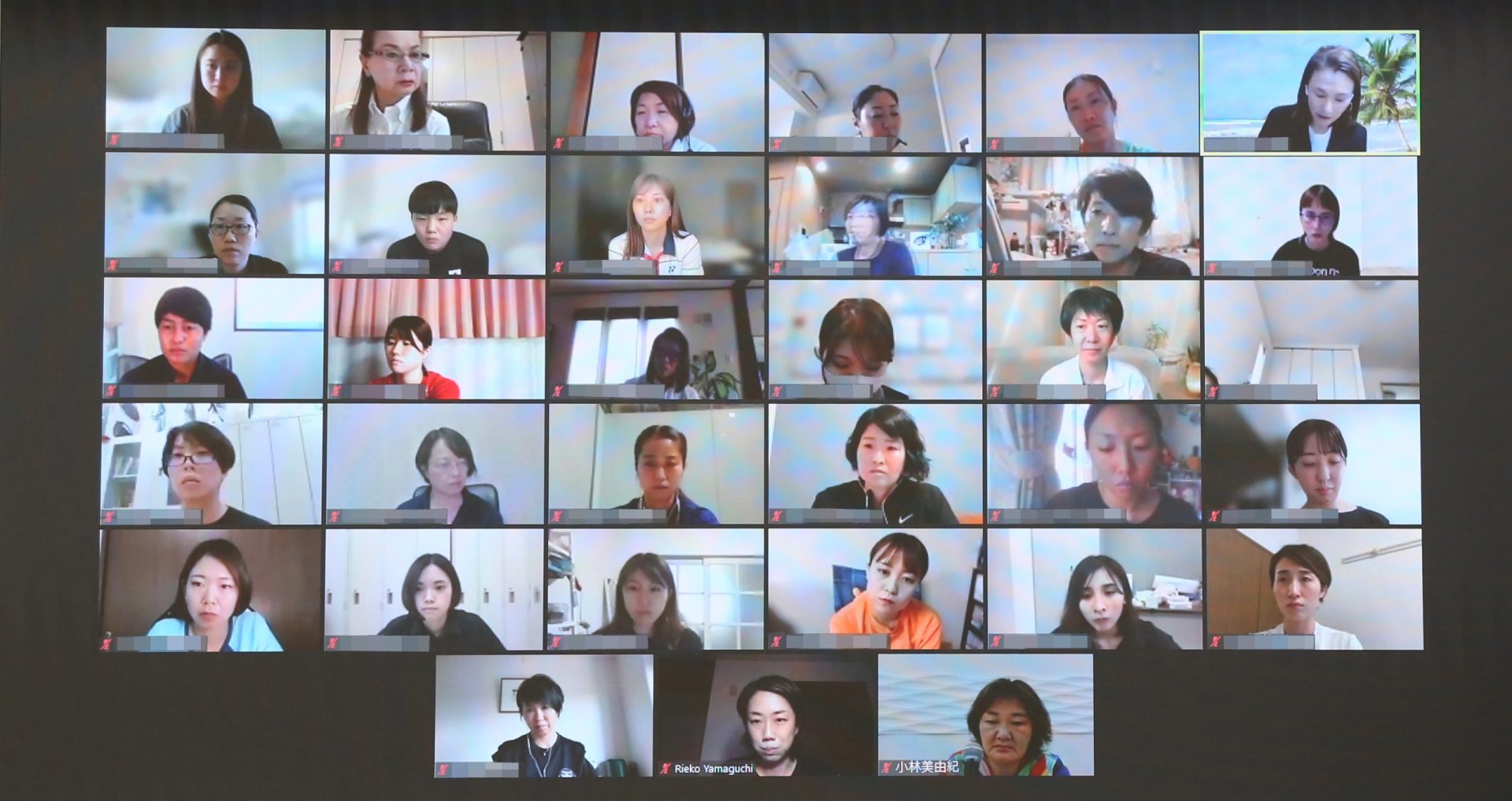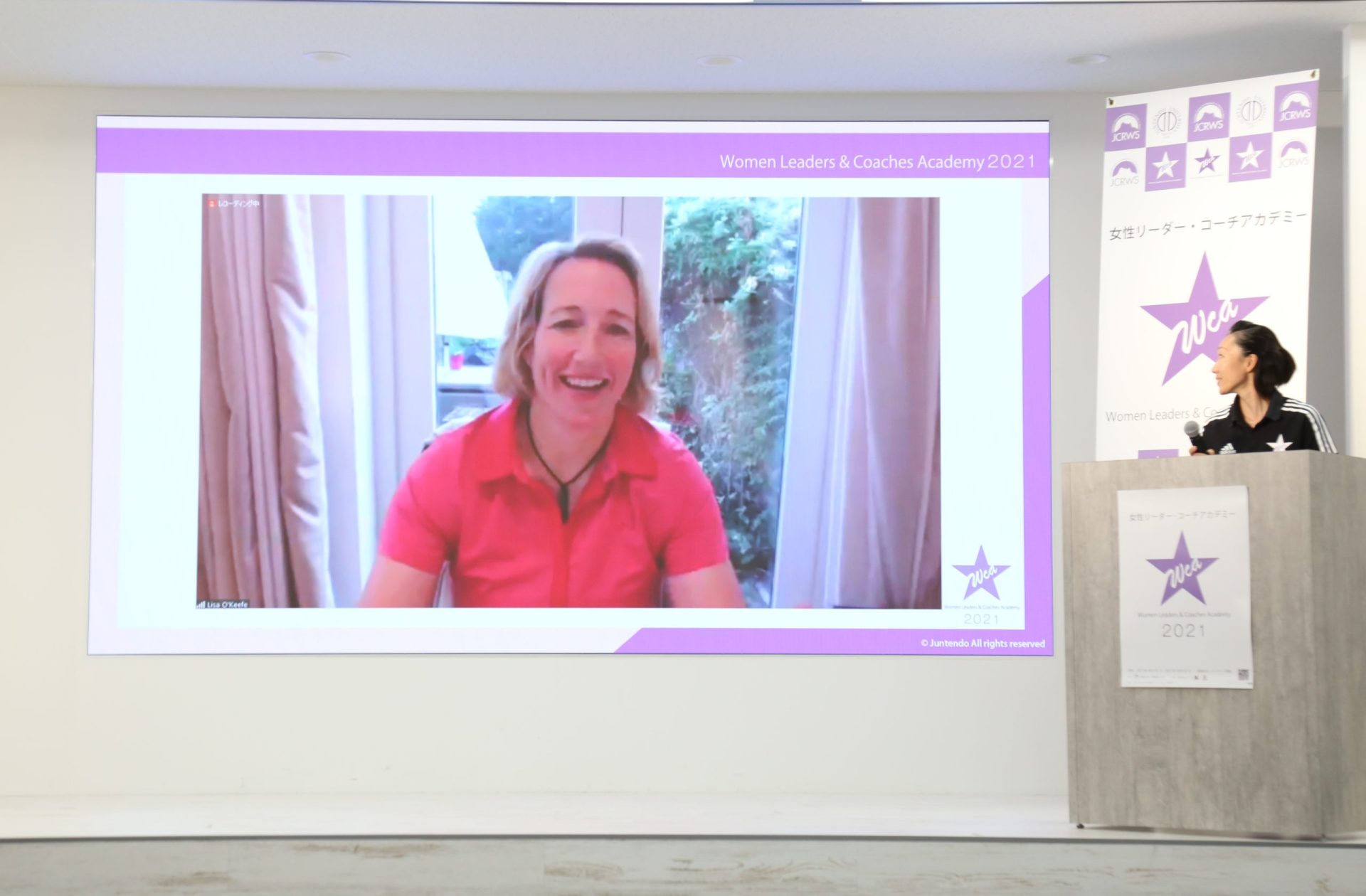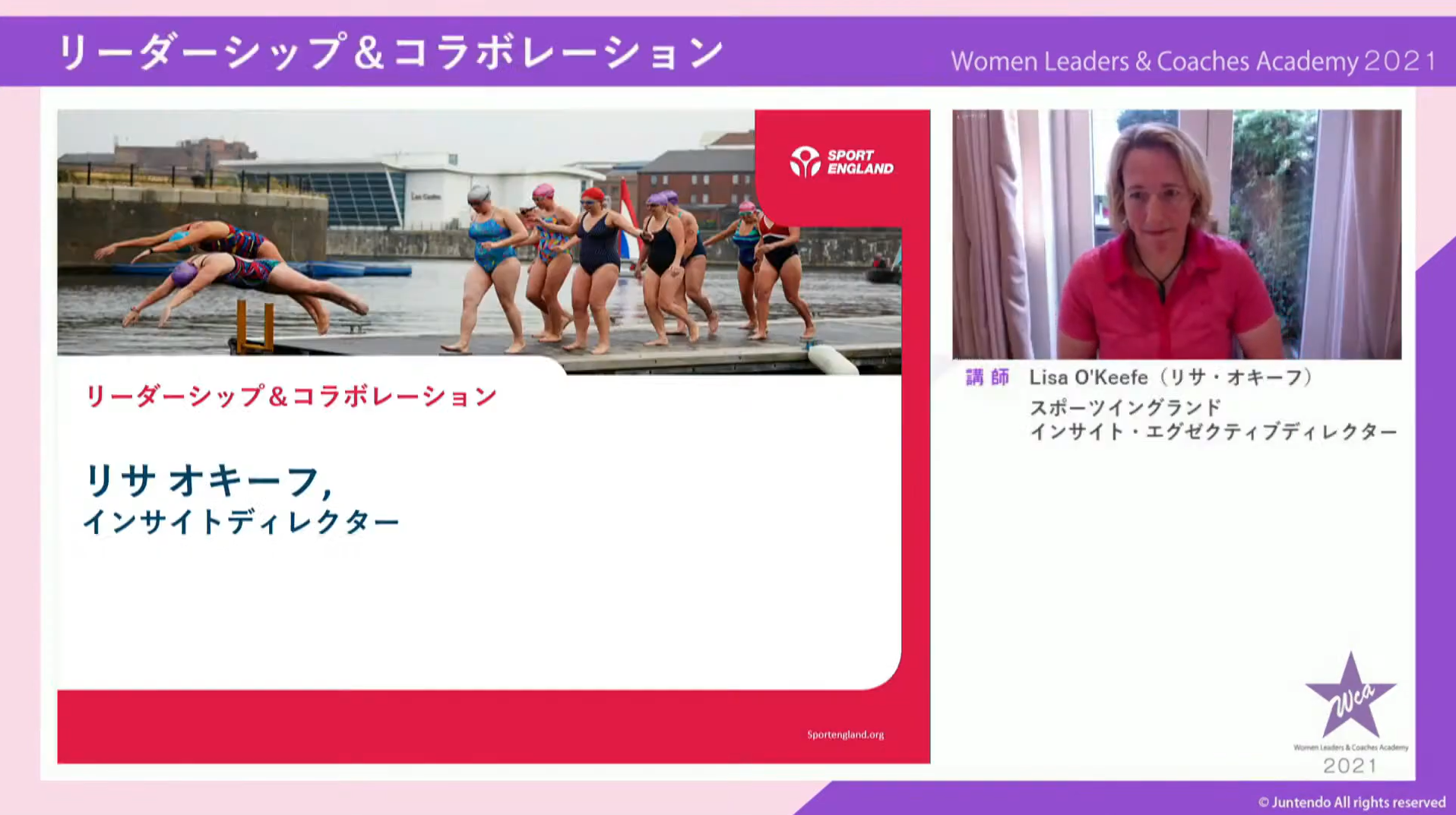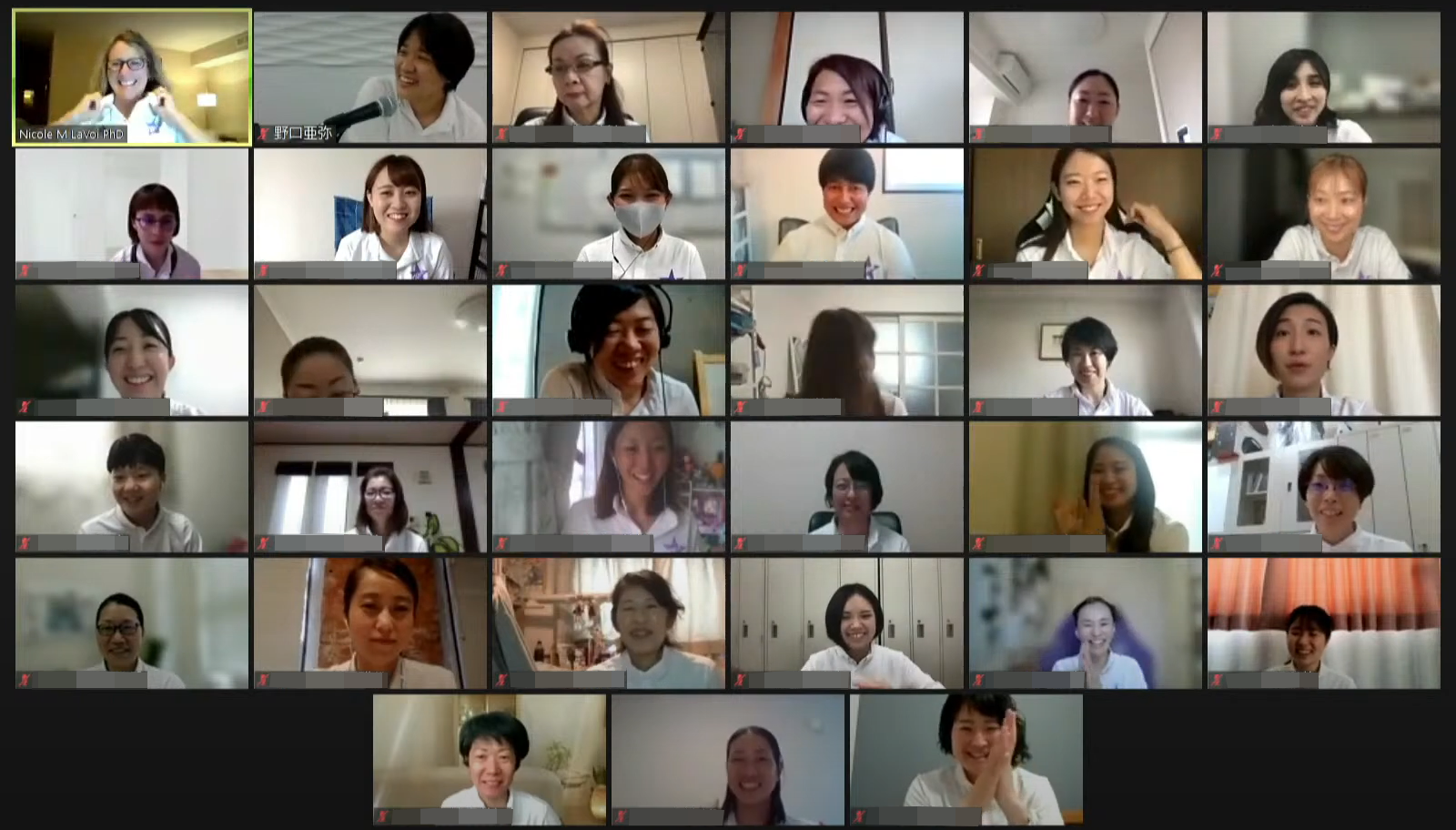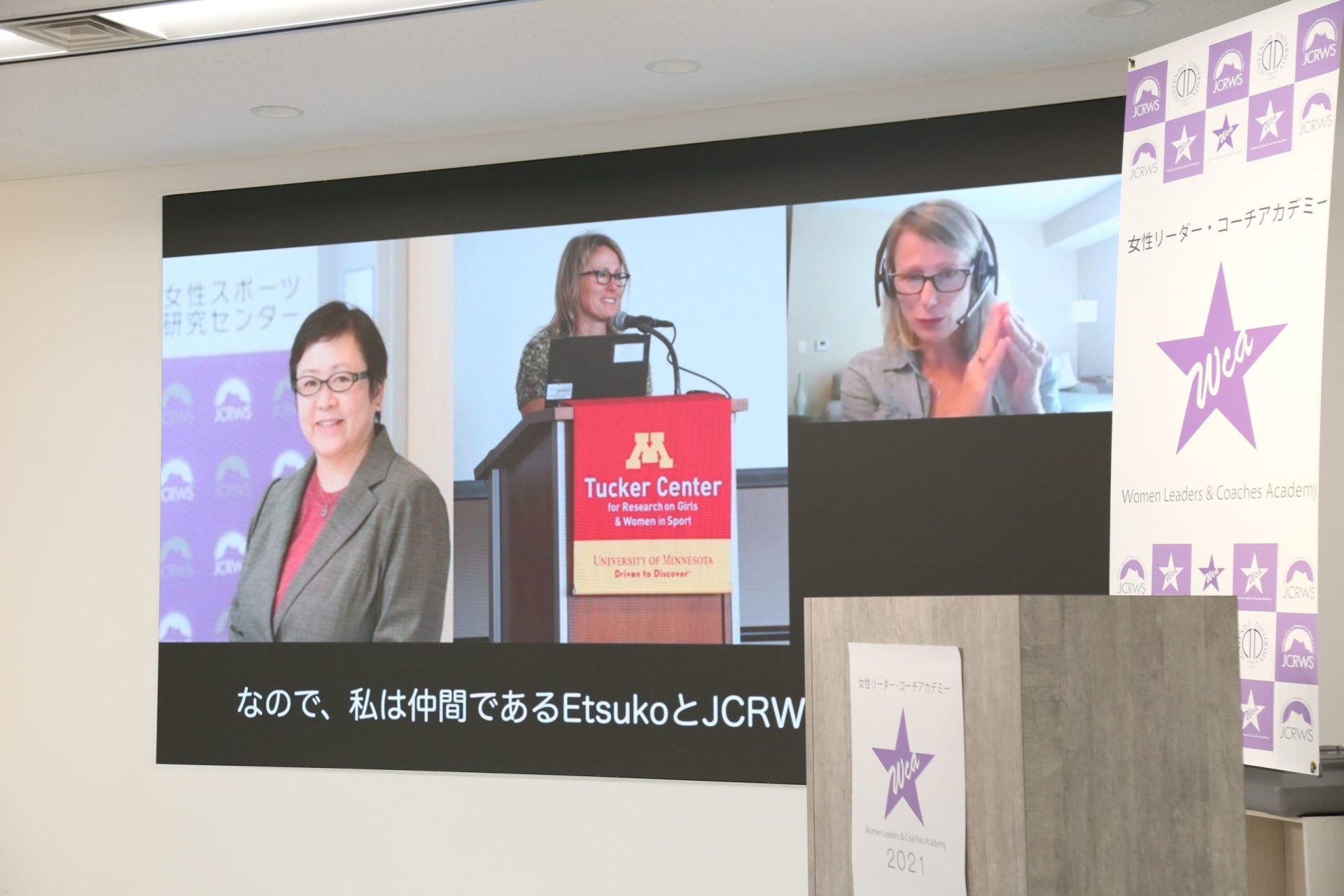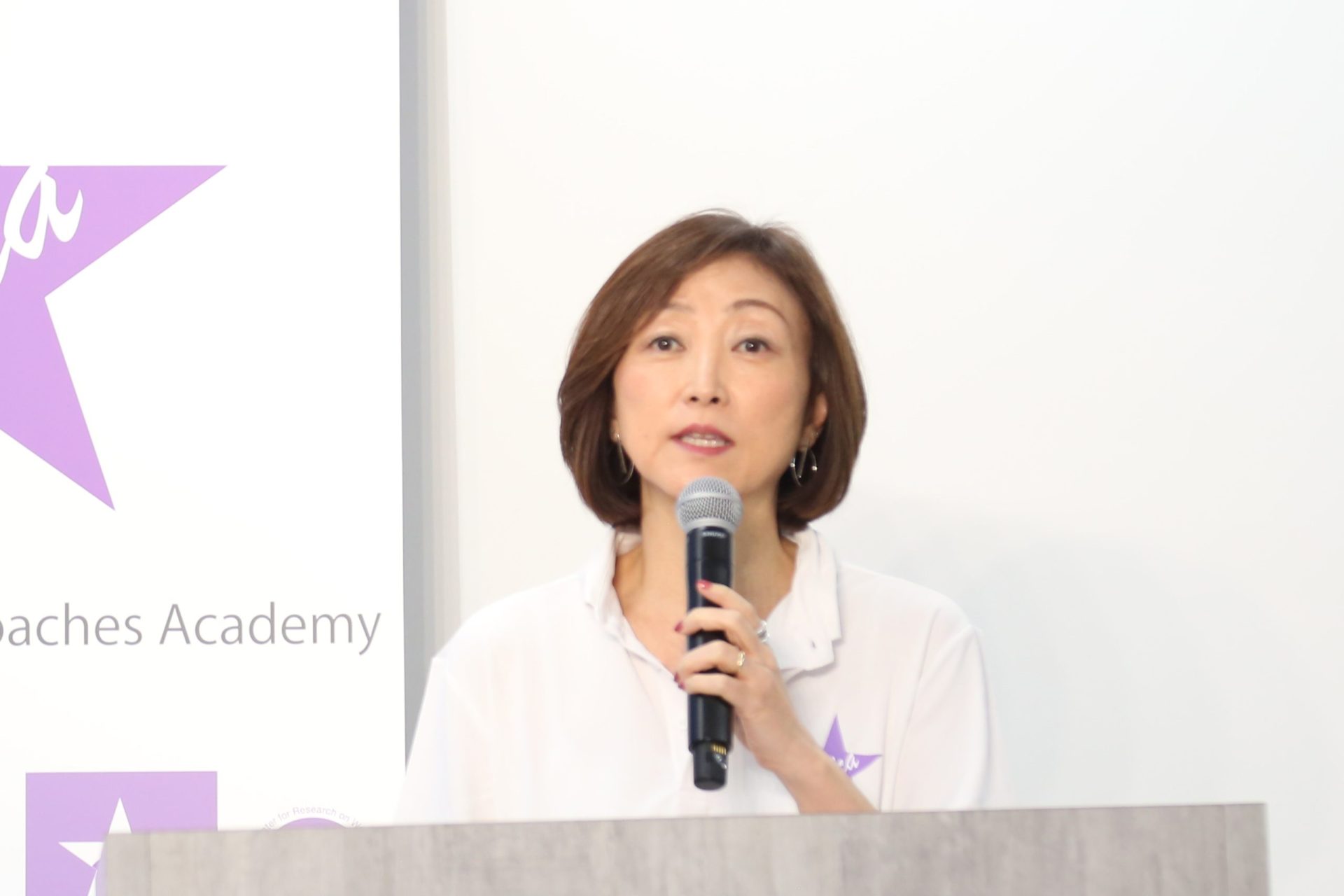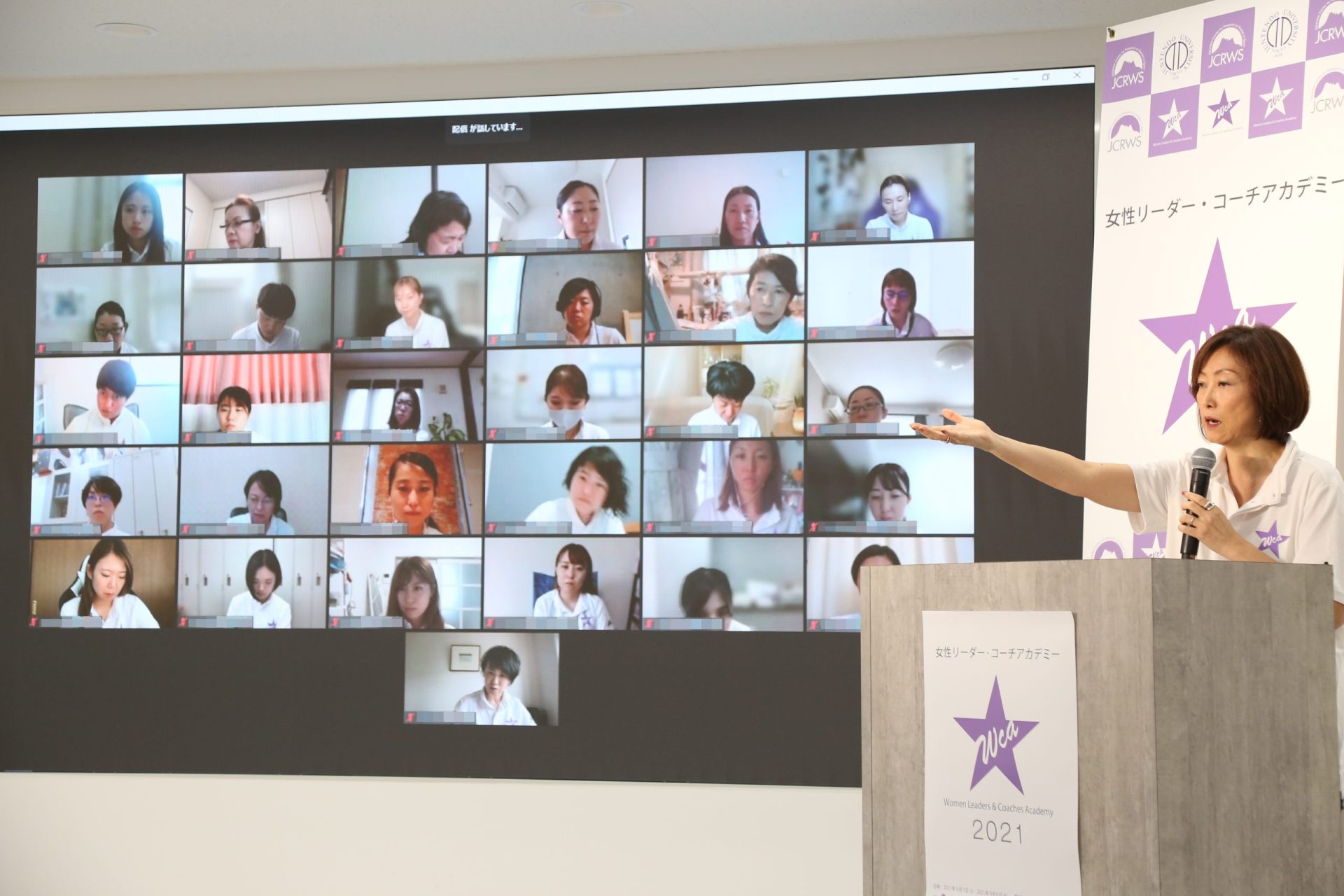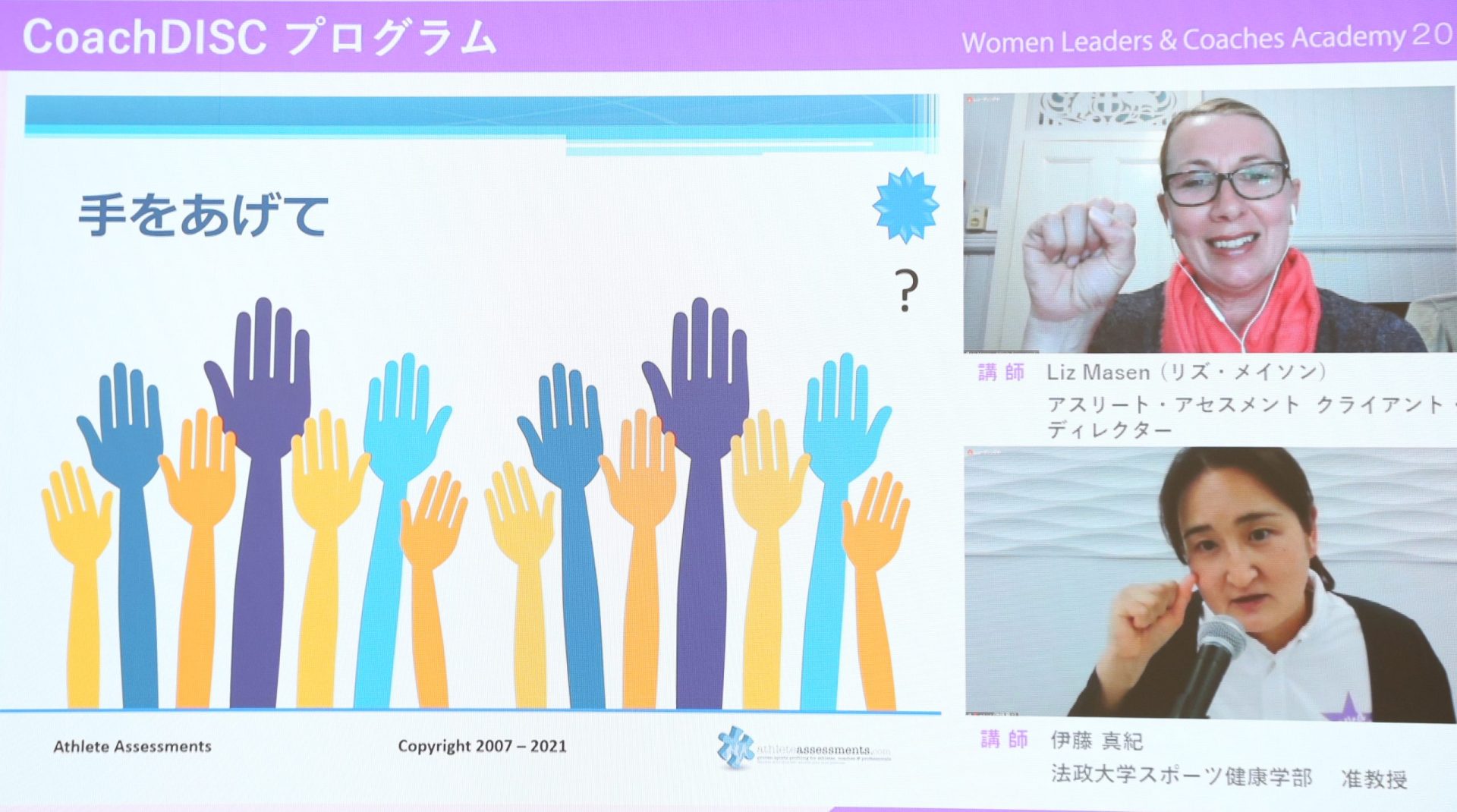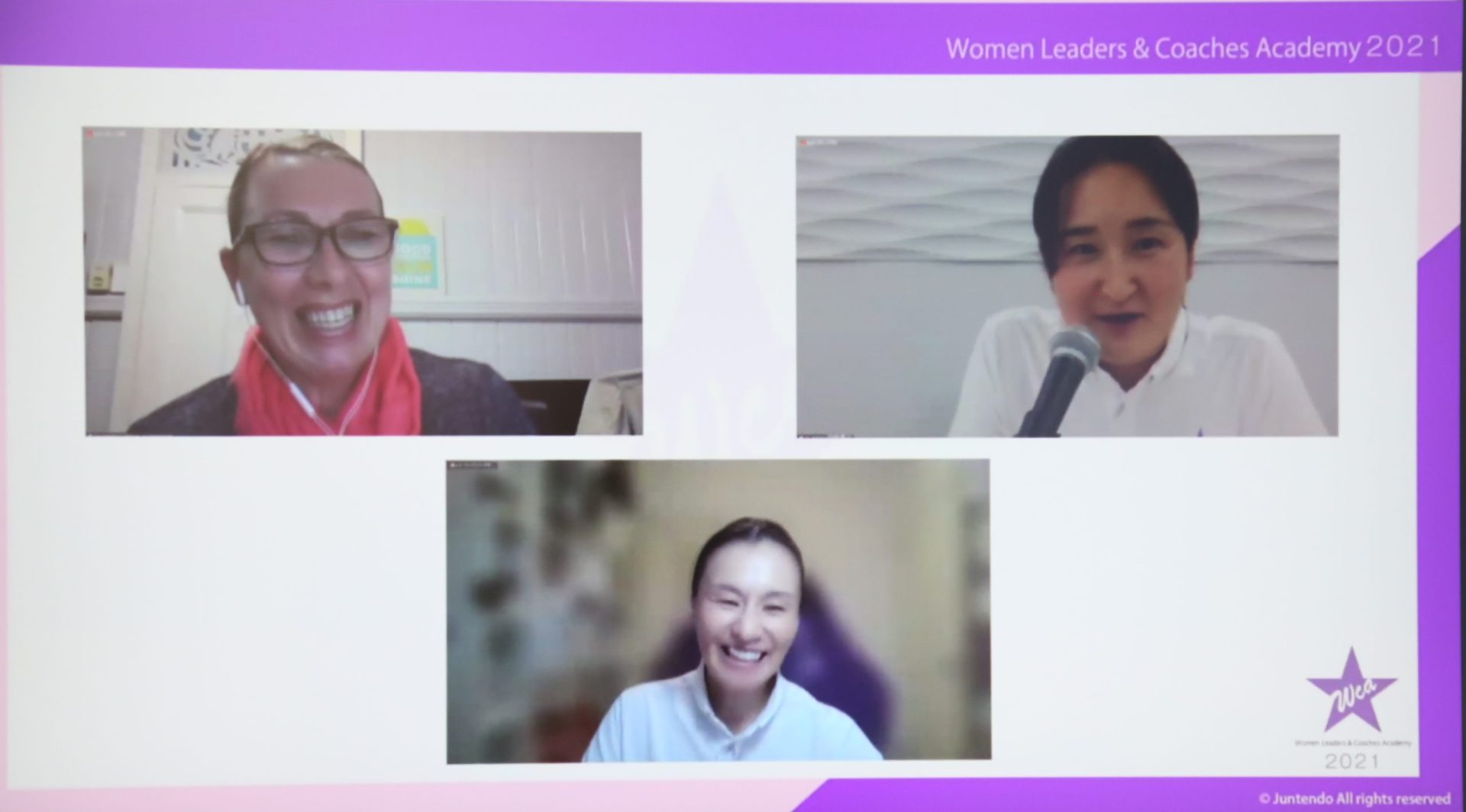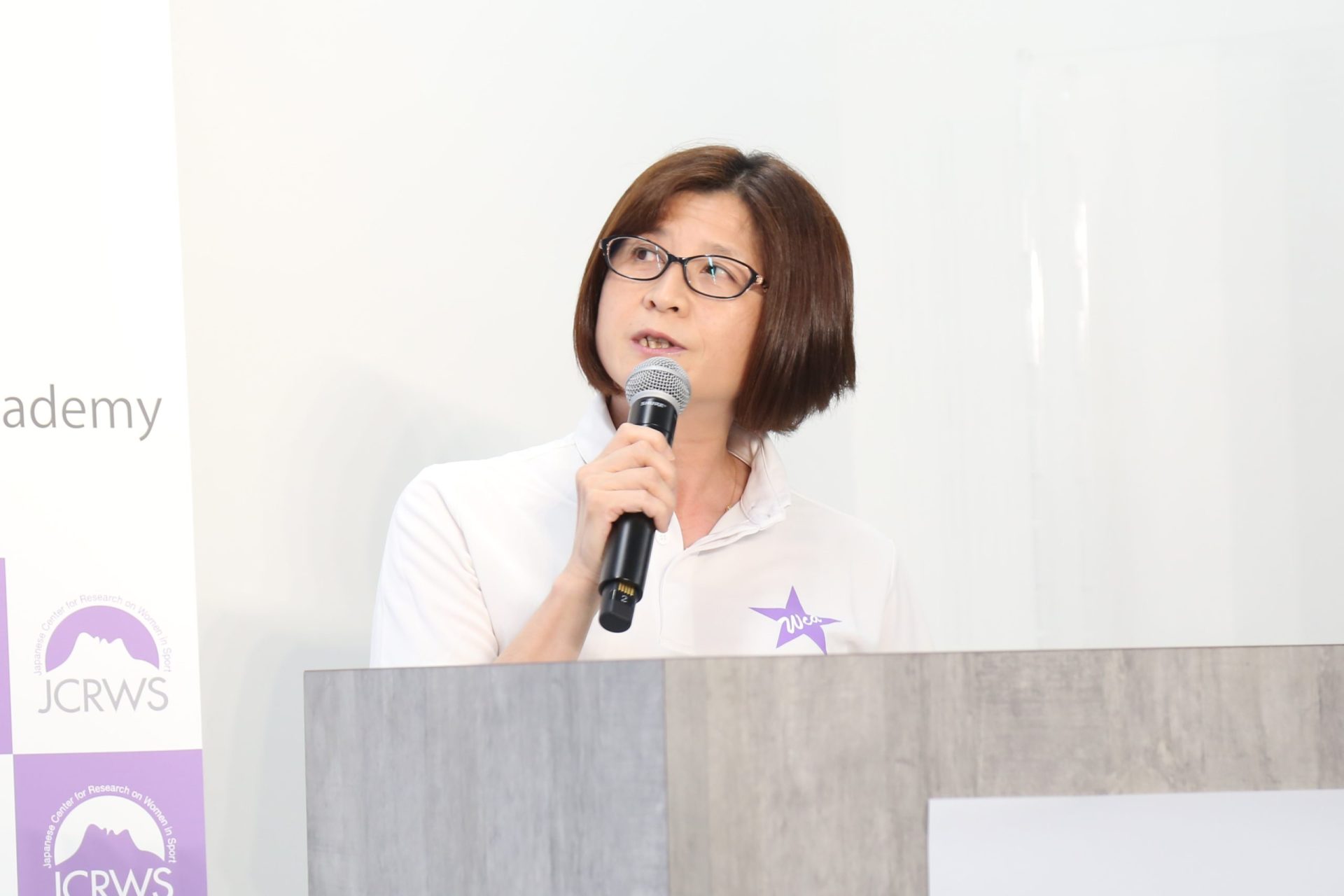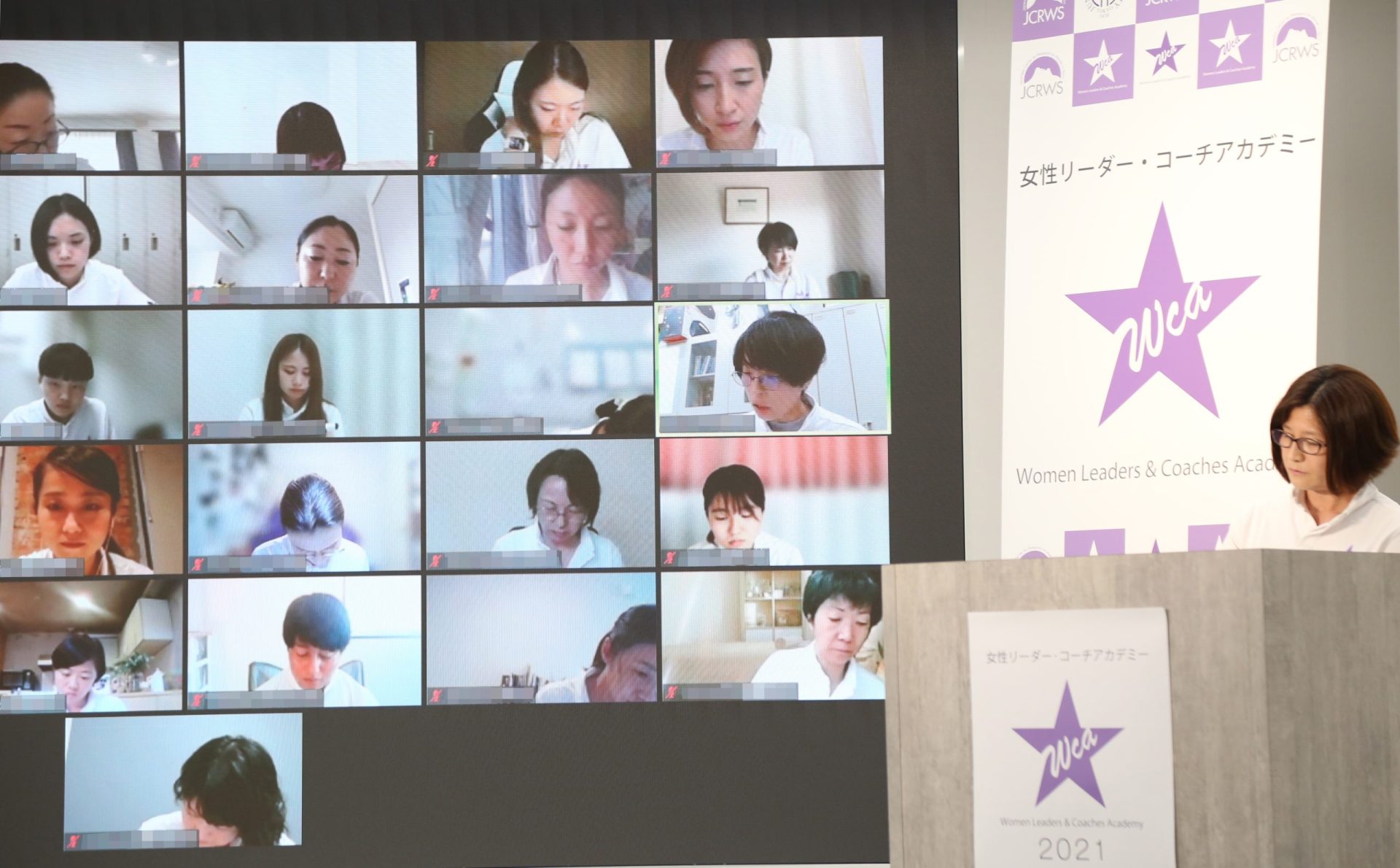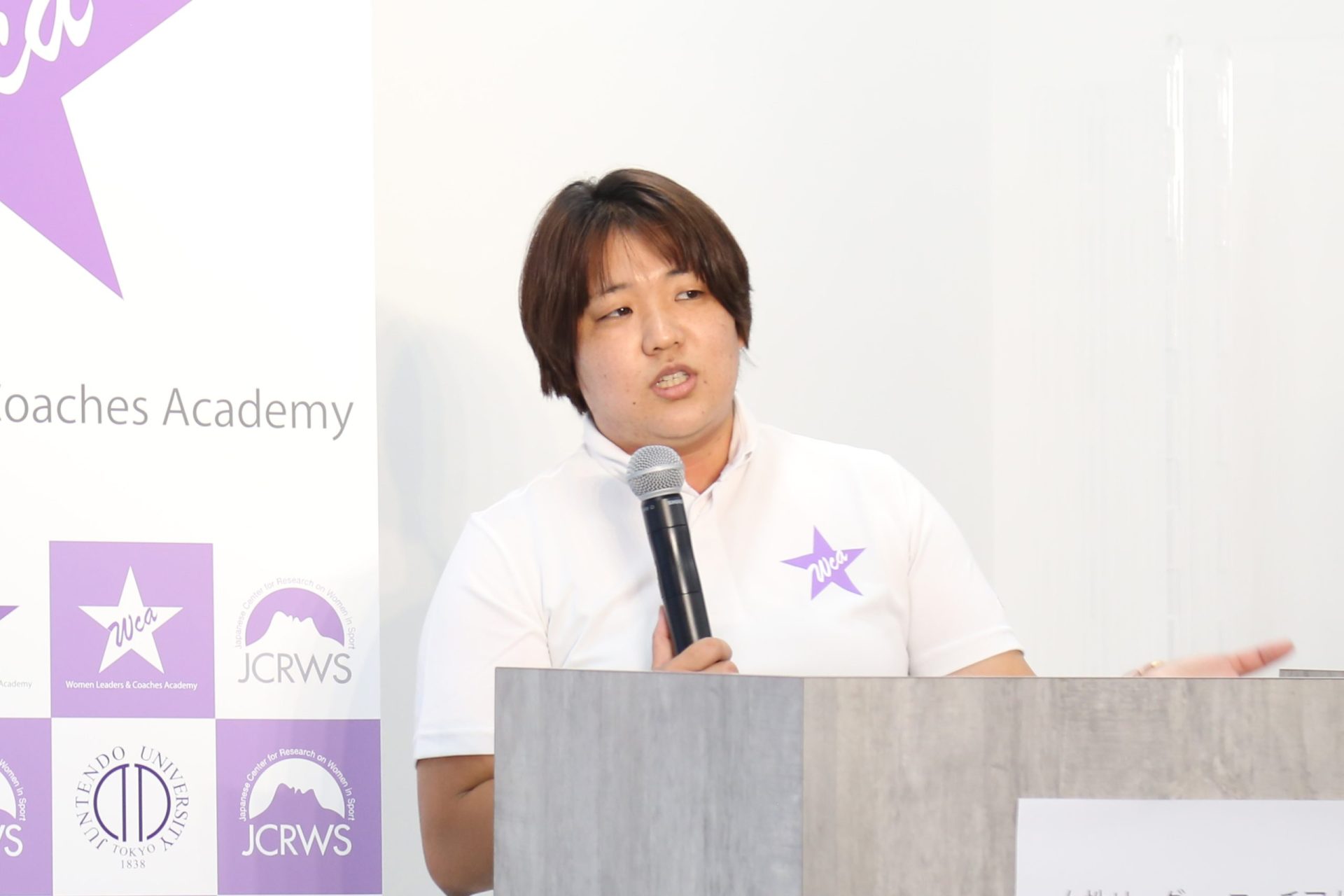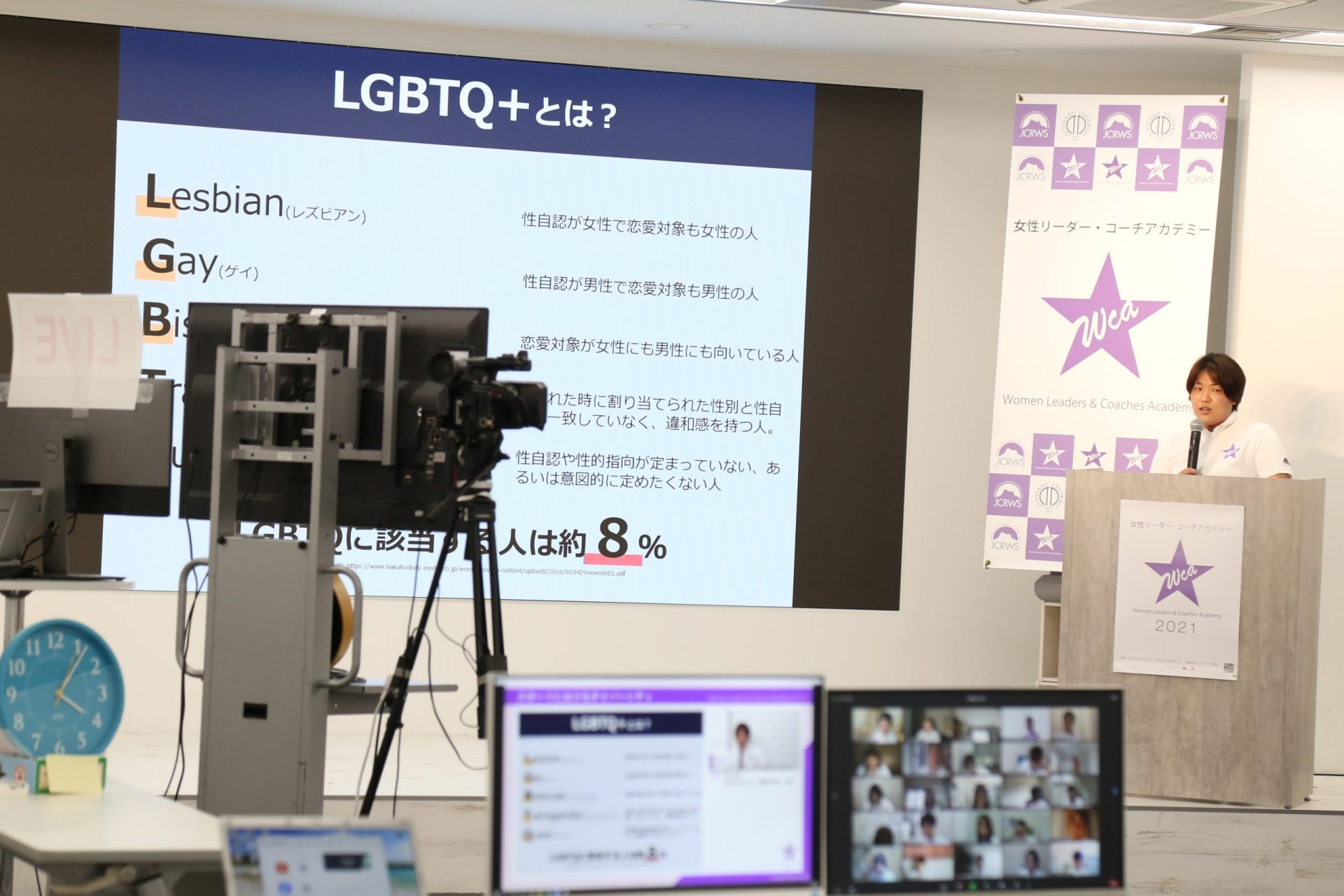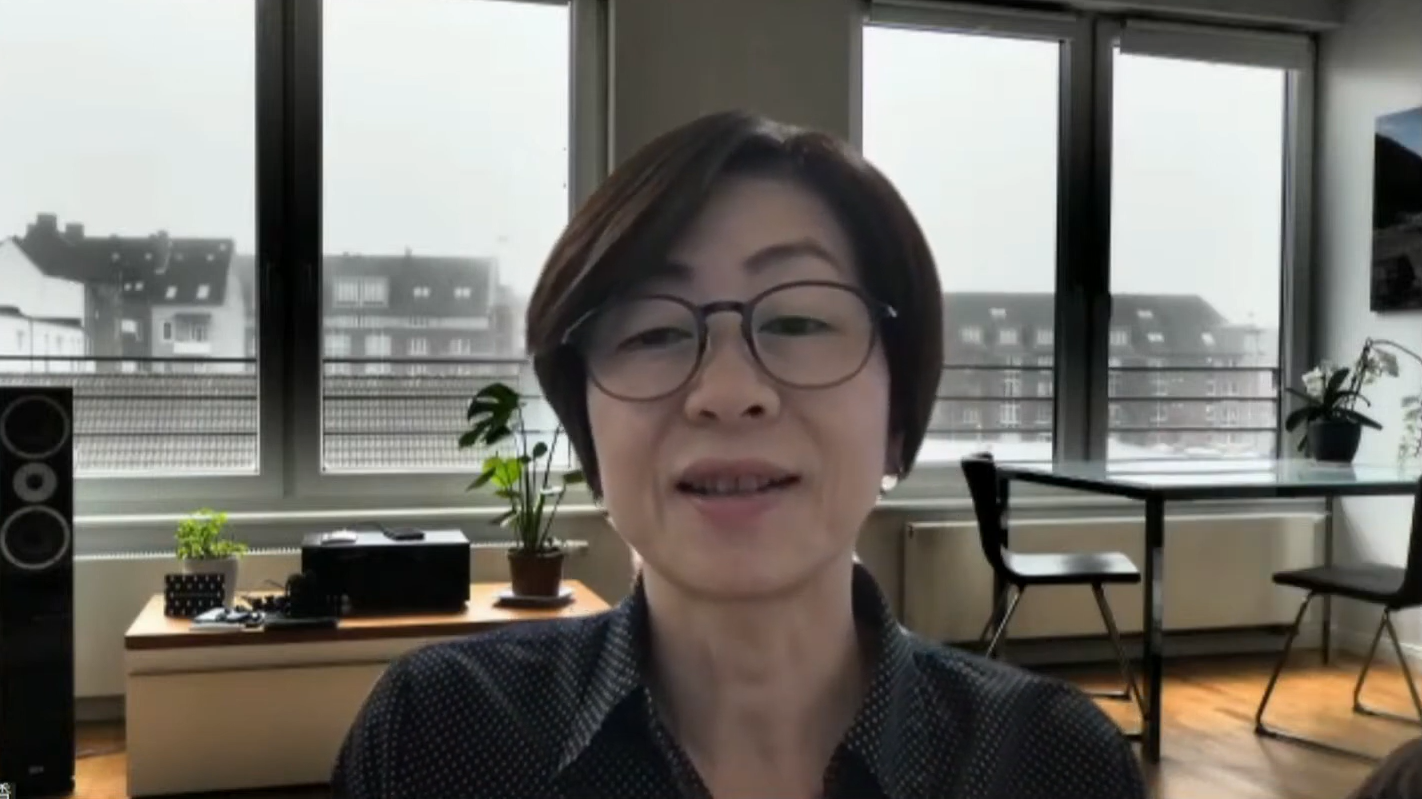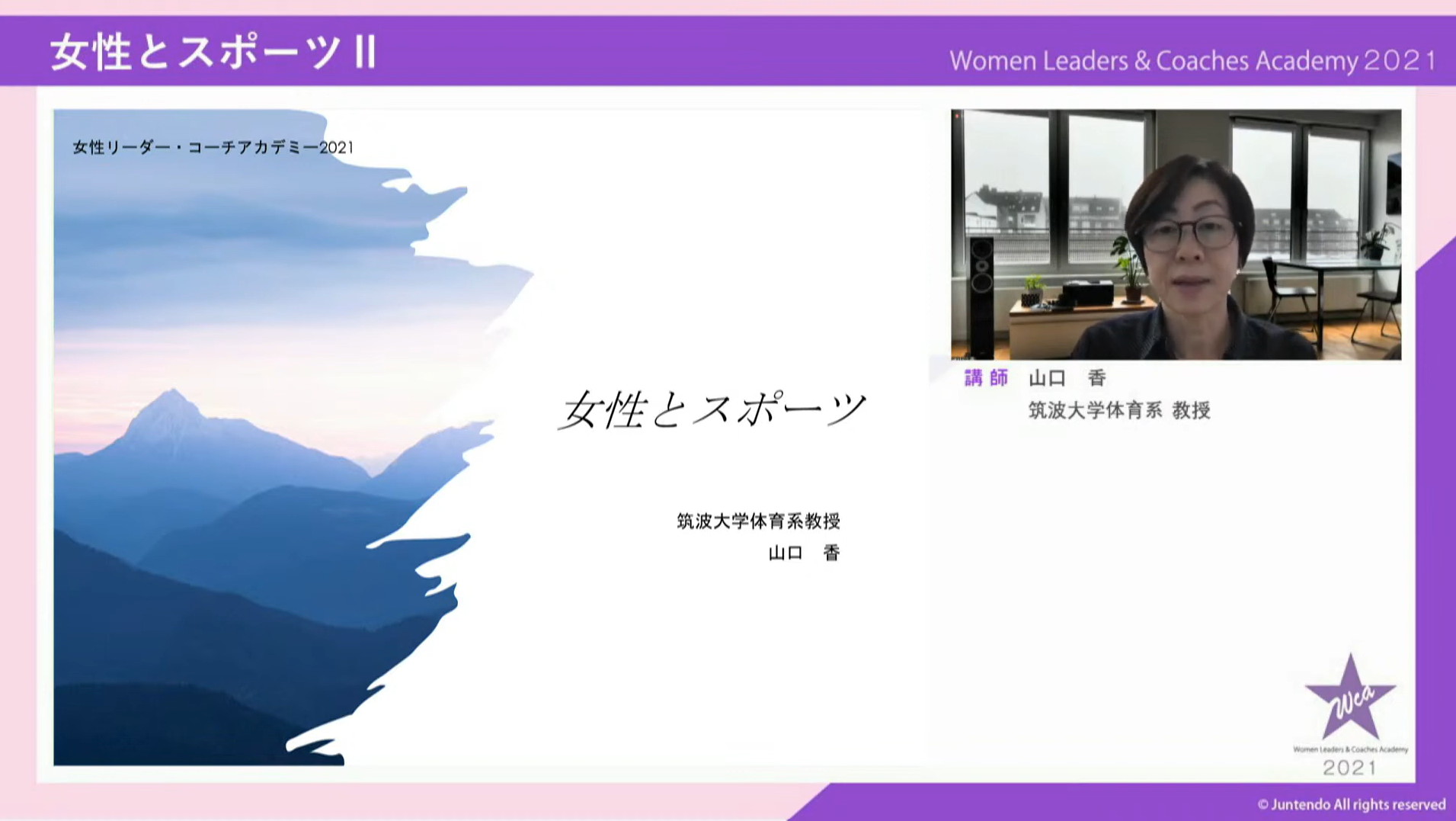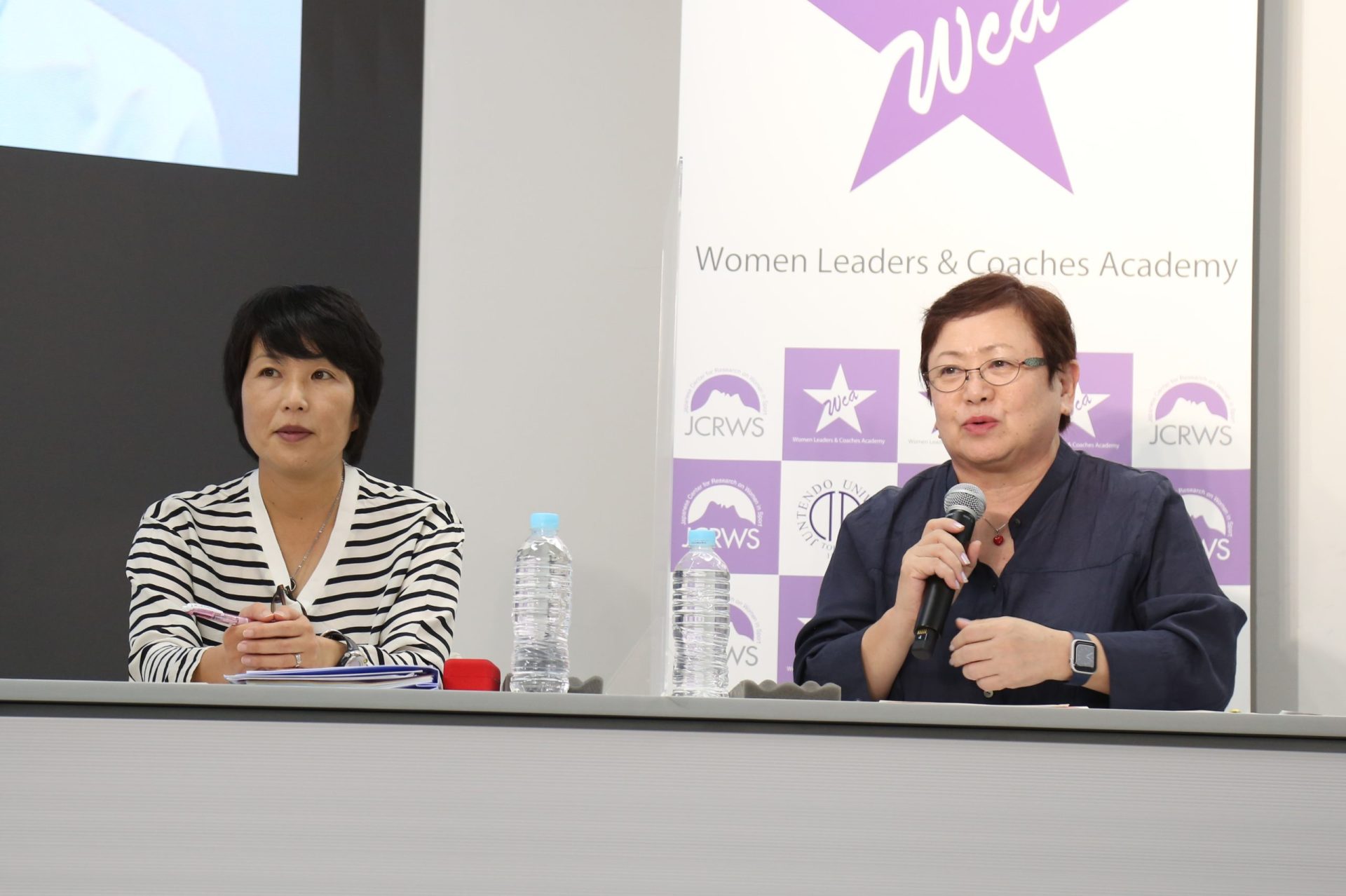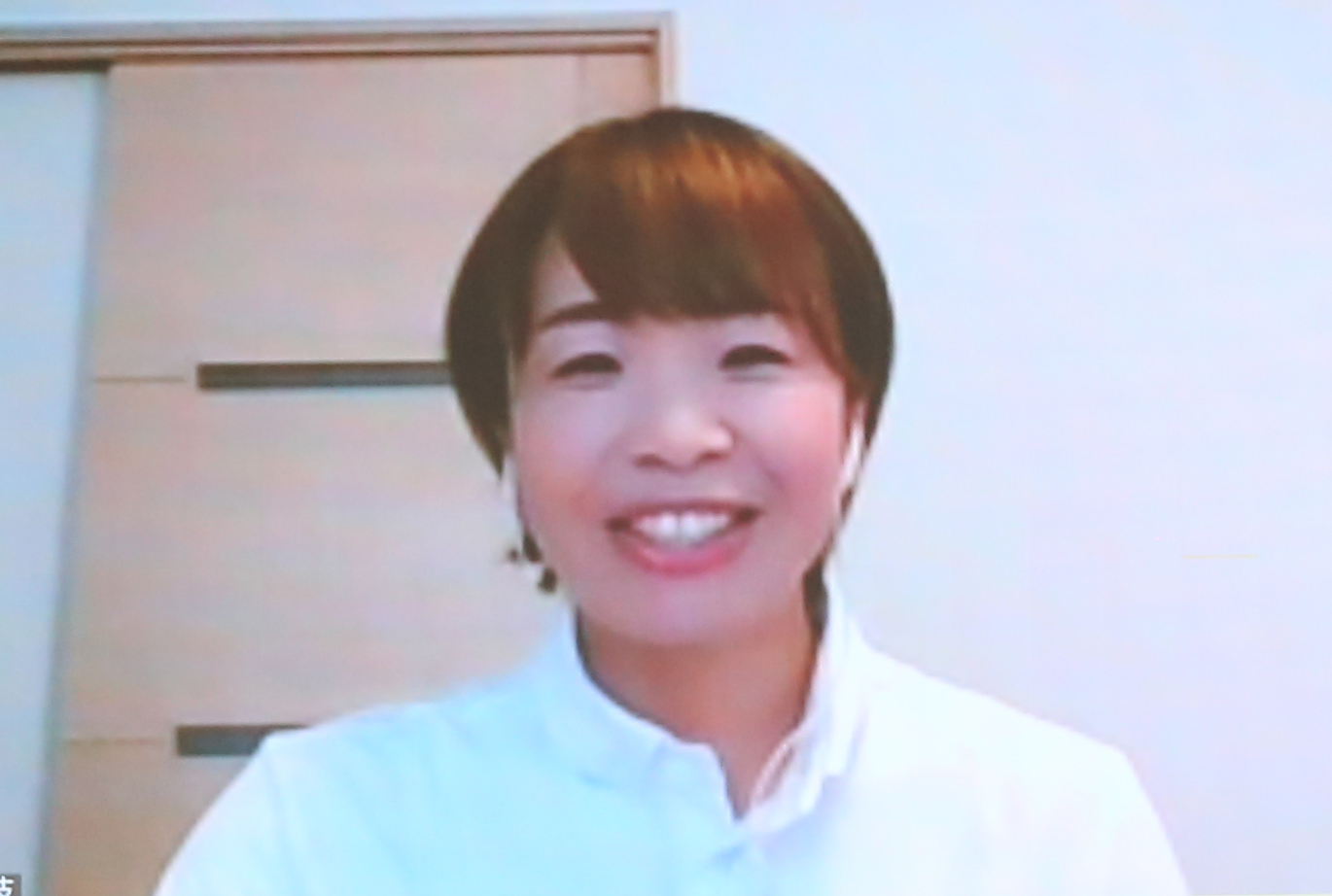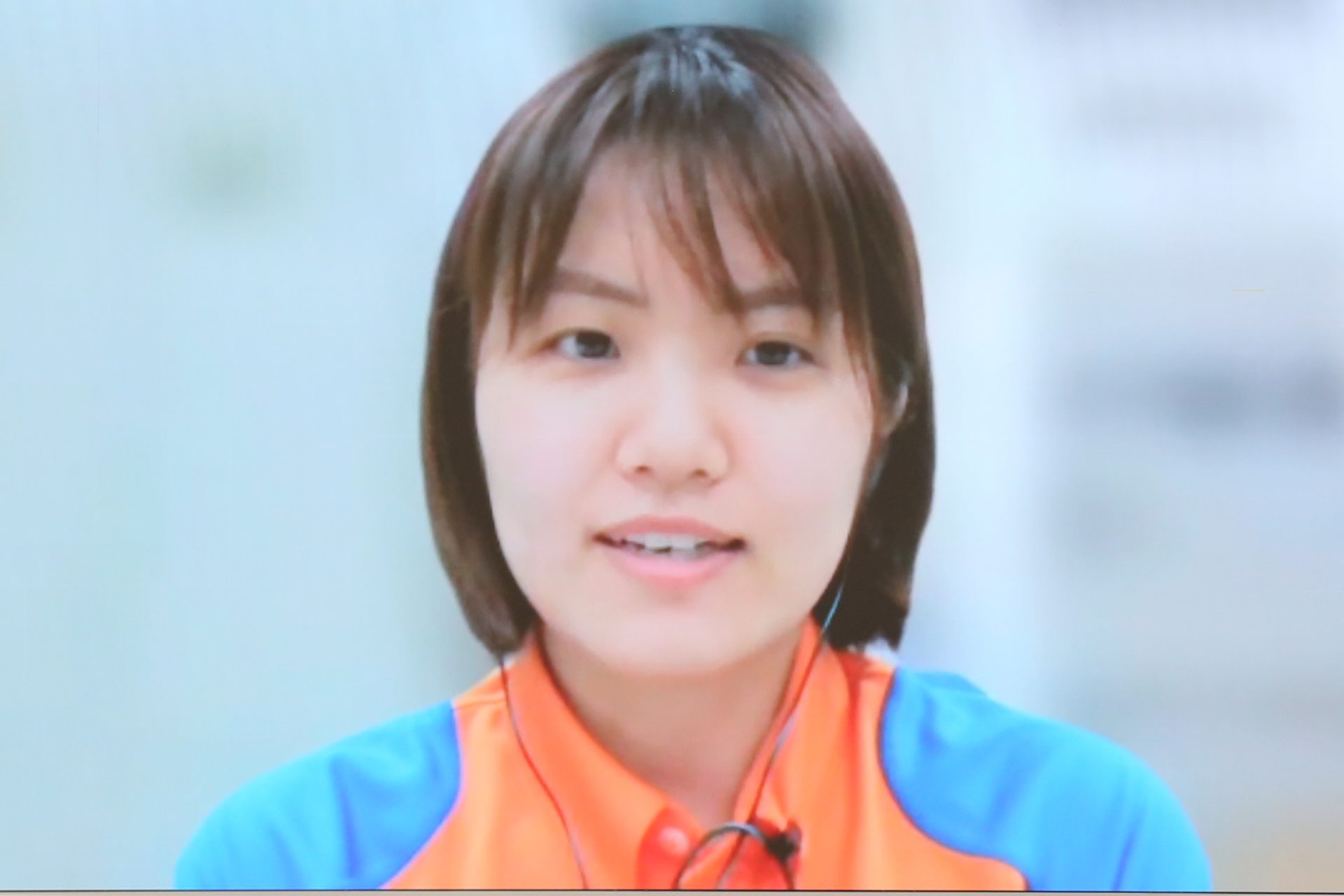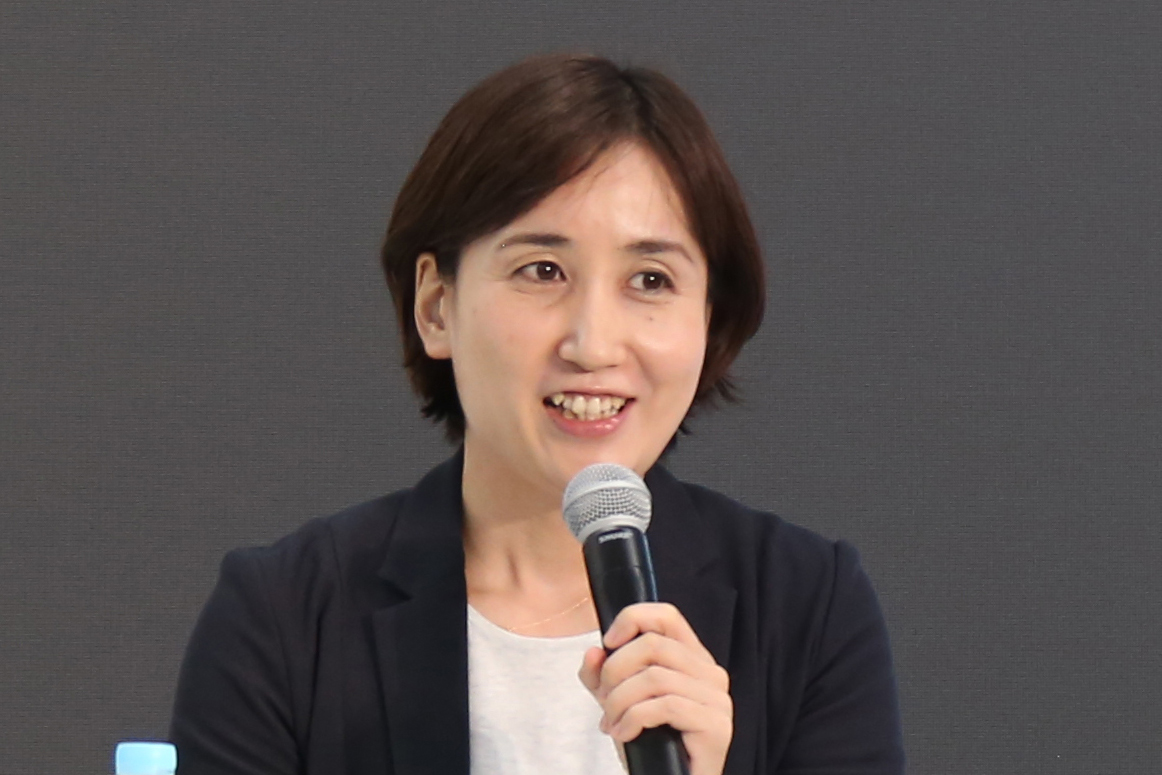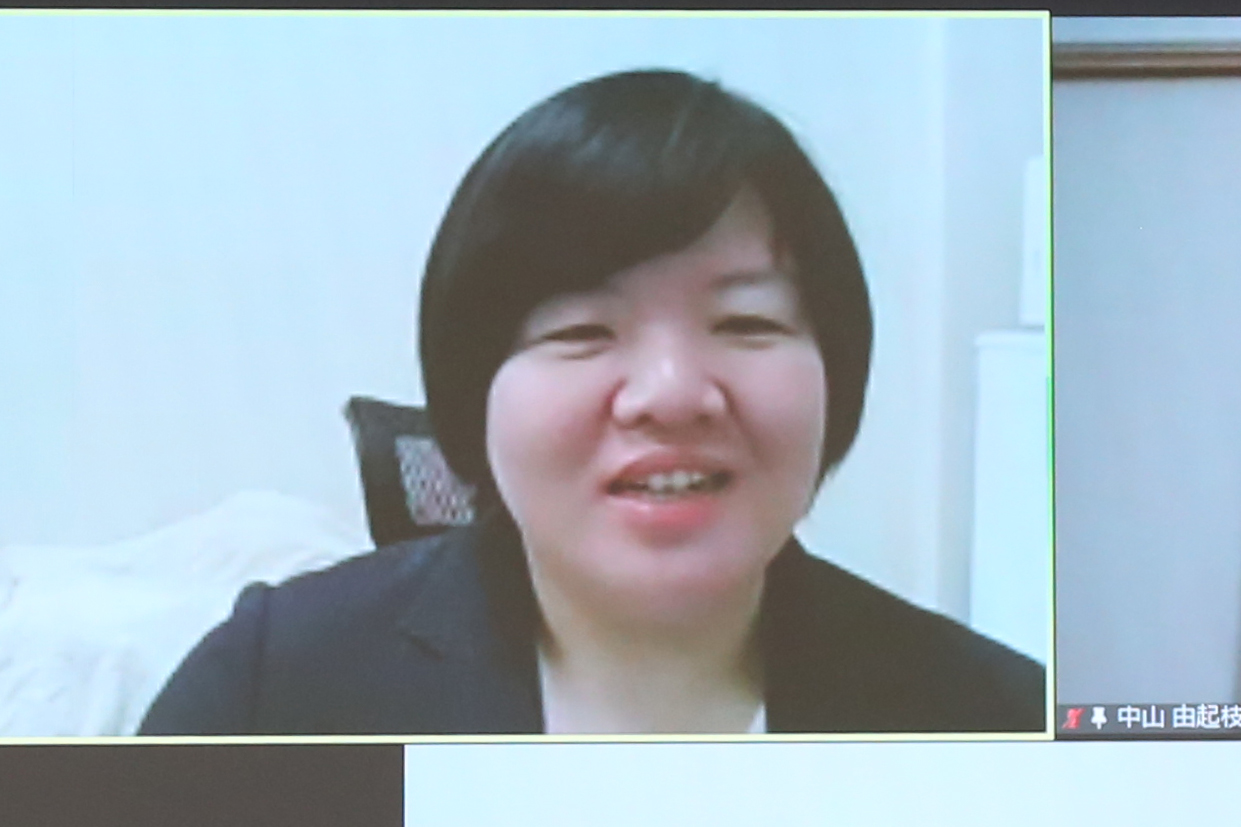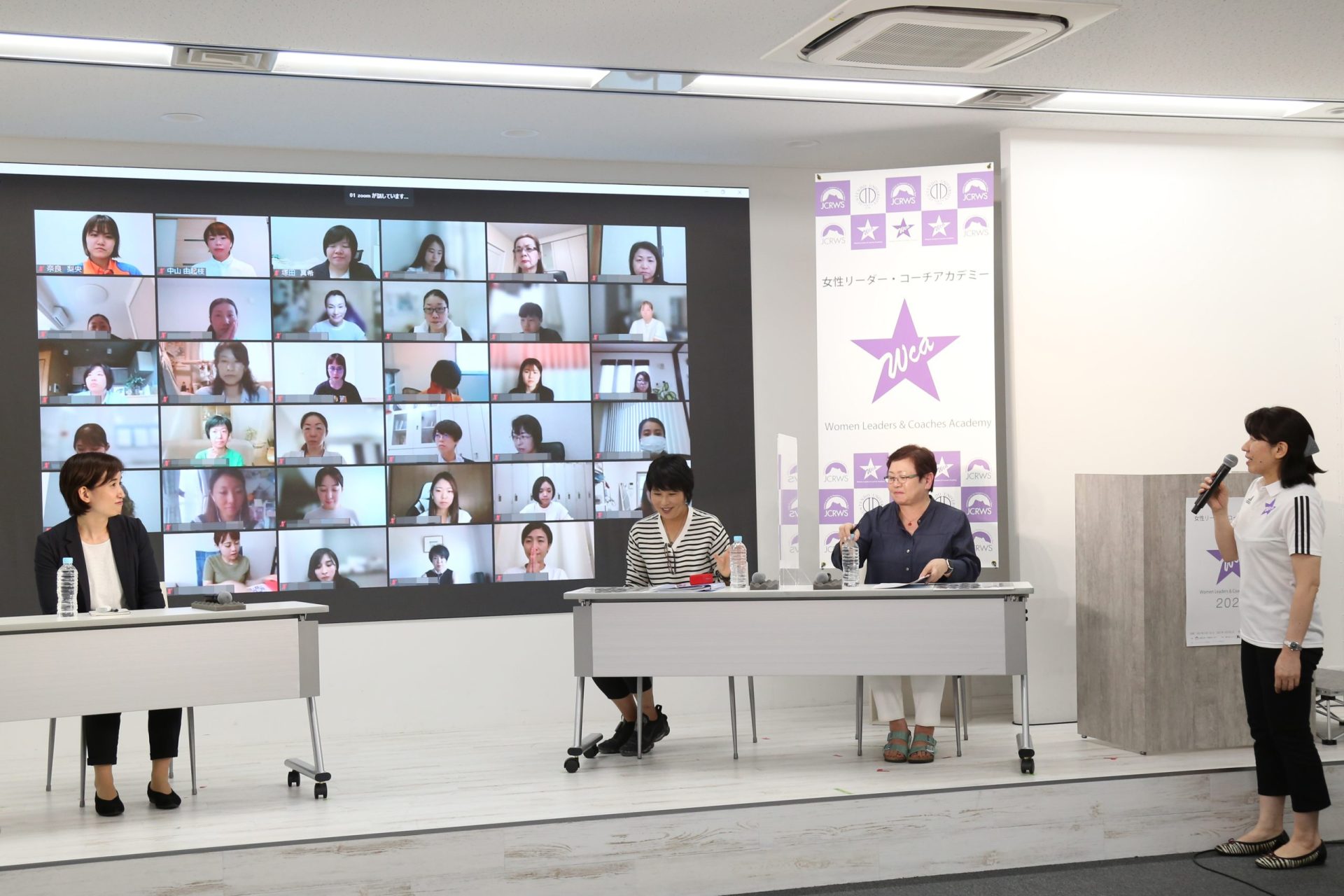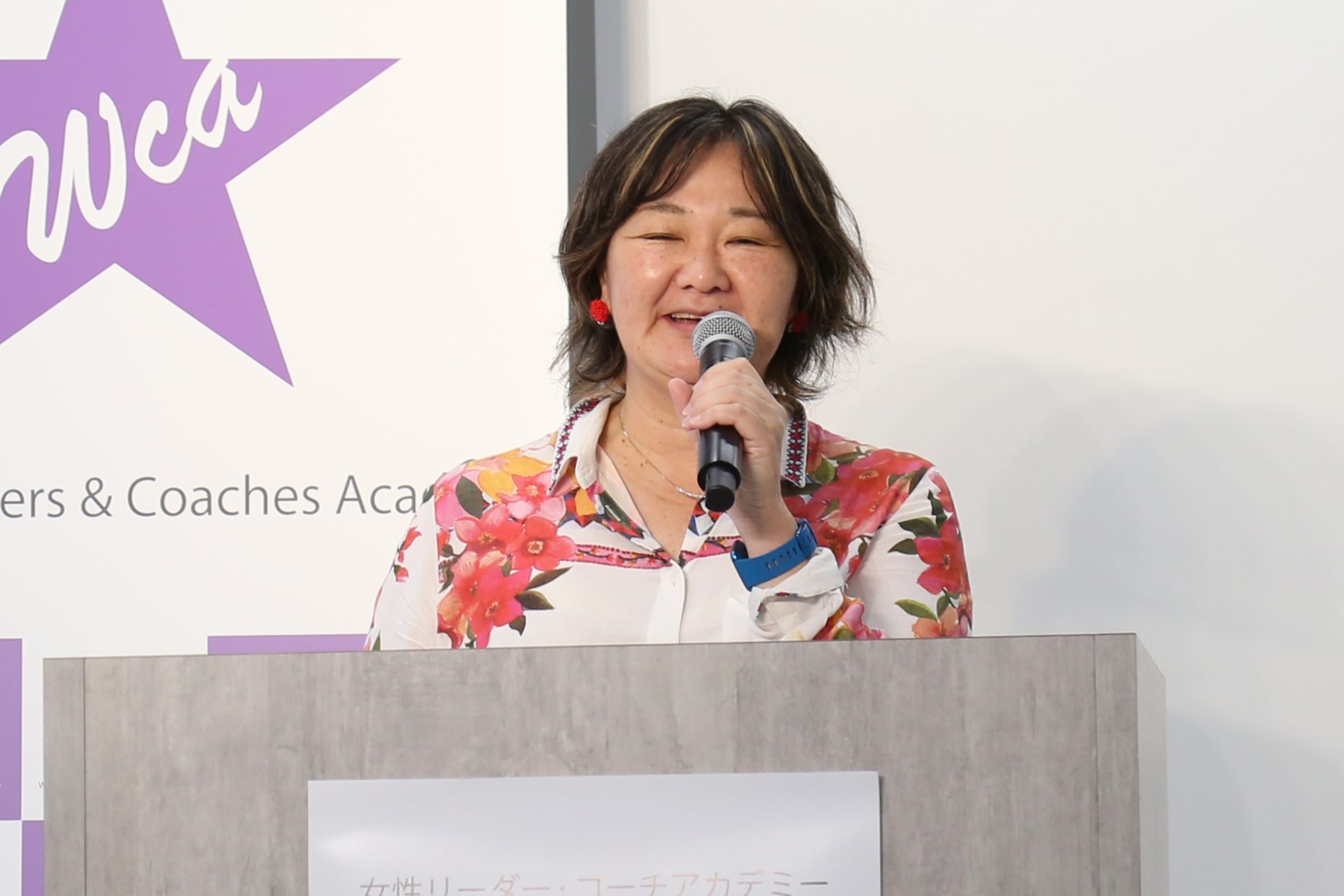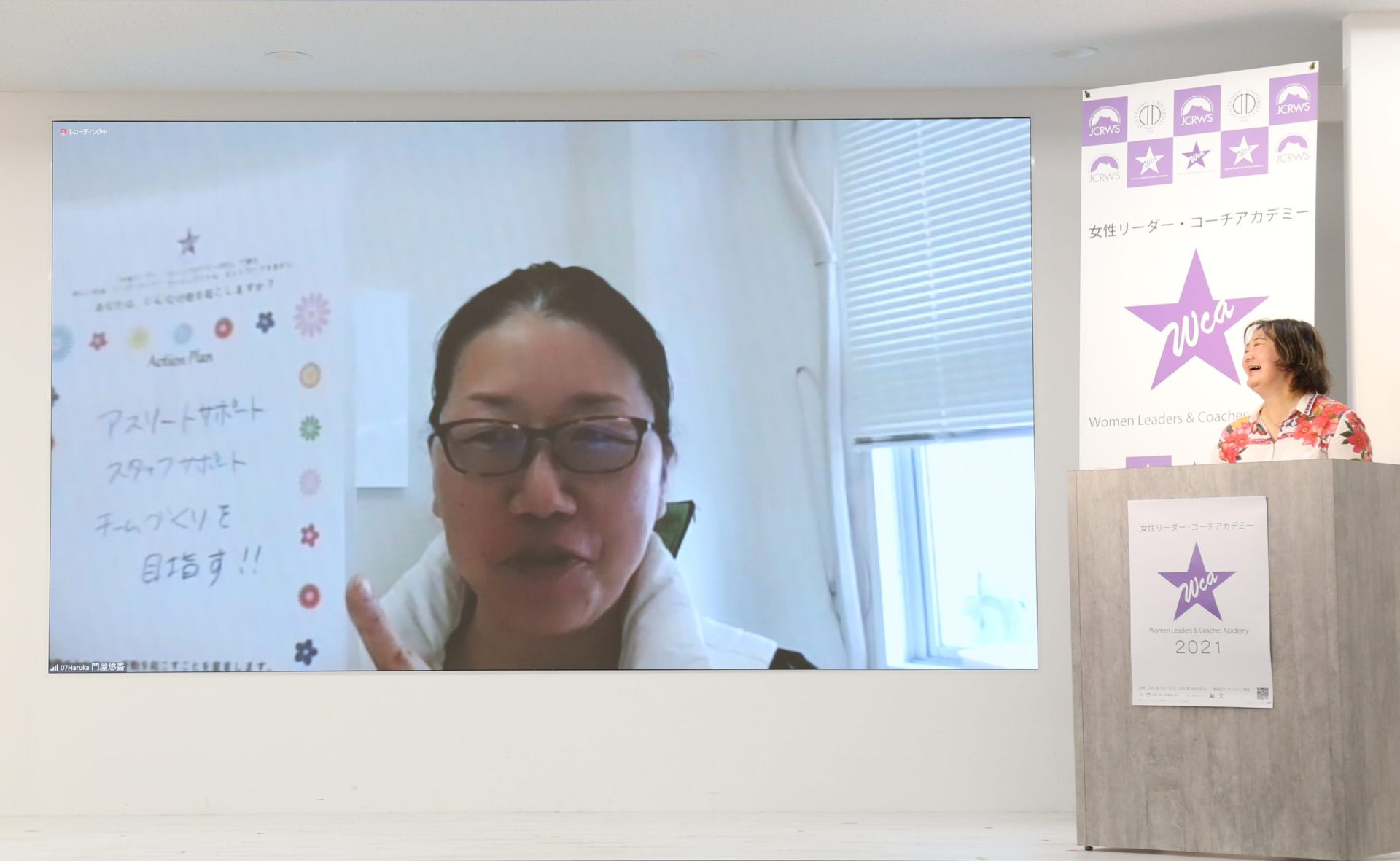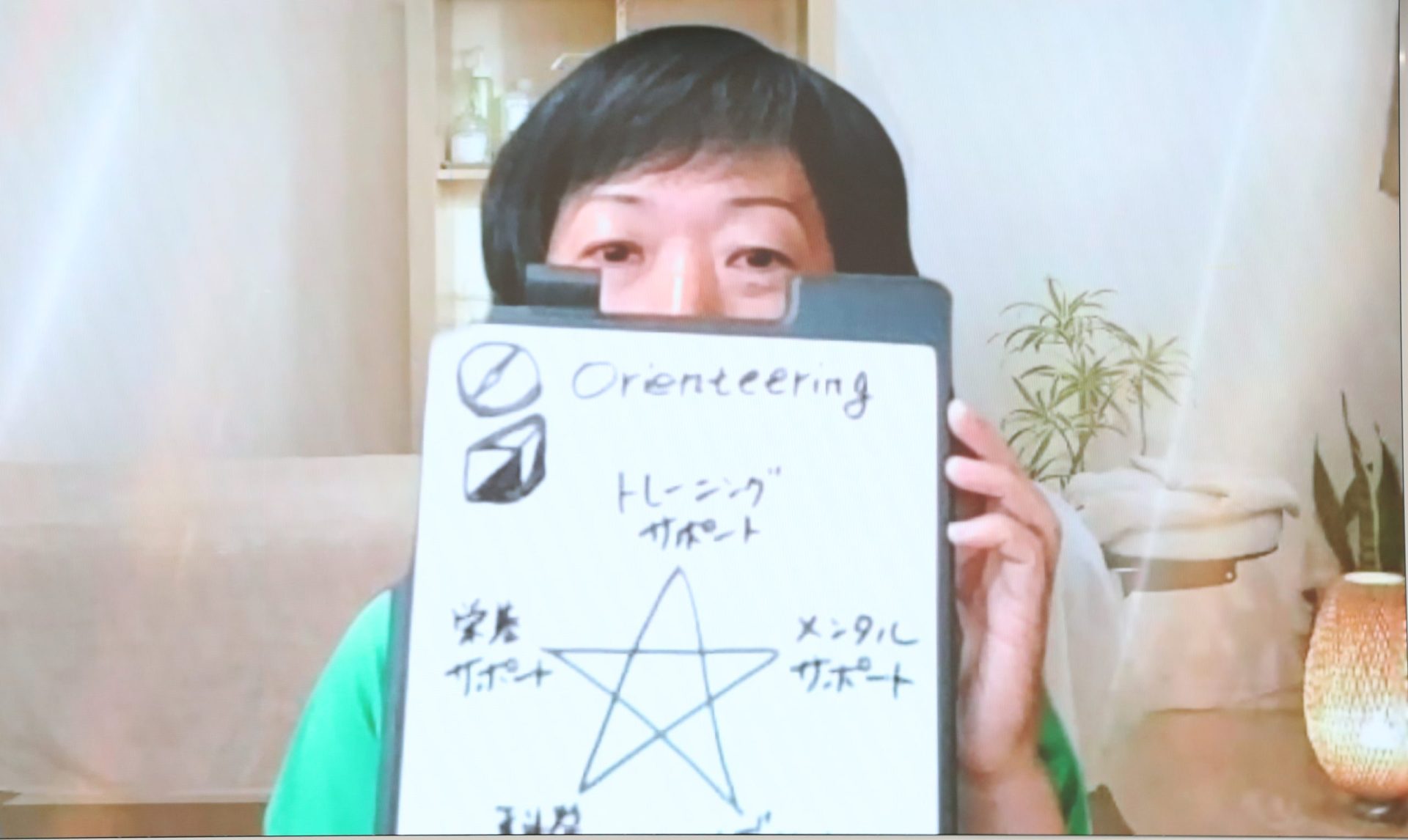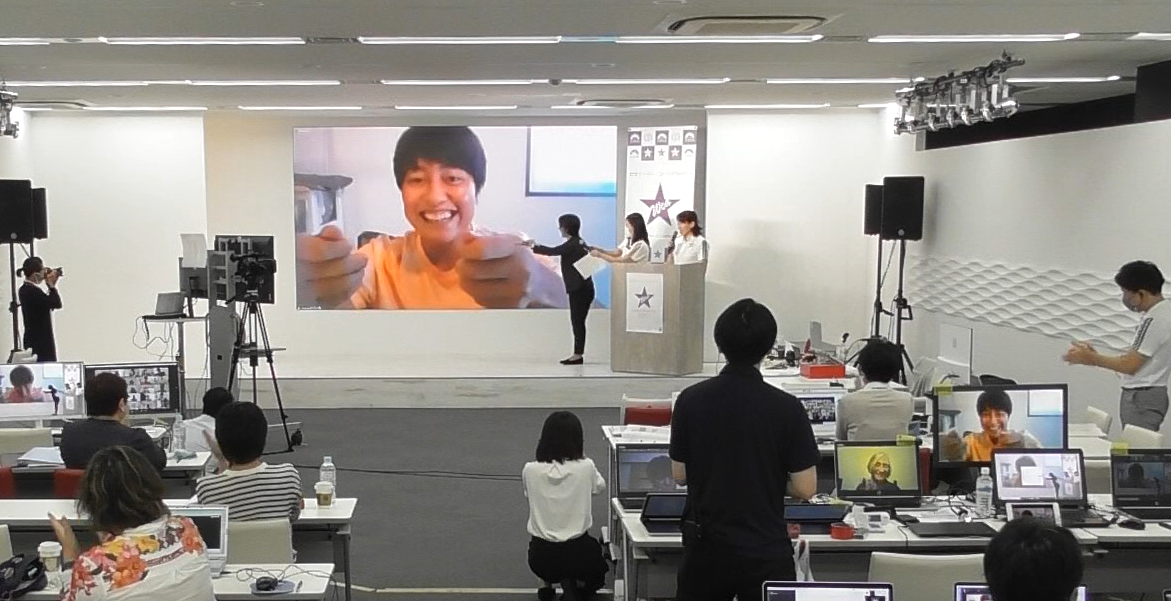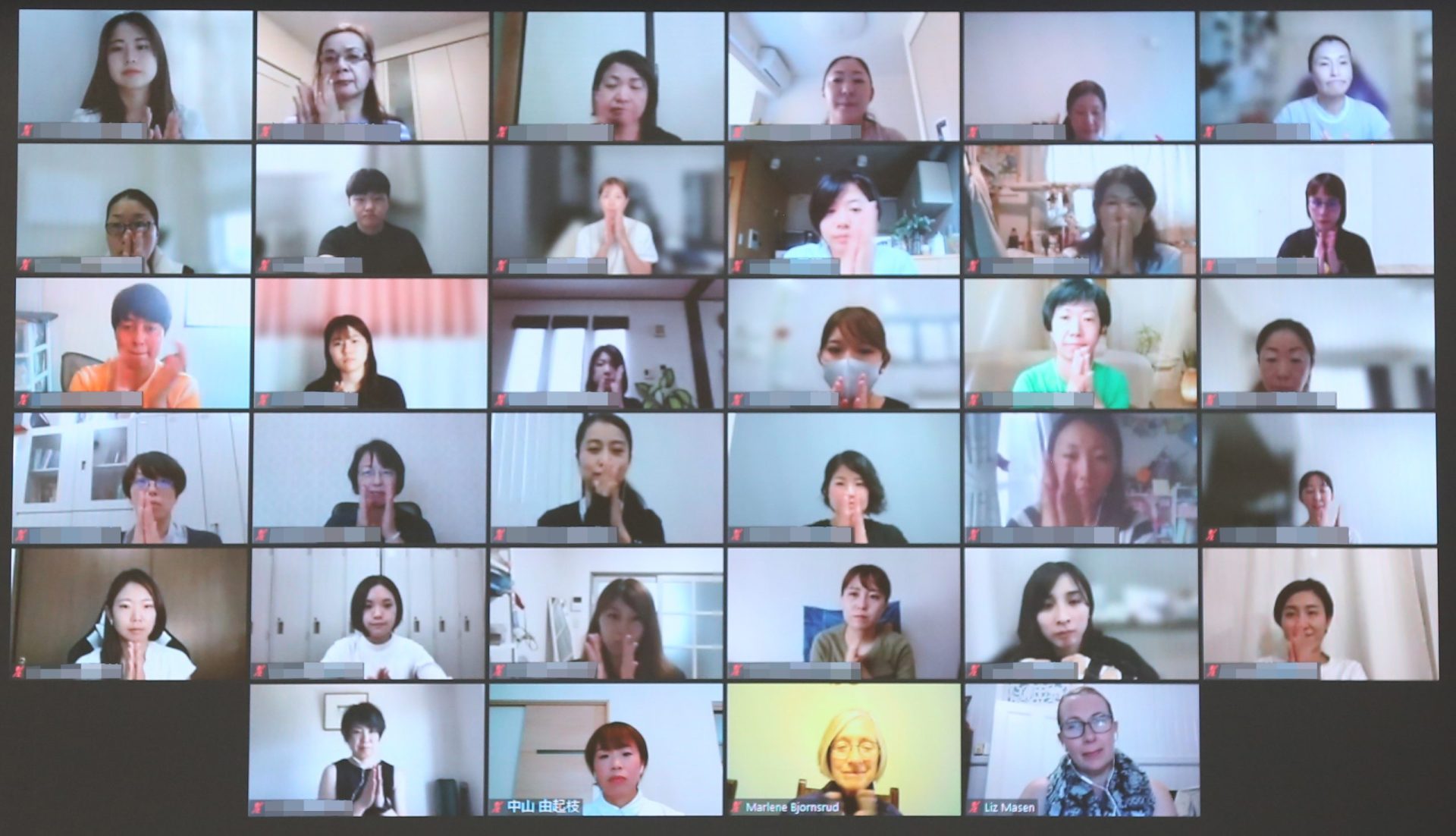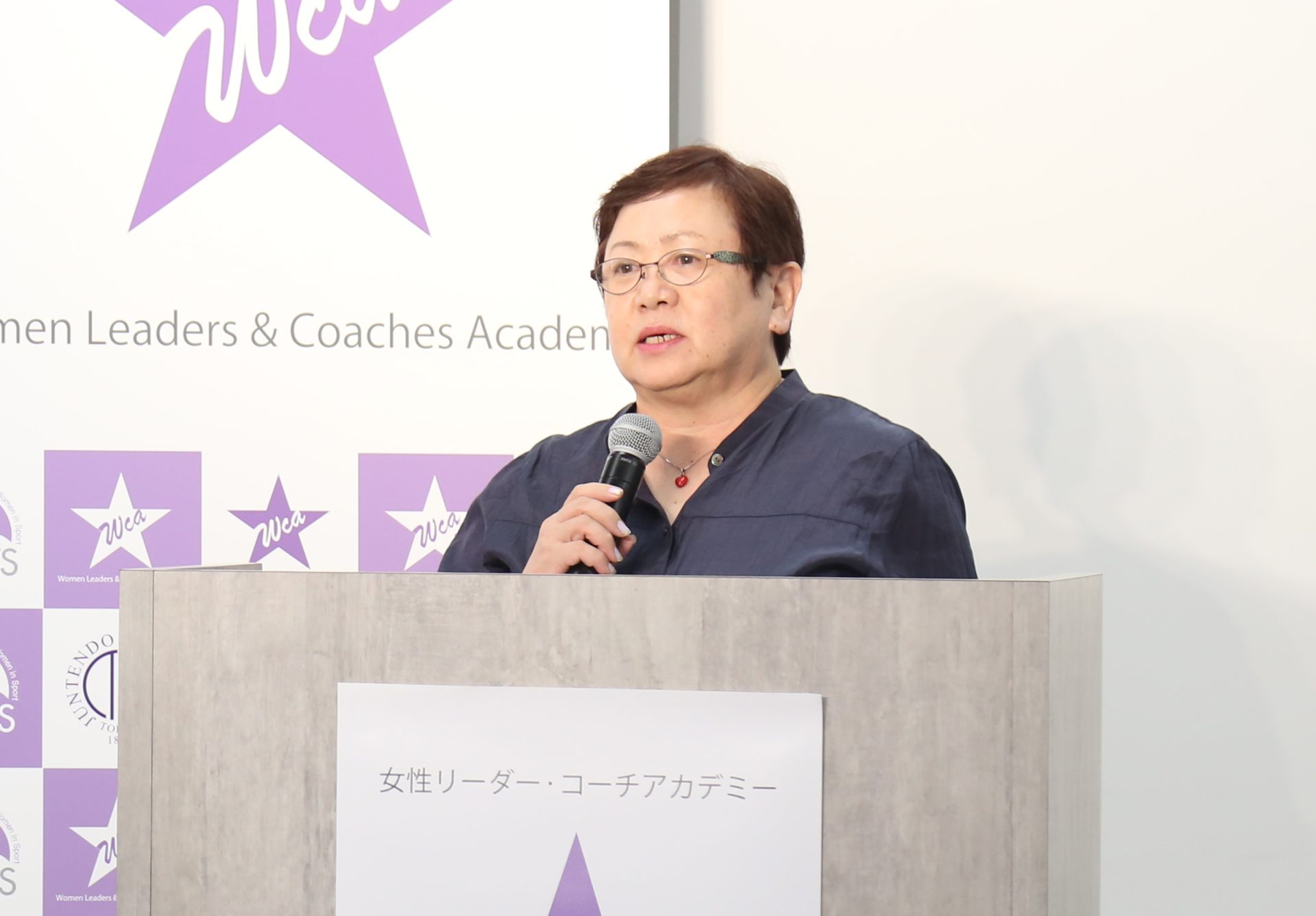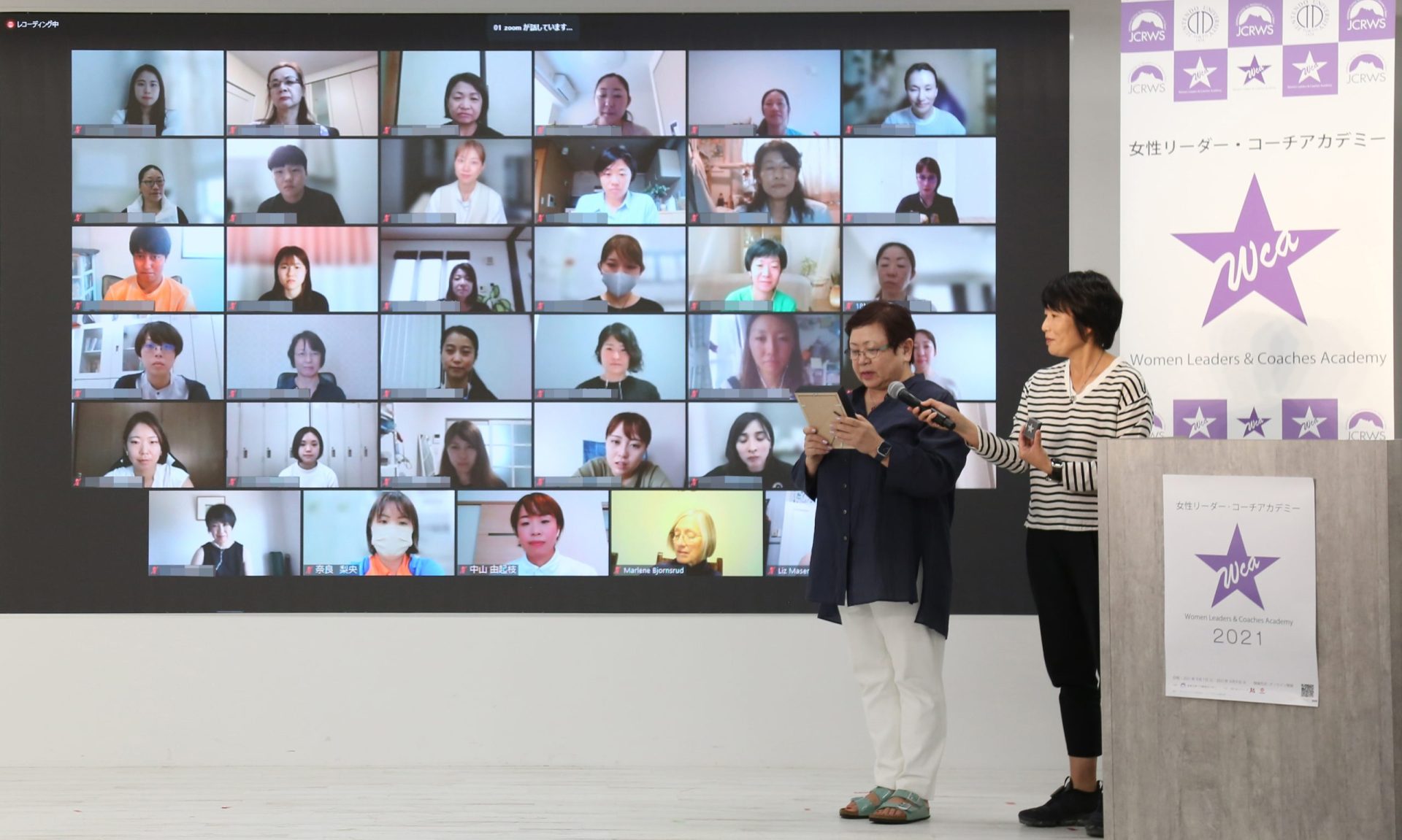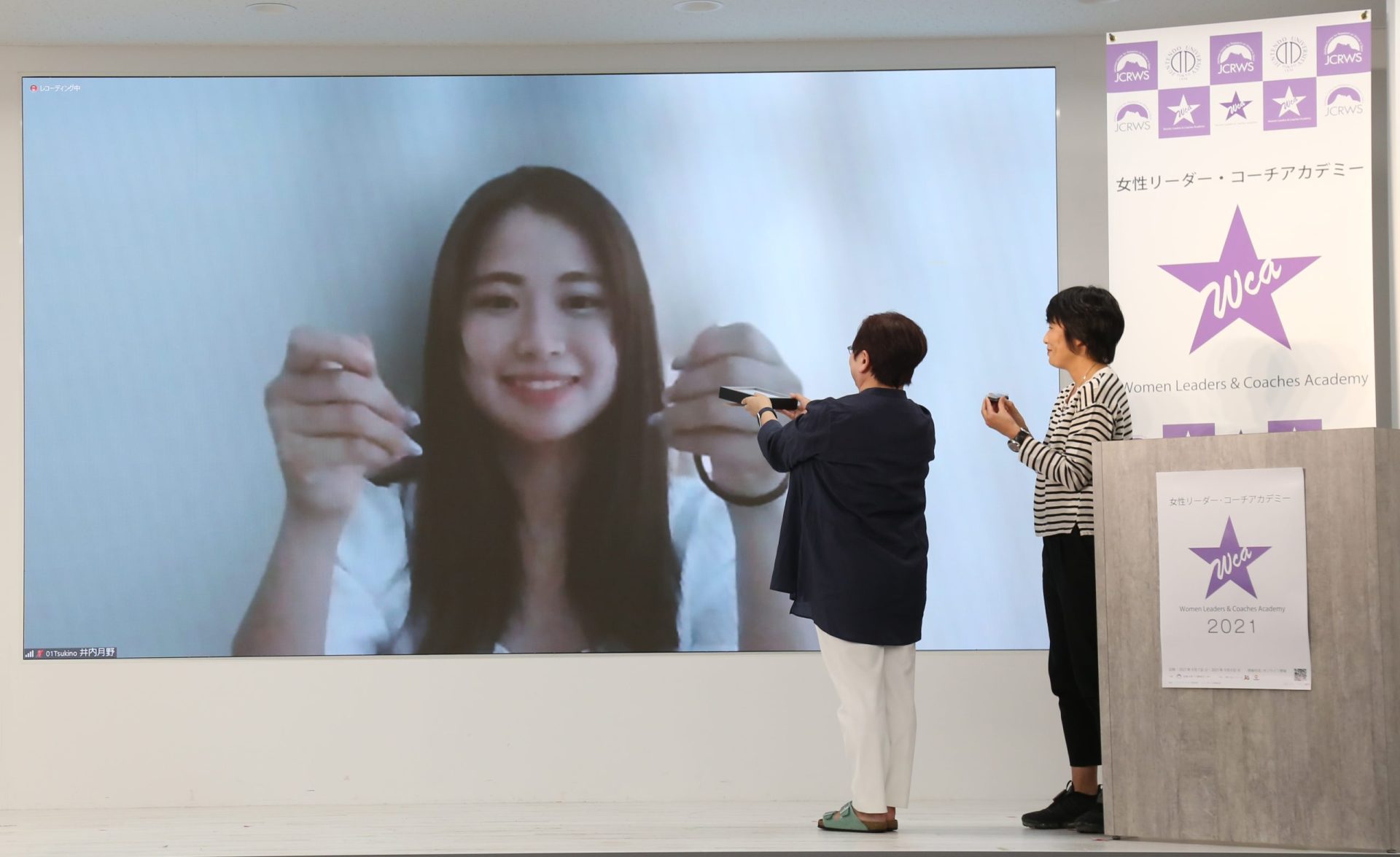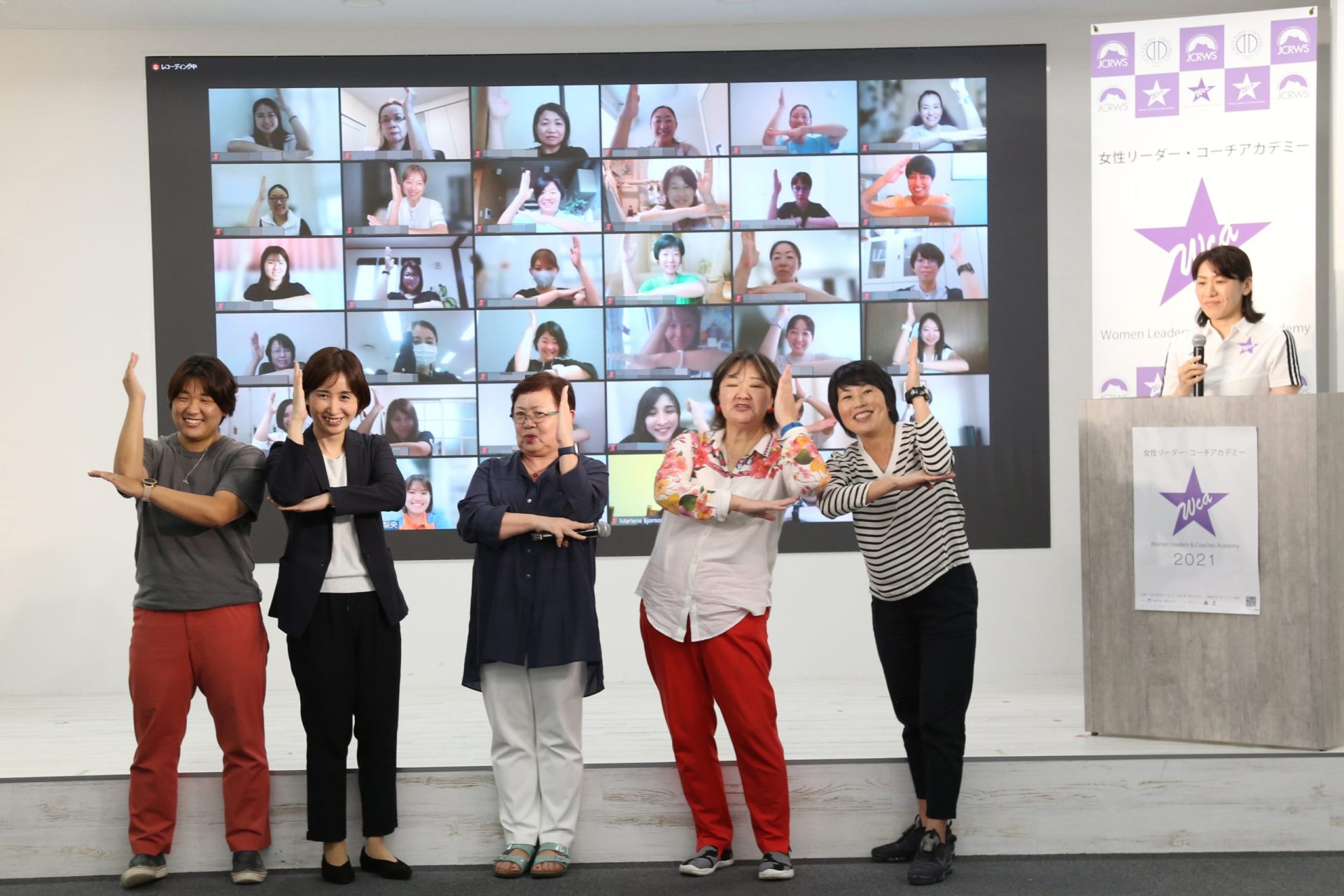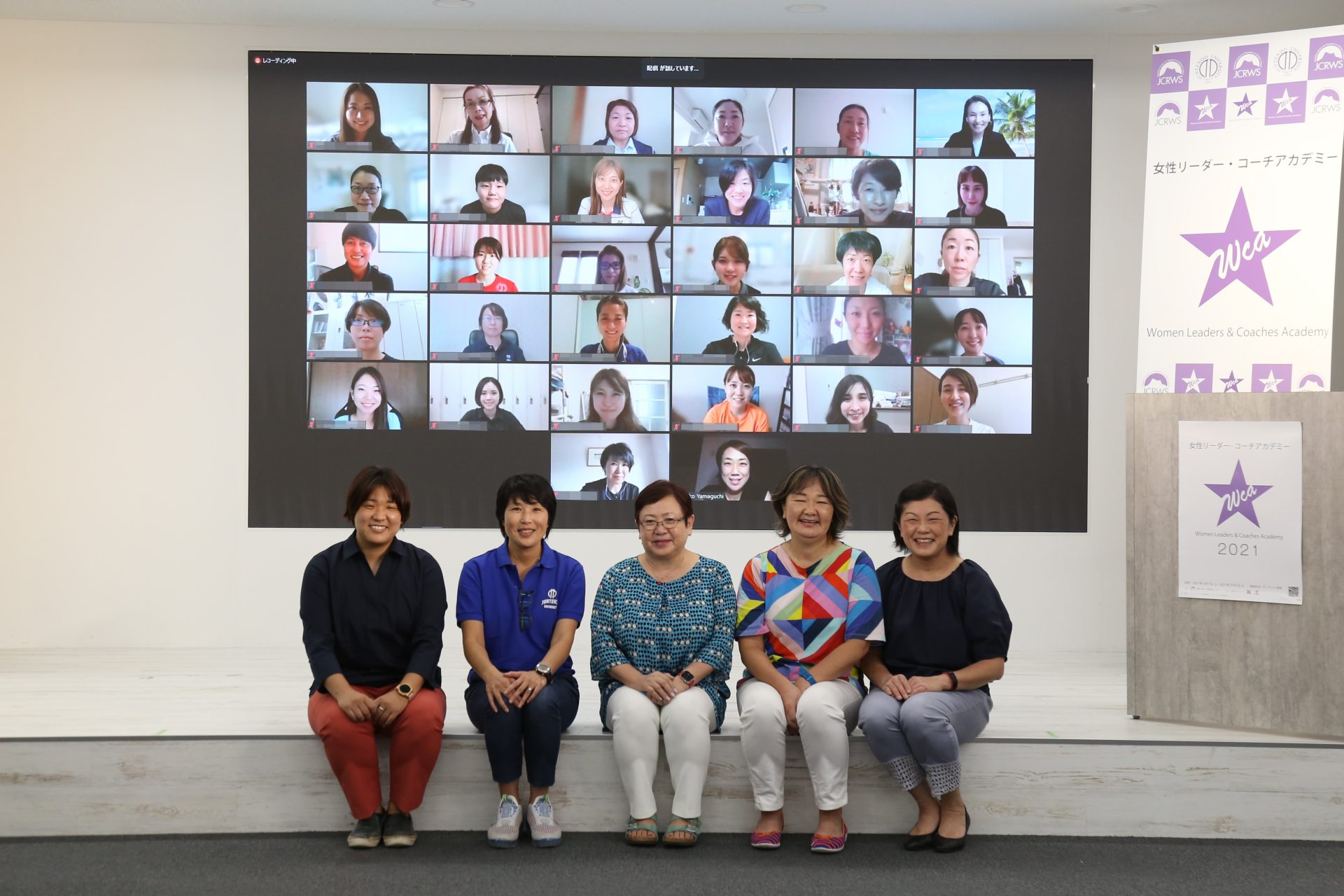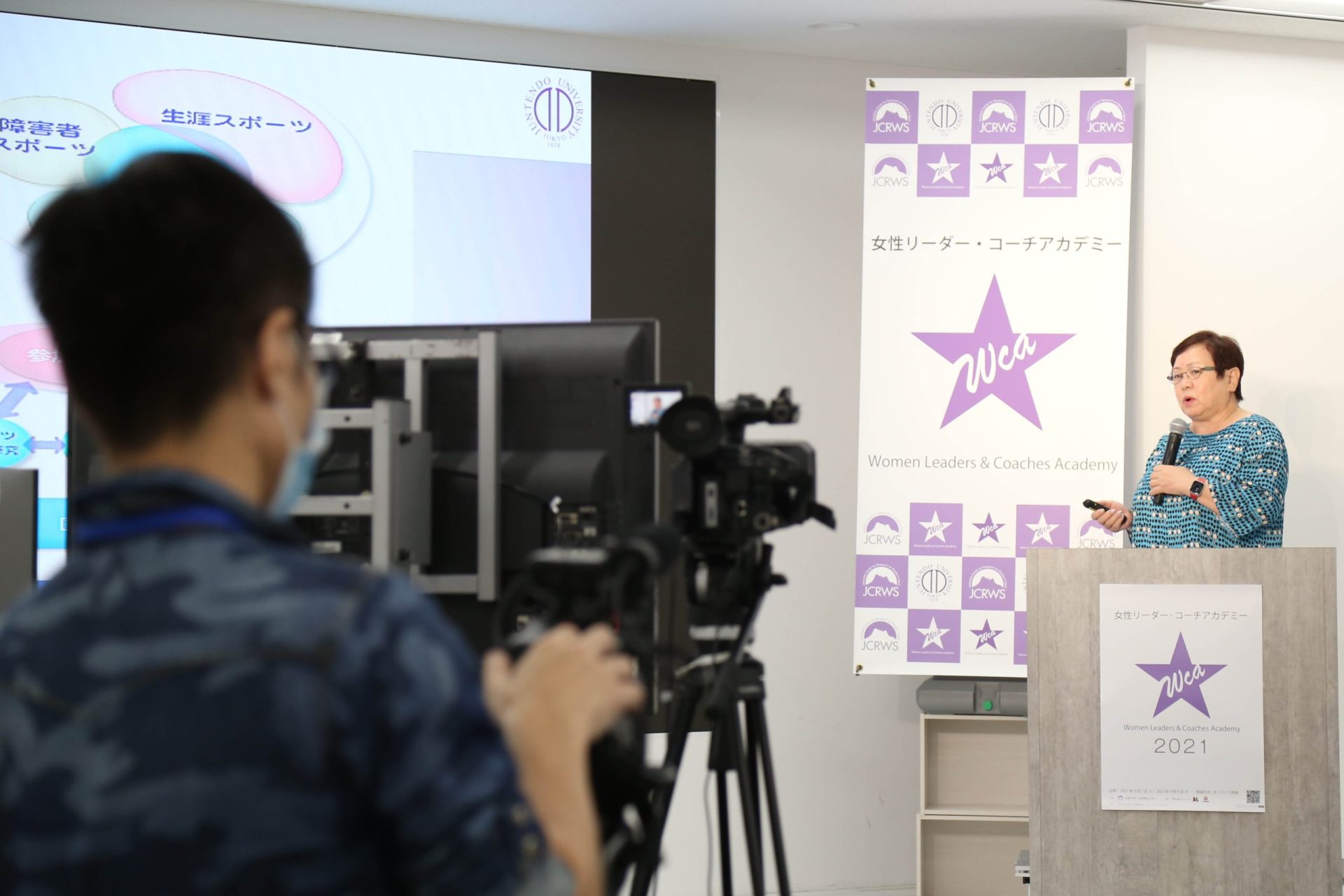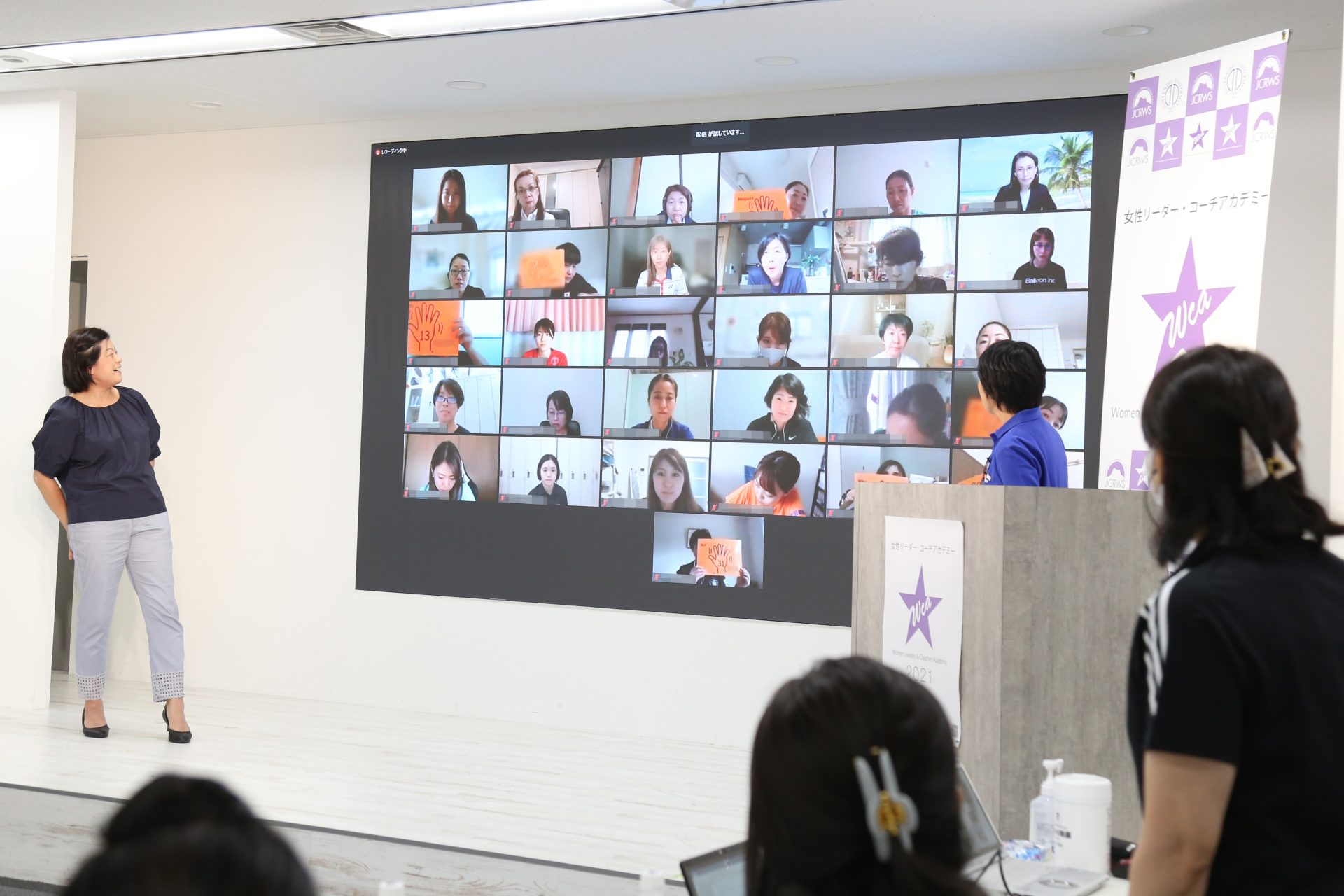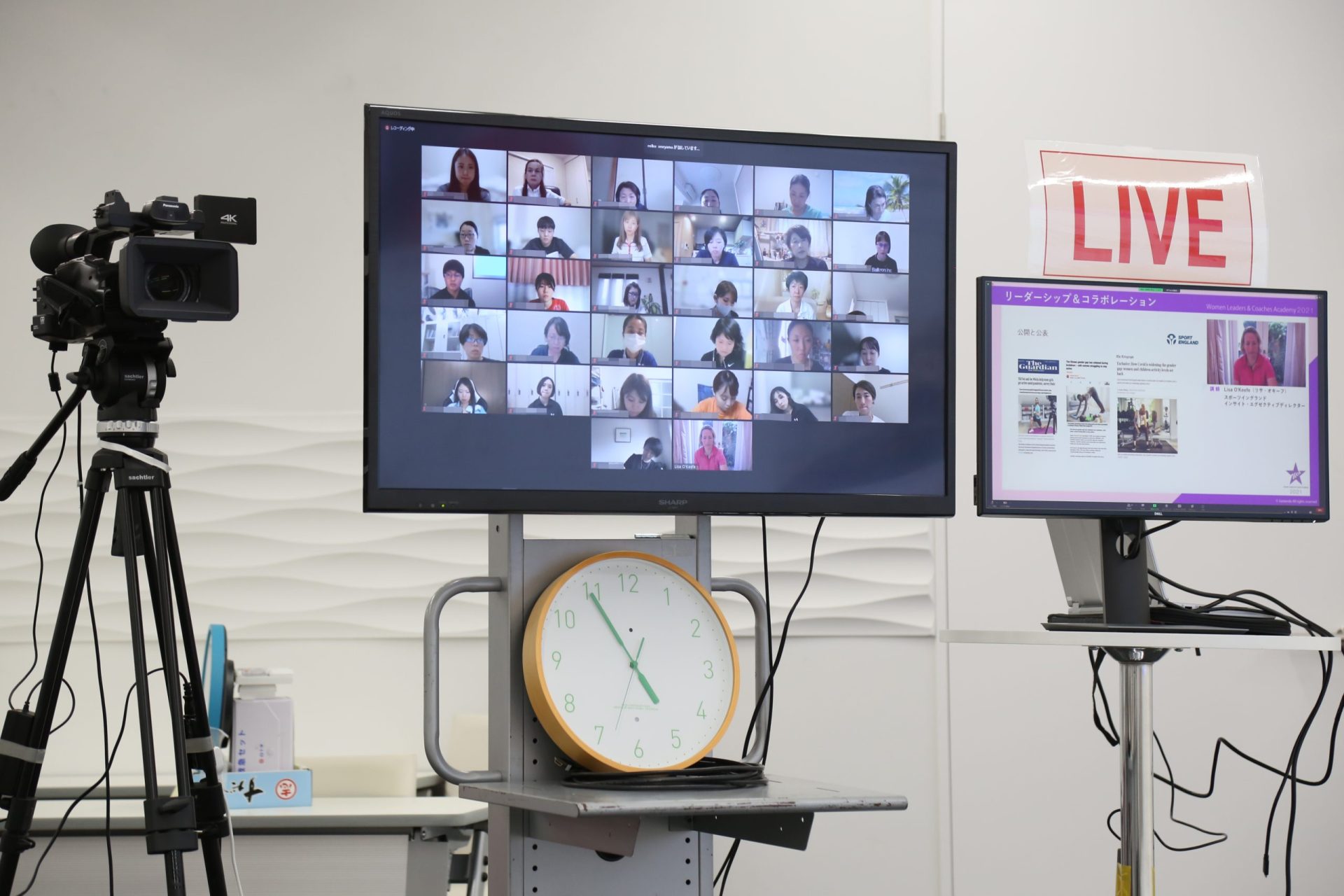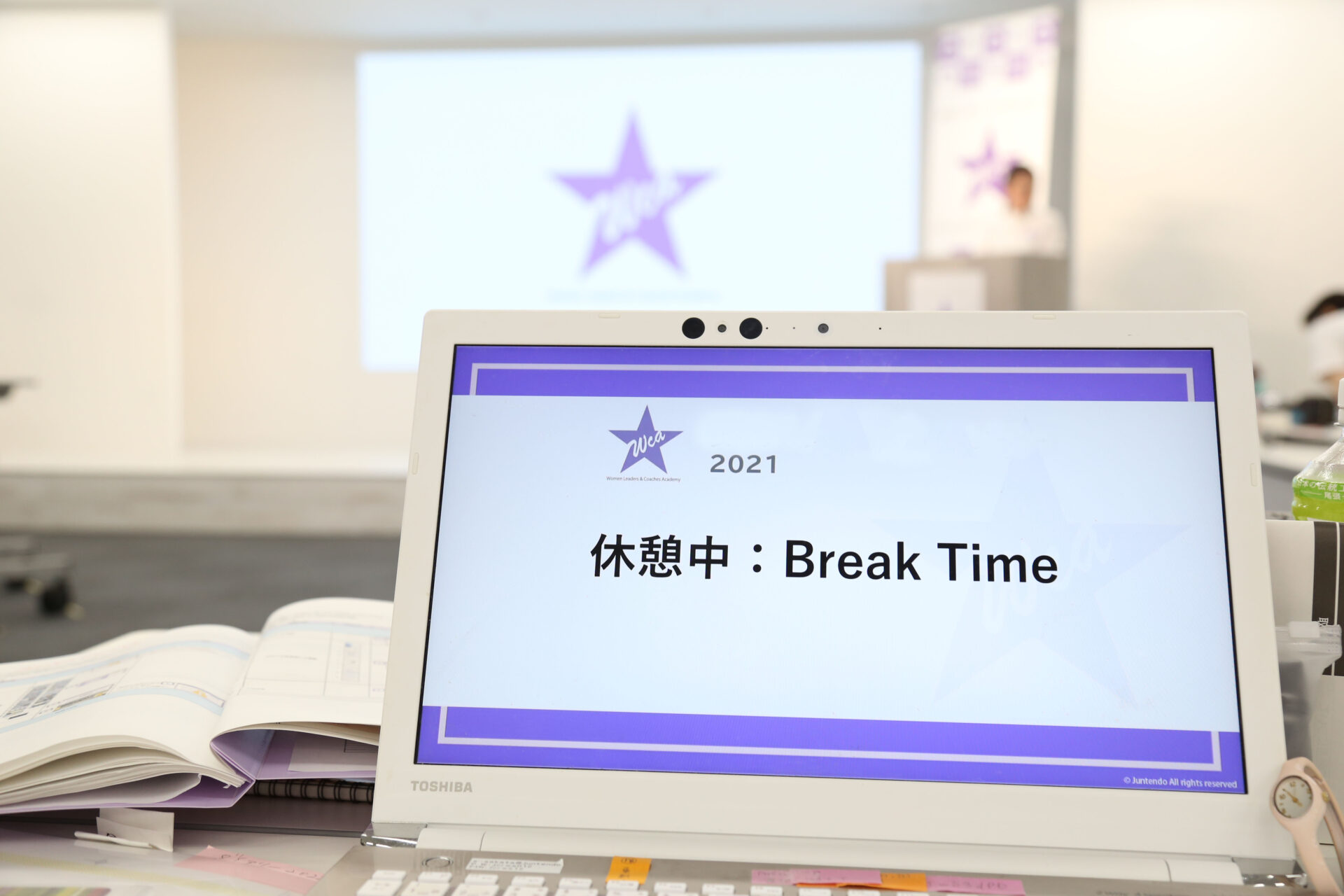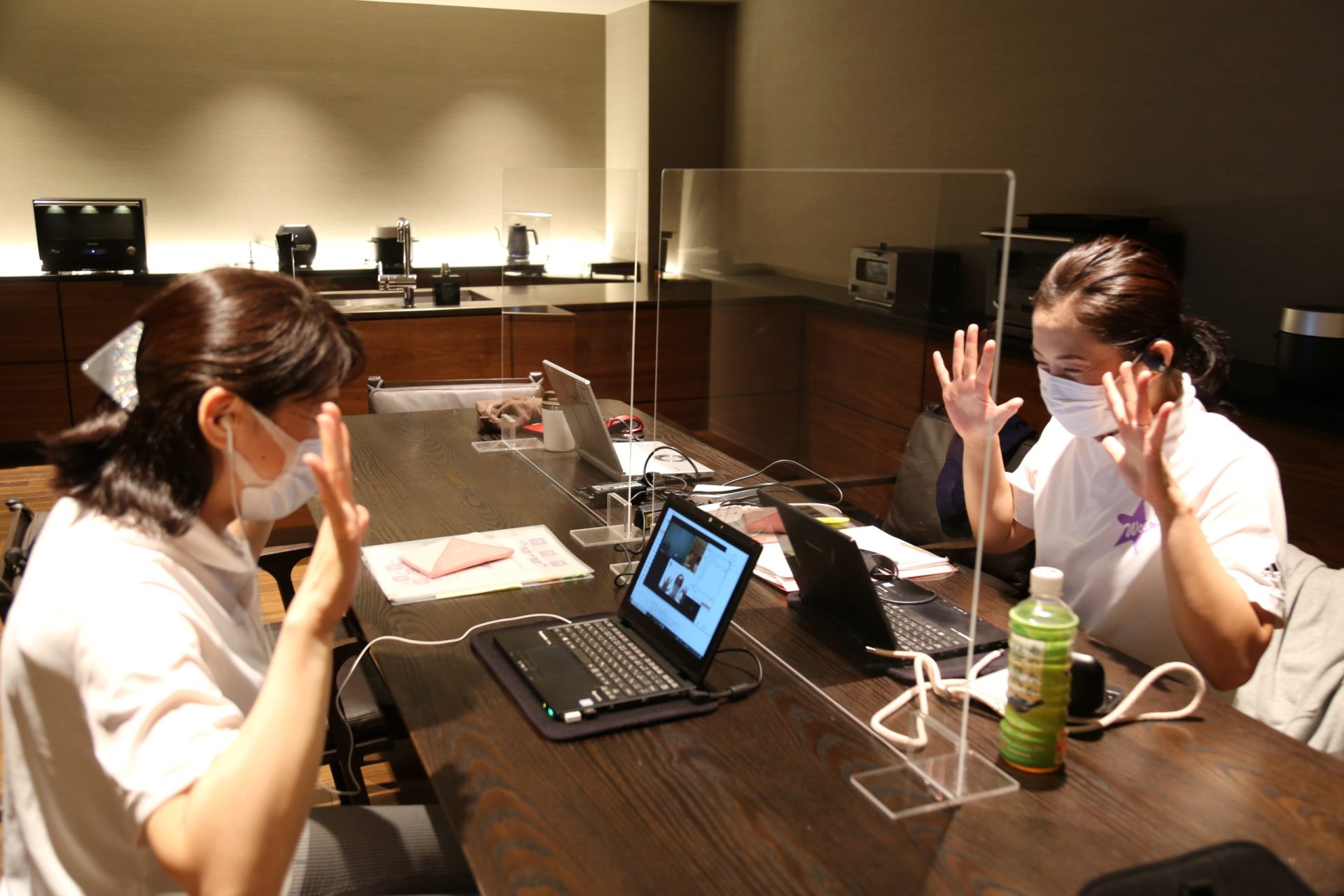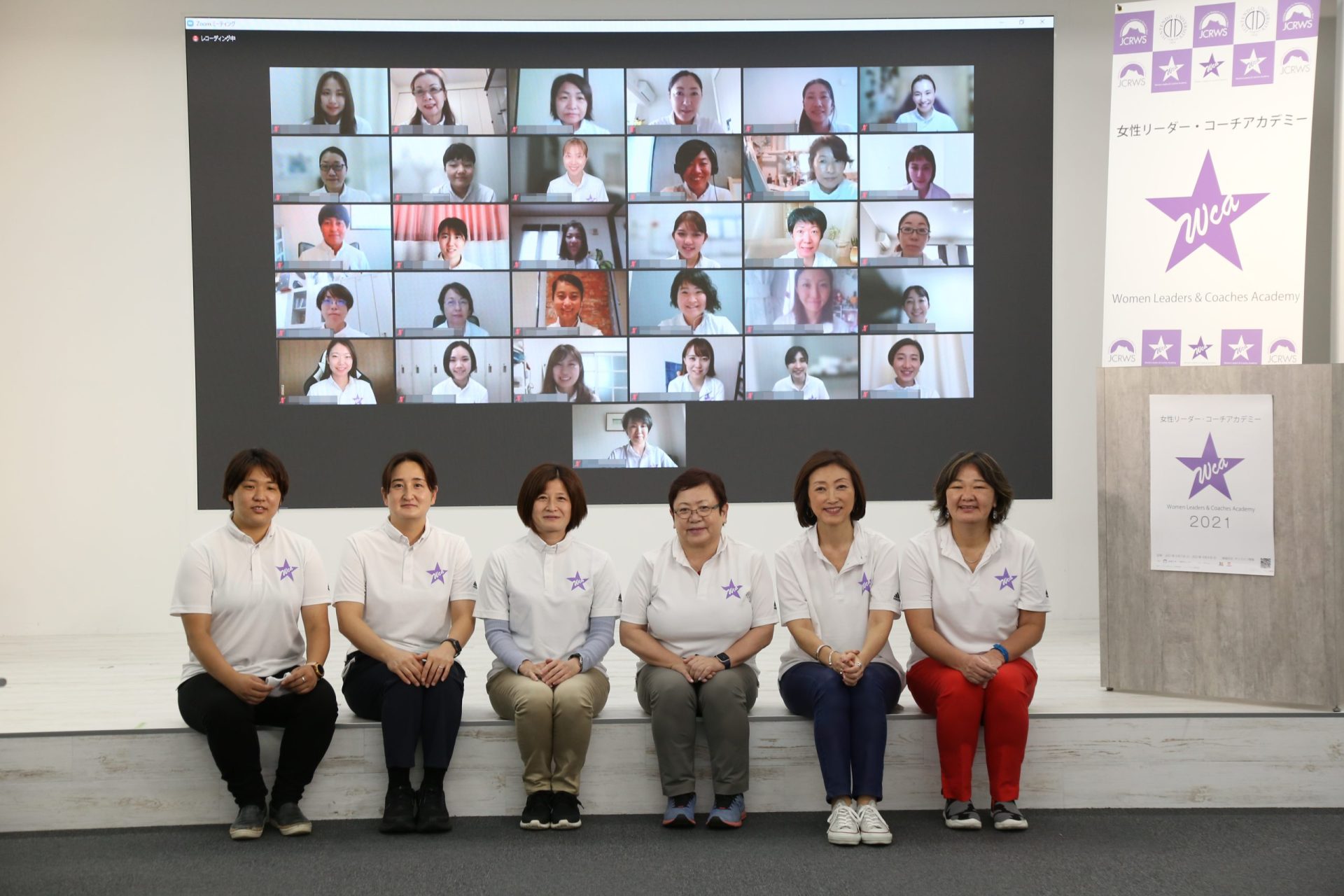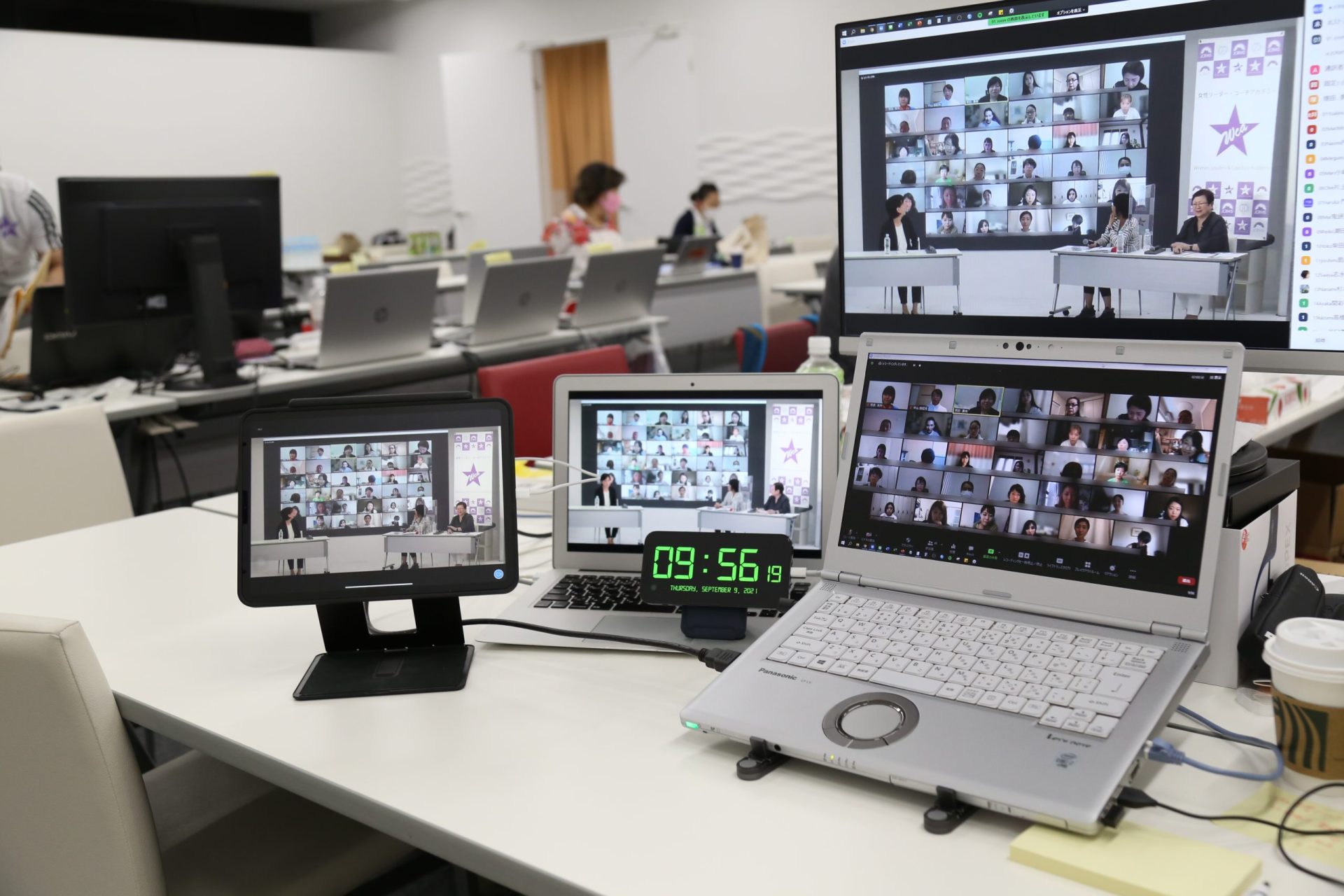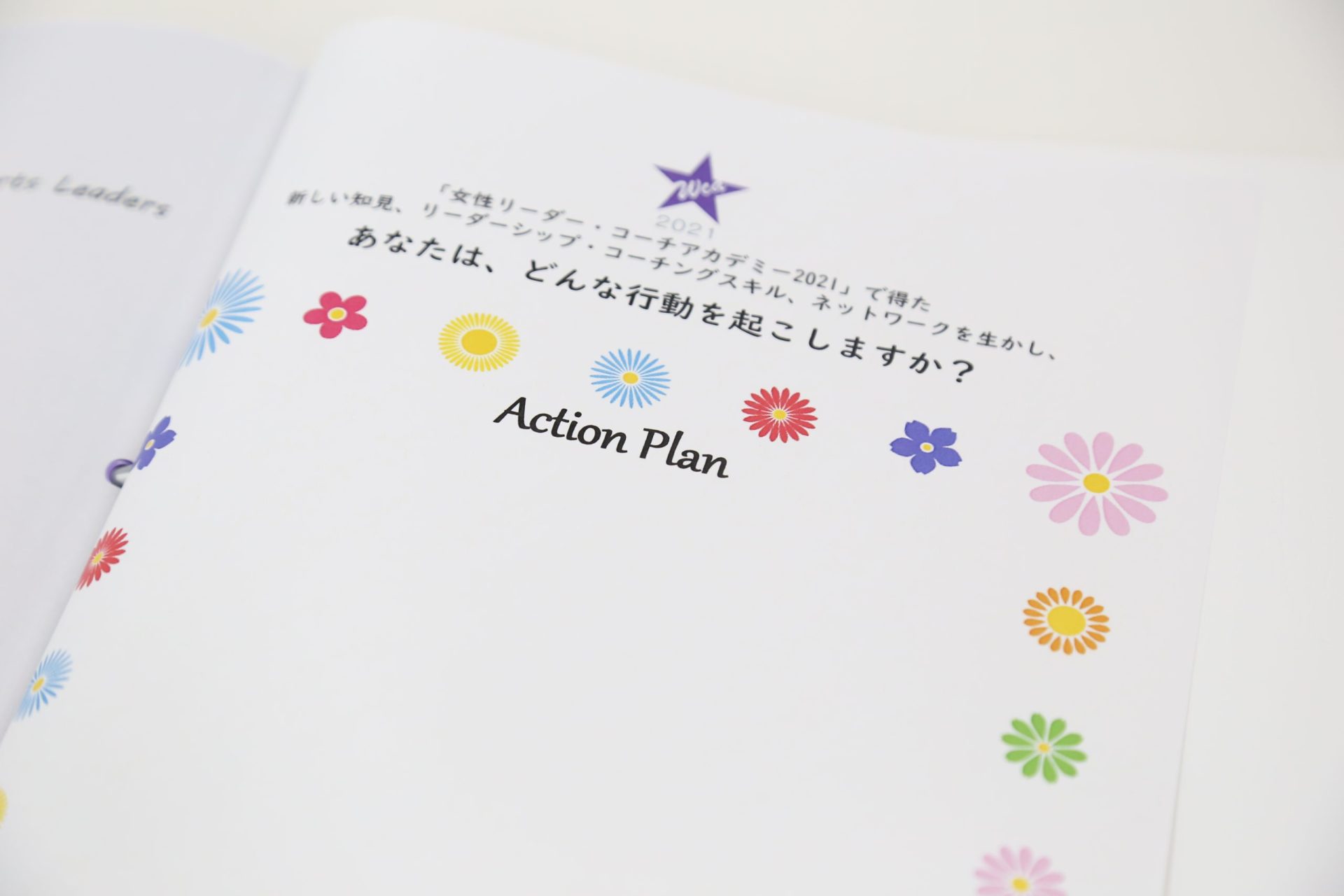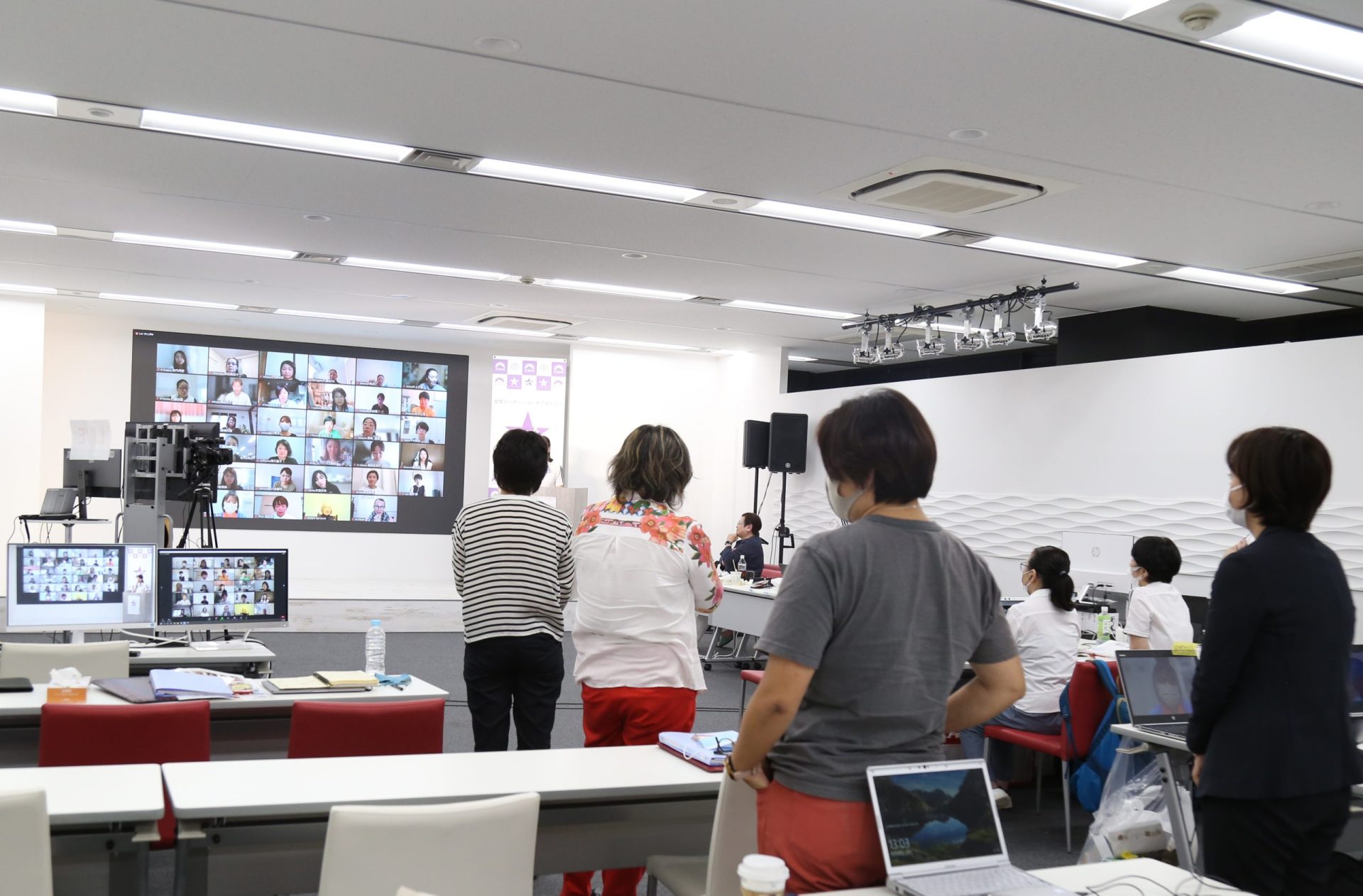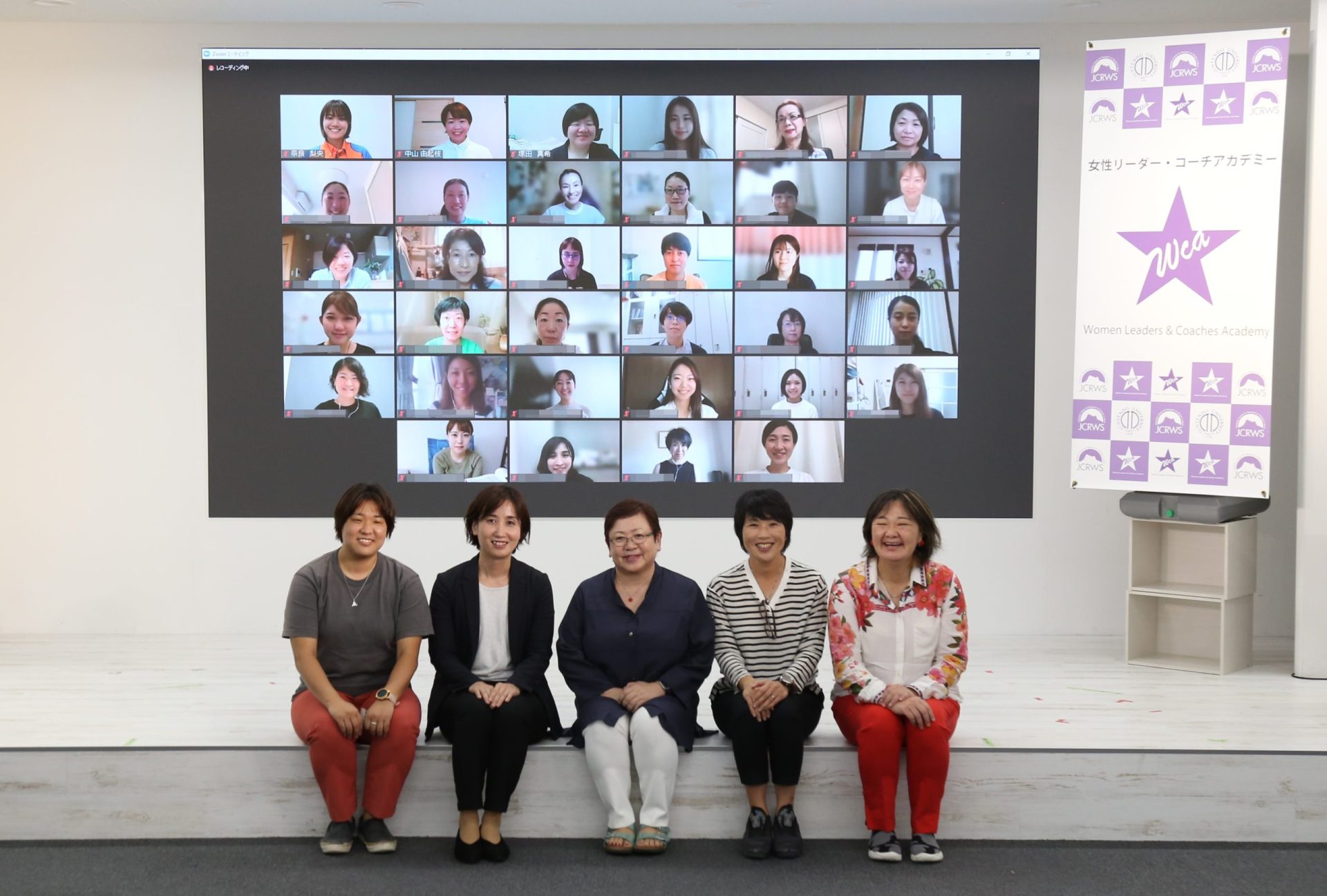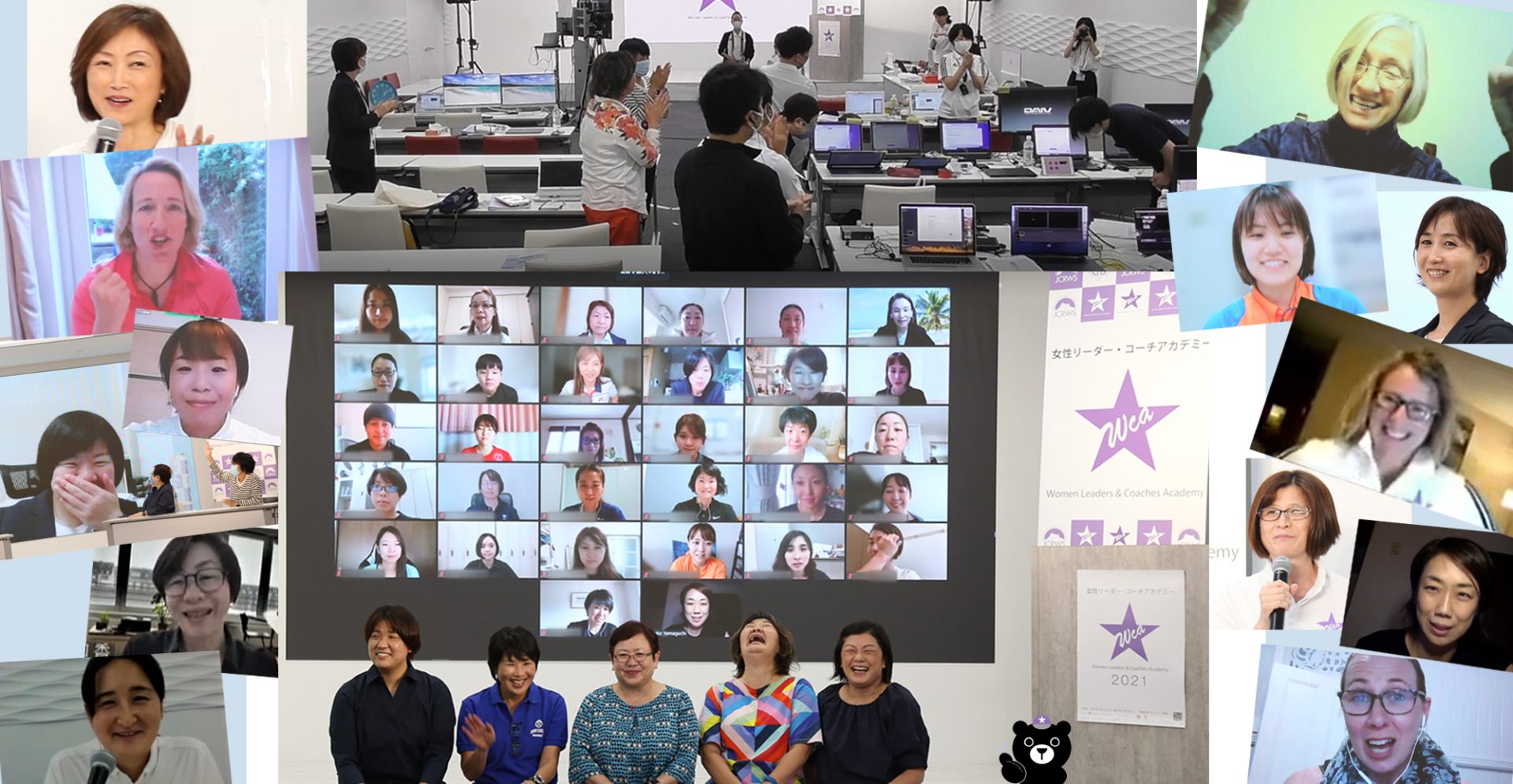
Program
Date : September 7-9, 2021
-
Day1
-
01Opening(Self Introduction)
-
02Women in Sport I
Dr. Etsuko Ogasawara, Executive Director, Japanese Center for Research on Women in Sport (JCRWS)
-
03Professional Coaching
Ms. Marlene Bjornsrud, Former Executive Director,
Alliance of Women Coaches (WeCOACH) -
04 Conditioning for Female Athletes
Dr. Natsue Koikawa, Deputy Director, Japanese Center for Research on Women in Sport (JCRWS)
-
05Sports Nutrition
Dr. Shihoko Suzuki, Professor, Faculty of Health and Welfare, Nutrition Major, Kanagawa University of Human Services
-
06Sport and Gender
Dr. Rieko Yamaguchi, Associate Professor, Faculty of Business Administration, Josai University
Ms. Miyuki Kobayashi, Board member of WE LEAGUE (Women Empowerment League) -
07Leadership & Collaboration
Ms. Lisa O’Keefe, Director of Insight at Sport England
-
-
Day2
-
08Motivation Strategy for Coaches
Dr. Nicole LaVoi, Co-Director, Tucker Center for Research on Girls & Women in Sport, University of Minnesota
-
09Mental Training Associated with Thinking and Sorting through Emotions
Ms. Miyako Tanaka-Oulevey, President, Polygone Inc.
-
10CoachDISC Program
Ms. Liz Masen, Client Director at Athlete Assessments
Dr. Maki Itoh, Associate Professor, Sport Management Department of Sports and Health Studies, Hosei University -
11CoachDISC Case Study
Ms. Maki Moriya, President, Laurelgate Co., Ltd.
-
12Diversity in Sport
Ms. Aya Noguchi, Assistant Professor, School of Health and Sport Science, Juntendo University
-
13Women in Sport II
Dr. Kaori Yamaguchi, Professor, Faculty of Sports and Health Science, University of Tsukuba
-
-
Day3
-
14Navigating the Future
for Women Sports LeadersPanelists:
Ms. Natsue Koikawa, Deputy Director, Japanese Center for Research on Women in Sport (JCRWS)
Ms. Akiko Adachi, Leifras Co., Ltd.
Ms. Maki Tsukada, Instructor, Tokai University School of Physical Education Department of Judo and Kendo
Ms. Yukie Nakayama, Hitachi Construction Machinery Co., Ltd. Clay shooting club
Dr. Rio Nara, Assistant Professor, Faculty of Health Science, Field of Health and Sports Niigata University of Health and Welfare
Coordinator:
Dr. Etsuko Ogasawara, Executive Director, Japanese Center for Research on Women in Sport (JCRWS) -
15Networking
Ms. Miyuki Kobayashi, Board member of WE LEAGUE (Women Empowerment League)
-
16 Closing Ceremony
-
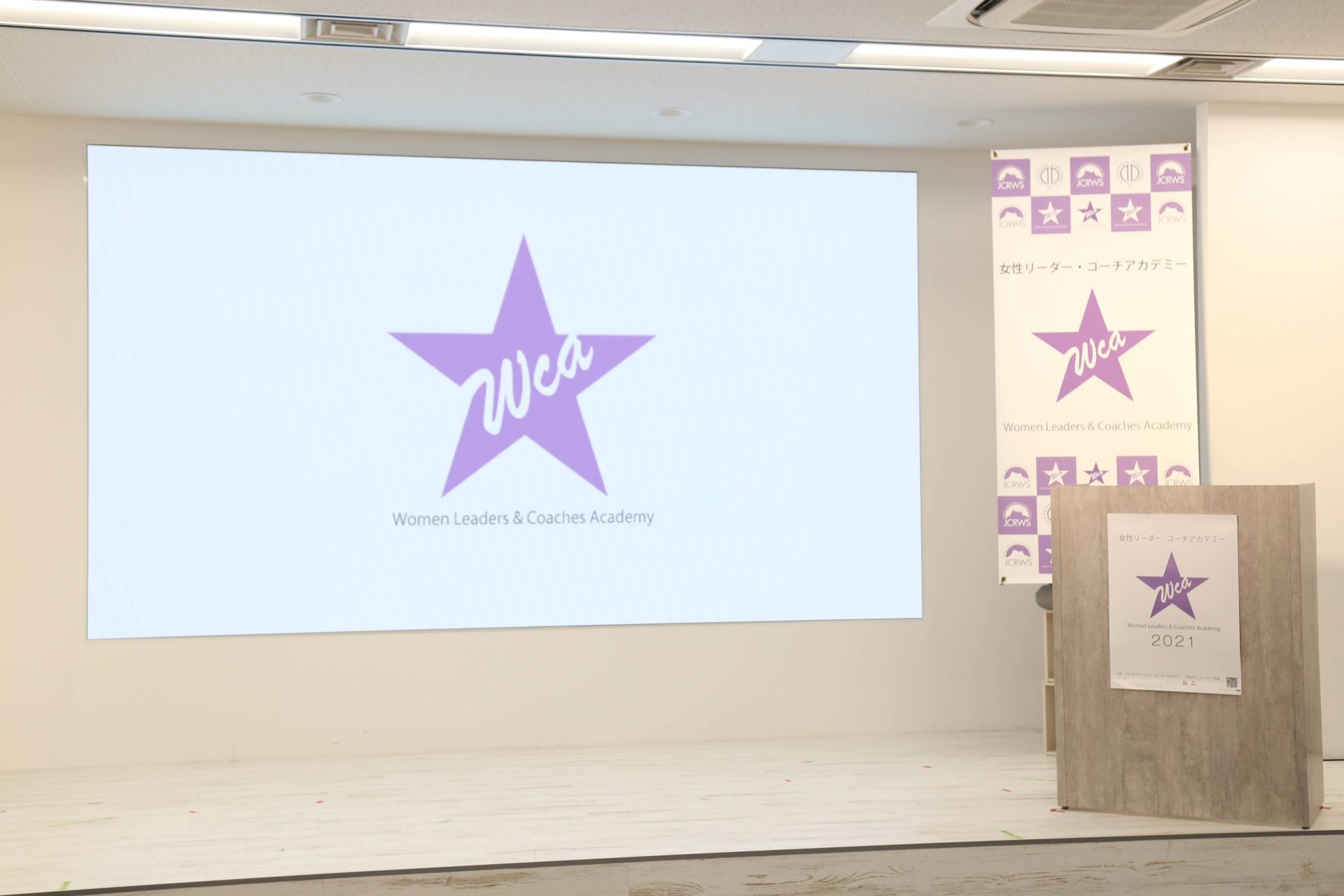
Online VenueF Studio (Shibuya, Tokyo)
OrganizerJapanese Center for Research on Women in Sport (JCRWS)
Co-OrganizerJapanese Association for Women in Sport (JWS) , WeCOACH
Supporting Companyadidas Japan K.K.,
Unicharm Corporation
01Opening
FacilitatorsDr. Natsue Koikawa, Deputy Director, JCRWS
Ms. Akiko Sekiguchi, staff, JCRWS
Academy was held again online this year
Contents improved to become even more fulfilling!
Continuing from last year, the "WCA 2021" was held online due to the impact of the new coronavirus infection (COVID-19). This year, 31 participants of wide generations from all over Japan who are involved in various sports, gathered online seeking to learn.
Dressed in their own team wear, participants introduced themselves. As the participants shared not only their affiliation and positions but introduced themselves by adding some sense of fun in their expressions, participants were able to get an idea of each other’s personalities. It was a good warm-up for the mind and for the body to get ready for the online sessions.
02Women in Sport I
LecturerDr. Etsuko Ogasawara, Executive Director,
Japanese Center for Research on Women in
Sport (JCRWS)
A new phase in women's sport
Gender equality promoted in Tokyo 2020
In the first lecture "Women and Sport I," participants first studied the history of women's sport. Women's sport experienced a great deal of movement in the past 20 years or so. In the lecture, Dr. Ogasawara explained how the major sports organizations in Japan signed the “Brighton Plus Helsinki 2014 Declaration” in 2017 as a process to change the male-dominated sports culture to a gender-equal sports culture. She also mentioned that movements such as the IOC Gender Equality Review Project took place, and how the development of women’s sport was embodied later on in “Tokyo 2020”. She also emphasized the need for high-level education and strong role models based on her experiences at the World Conference on Women in Sport and the WCA in the United States. Dr. Ogasawara concluded her speech by encouraging the participants with her words, "I hope you will do your best to absorb knowledge like a sponge and lead the younger generation. I need everyone’s help."
03Professional Coaching
LecturerMs. Marlene Bjornsrud, Former Executive
Director, Alliance of Women Coaches
(WeCOACH)
TranslatorDr. Maki Itoh, Associate Professor, Sport
Management Department of Sports and Health
Studies, Hosei University
What is the significance of a female coach?
Thinking about how a coach should behave
Ms. Marlene Bjornsrud, who connected live from Colorado Springs where the American Olympic and Paralympic Committee is located, started the lecture by praising the success of "Tokyo 2020" despite the challenges presented by the pandemic.
After showing a video on "Why Female Coaches are Important", Ms. Marlene invited a Japanese female coach to the zoom meeting who is expected to become a role model for the participants. She attended the NCAA WCA five years ago and has since served as an assistant coach for a Japanese men's professional basketball team and at a university in the United States belonging to the NCAA "Division I". Listening to her speech, participants were allowed to think about what are the important factors of a professional coach.
Finally, when Ms. Marlene reminded the participants that it is also important to care for themselves just like they do for their athletes, the participants seemed to realize a different aspect of how a coach should behave.
04Conditioning for Female Athletes
LecturerDr. Natsue Koikawa, Deputy Director,
Japanese Center for Research on Women in Sport
(JCRWS)
For athletes to engage in competitions in good health
Learn about "Female Athlete Triad (FAT)"
First, the latest information based on research data was shared in order to simply explain the "Female Athlete Triad (FAT)". Participants also learned new knowledge as Dr. Koikawa shared the latest information concerning the prevention and treatment of FAT.
In addition, Dr. Natsue Koikawa, who conducts research and also teaches at the same time while she even coaches, said, "It is more efficient to rely on a reliable expert" and emphasized that you don’t have to think of doing everything on your own. She explained that it is your strength to know a specialist who can provide appropriate treatment and support. She also mentioned that WCA connections are the perfect network that you should take advantage of, and recommended to use the network for coaching activities.
05Sports Nutrition
LecturerDr. Shihoko Suzuki, Professor, Faculty of Health
and Welfare, Nutrition Major, Kanagawa
University of Human Services
The human body is not that considerate
Sports nutrition based on evidence
From a detailed and practical perspective, Dr. Shihoko Suzuki gave an enthusiastic speech on the role of a certified sports dietician and the importance of linking training plans and nutrition support to improve the performance of athletes. Moreover, she talked a lot about the nutritional support she provided to the Japanese athletes taking part in the 2020 Tokyo Paralympics using her lively narrative technique.
In addition, she gave evidence-based explanations on her approach to energy and nutritional intake aimed to improve the performance of junior and top athletes.
Finally, she concluded that sports nutrition management is important in order to protect the body and improve competition ability since the human body is not that considerate of you.
06Sport and Gender
LecturerDr. Rieko Yamaguchi, Professor, Faculty of
Business Administration, Josai University
Ms. Miyuki Kobayashi, Board member of WE
LEAGUE (Women Empowerment League)
Understanding the current situation and structure of
sports in Japan
Think about what you can do
Why is it necessary to develop more "female leaders" in sports and why is it so difficult? In her lecture, Dr. Rieko Yamaguchi explained that the reason comes from the pervasive social structure in Japan. She also explained the challenges faced by women that are related to this issue by sharing various concepts. She pointed out that gender issues should not be regarded as an opposite axis of "female vs. male", and we should not misunderstand that both females and males find "difficulties in their lives" and a “sense of privilege" develop among them in the same structure.
Ms. Miyuki Kobayashi introduced examples of sexual harassment that occurred in the sports environment in Japan. She also explained the relationship between the gender structure that was mentioned in the first half of the lecture and talked about the factors that make it difficult for sexual harassment to become apparent in the sports environment. In summary, even though we hear the word "gender equality" more often than before, it is anything but easy to change the gender structure that is deeply ingrained in our minds, institutions, customs, and behaviors. However, she confirmed that the first step to gender equality depends on how sensitively we can realize the gender structure.
07Leadership & Collaboration
LecturerMs. Lisa O’Keefe, Director of Insight at Sport
England
TranslatorMs. Aya Noguchi, Assistant Professor, School of
Health and Sport Science, Juntendo University
Don't be afraid in any situations
Leadership and collaboration in the Covid-19 crisis
Ms. Lisa O'Keefe, who has developed various sports participation campaigns in England, gave a lecture on "leadership" and "collaboration" as the leader of the team who launched the campaign, based on her experience under the COVID-19 crisis.
Ms. O’Keefe investigated the current situation regarding sports participation when lockdown began in the UK, and as a result, she found out that there was an apparent difference in sports activities between men and women. The results showed the differences and characteristics of men and women's thoughts and lifestyles, so she generously shared her thoughts on how you should respond to the situation as a leader toward improvement.
Finally, she enthusiastically stated that it is important for leaders to set goals, consider some scenarios beforehand, and provide a clear path for improvement.
08Motivation Strategy for Coaches
LecturerDr. Nicole LaVoi, Co-Director, Tucker Center for
Research on Girls & Women in Sport,
University of Minnesota
TranslatorMs. Aya Noguchi, Assistant Professor, School of
Health and Sport Science, Juntendo University
Thinking about why you coach
Focus on what you can control
At the beginning of the second day of the academy, Dr. Nicole LaVoi gave a lecture on the obstacles that are caused by "being a woman" and "being a coach" in the sports environment. She explained about the current environment and systems surrounding female coaches based on evidence and highlighted the need to work hand in hand using a bottom-up approach to transform the "system that does not support women and does not place value on women" in the sports environment
In addition, she reported that there is a possibility that women can fall into a "burnout" when they coach. In order to overcome this, she introduced that it is effective to "think again the reasons why you coach" and "focus on the points that you can control". These solutions resolved the anxieties and doubts that have troubled the participants until now.
Finally, she concluded her lecture by saying, "Never forget that you are very important to the athletes" and sent her words of cheer to the participants.
09Mental Training Associated
with Thinking and Sorting through Emotions
LecturerMs. Miyako Tanaka-Oulevey, President,
Polygone Inc.
Be aware of your own feelings and understand your
habit of thinking
Control the behavior that comes from it
Ms. Miyako Tanaka introduced her own experiences as an active athlete and coach and shared her emotions she felt at that time as well as the movements in her own mind, and how she dealt with those emotions. She carefully explained what stress coping is, and emphasized the importance of knowing the types of emotions and becoming conscious of one's own emotions (all emotions are right). She also mentioned the importance of understanding the habit of thinking and controlling the behavior that emerges from it.
She strongly pointed out that the role of a mental coach is not to lead the athletes (teams) to victory but to build up the minds of each and every one of them in order to perform as usual in an important situation.
10CoachDISC Program
LecturerMs. Liz Masen, Client Director at Athlete
Assessments
Dr. Maki Itoh, Associate Professor, Sport
Management Department of Sports and Health
Studies, Hosei University
Understand your behavioral styles and others
Using different coaching styles (behaviors) in
accordance with the situation
Ms. Liz Mason explained in detail that CoachDISC not only helps you understand your own coaching style but also helps you understand others. She also pointed out that it is important to focus on your "behavior" which can be changed, and not on the "personality" which cannot be changed./p>
She appealed that in order to achieve the final team goal and to achieve the desired result as a coach, we should utilize the CoachDISC to select the appropriate coaching style (behavior). After hearing Ms. Liz Masen’s lecture, most of the participants were carefully looking over their CoachDISC results which they completed beforehand.
11CoachDISC Case Study
LecturerMs. Maki Moriya, President, Laurelgate Co.,Ltd.
Learning the appropriate points to deal with
and giving feedback to athletes with different
behavior styles
In order to utilize what we all learned in the previous lecture "CoachDISC Program" in the sports environment, Ms. Maki Moriya allowed the participants to do a case study that assumed interaction with athletes with different characteristics (behavioral styles). Each group discussed "how to interact with the athlete" and "how to give feedbacks".
Various opinions came out from different groups during the presentation to share what they discussed within each group which made it a lively discussion, and the lecture deepened the understanding of how to use the CoachDISC.
12Diversity in Sport
LecturerMs. Aya Noguchi, Assistant Professor, School of
Health and Sport Science, Juntendo University
Learn about LGBTQ + and SOGIE
Think about the future sports environment
Ms. Aya Noguchi focused on "sexual diversity" among all kinds of diversity and gave an easy-to-understand explanation of the details of "LGBTQ +" and "SOGIE".
She also introduced athletes that participated in the “Tokyo 2020” who came out as transgender, female athletes with hyperandrogenism, and athletes who announced LGBTQ + and explained the reason why LGBTQ + and sports are related and frequently discussed
In the end, she mentioned that she enthusiastically wants to work along with the participants to think about how we can create a "sports environment where you can be yourself."
13Women in Sport II
LecturerDr. Kaori Yamaguchi, Professor, Faculty of
Sports and Health Science, University of
Tsukuba
Expand your network while cultivating your
set of values
Bring motivation to the sports environment in Japan
Dr. Kaori Yamaguchi explained the need for female leaders (executives) and coaches, as well as the trends and efforts to improve the status of women in the Japanese sports environment over the past few years by sharing her own experience and perspectives
In order to develop the sports environment, she emphasized the need to hold clear opinions, possess a woman’s perspective, and disseminate your own values. She said, "Don’t forget that your junior colleagues may walk along the same path that you walked.", and sent an enthusiastic message to the participants. Dr. Kaori Yamaguchi concluded her lecture by saying, "Let's bring good motivations to the sports environment together."
14Navigating the Future for Women Sports Leaders
Concrete and powerful messages
To future female leaders from the seniors
Panelists:
Dr. Natsue Koikawa, Deputy Director, Japanese Center for Research on Women in Sport
Ms. Akiko Adachi, Leifras Co., Ltd.
Ms. Maki Tsukada, Instructor, Tokai University School of Physical Education Department of Judo and Kendo
Ms. Yukie Nakayama, Hitachi Construction Machinery Co., Ltd. Clay shooting club
Dr. Rio Nara, Assistant Professor, Faculty of Health Science, Field of Health and Sports Niigata University of Health and Welfare
Coordinator:
Dr. Etsuko Ogasawara, Executive Director, Japanese Center for Research on Women in Sport
This year, WCA graduates who took part in the "Tokyo 2020" in various positions were invited as panelists to hold discussions during the academy.
Ms. Maki Tsukada (WCA 1st graduate member), who won the Women’s 78kg+ category gold medal at the 2004 Athens Olympics Judo competition, shared her experiences as a coach and talked about how we should support the athletes during this COVID-19 crisis when athletes can see no light ahead, and talked about how difficult it is to induce the athletes to peak for competitions.
As an active athlete participating in the Olympics 5 times, Yukie Nakayama (WCA 2nd graduate member) shared the challenges and troubles she faced when the 2020 Tokyo Olympics was postponed for one year and about the various accidents that occurred during that time. She shared behind the scene episodes concerning how she struggled with the issues and how all the people surrounding her gave her support which led her to finish 5th place despite the difficult situation.
Rio Nara (WCA 1st graduate member), who is a coach of the swimming team at Niigata University of Health and Welfare, developed the first Olympic athlete for the first time since 17 years from its foundation of the swimming club at a local university. She talked about the team management philosophy of the university swimming team, her coaching strategy to female athletes, and her struggle concerning individual support for female athletes.
Akiko Adachi (WCA 1st graduate member), a Goalball gold medalist at the 2012 London Paralympics and served as a commentator for all the Japan team live telecast Goalball games for both men and women at the Tokyo 2020 Paralympics, took on the challenge to provide television commentary for the very first time despite her visual impairment. Regarding her challenge, she mentioned that she attained the WCA's teaching of "Passing down to the next generation", and talked about how she succeeded in the challenge and what were some difficulties she faced during the challenge.
During the question-and-answer session, participants raised questions concerning the anxieties that they are feeling and specific questions regarding how they should deal with the athletes, and the panelists generously gave advice. Although the session was held online, we could feel the spirit of the participants from the screen as they listened carefully so that they will not miss hearing the clues from their seniors having a rare experience.
15Networking
LecturerMs. Miyuki Kobayashi, Executive board
member of WE LEAGUE (Women
Empowerment League)
A new statement from the "Karuizawa Declaration"
Utilize the network in order to realize
Ms. Miyuki Kobayashi, who is the director of the Philosophy Promotion Department in Japan's first women's professional soccer league called ".WE League" which started in September this year, first explained the vision and initiatives of the WE League. In the WE League, there is a league entry criteria based on their philosophy (utilization of female executives and leaders, establishment of daycare centers in stadiums, etc.), and they are making epoch-making efforts such as visualizing the current situation of each club and making each clubs to submit their promotion status.
In the WCA, she introduced the "Karuizawa Declaration" which was declared in the first academy and confirmed the ratio of female coaches in each Japan team of the "Tokyo 2020" Olympics and Paralympics. Moreover, she urged each participant to deliver their own statements. As a clue to empowerment, Ms. Kobayashi introduced the phrase "leaders take time for their people" which she was impressed by and concluded her lecture by saying, "Let's expand our wonderful network."
16Closing Ceremony
Set a deadline for your dreams and goals
Let's make it happen
At the completion ceremony, the "Best Leader Award", which was selected by the colleagues that studied together during the three days, was announced. Nanami Sugimoto was selected and was given a commemorative plaque and received a message of encouragement from presenter Akiko Adachi.
Although the academy was held online this year as well, the instructors commented that it was an academy that let you feel the "enthusiasm of the participants" as if they were gathering at the same venue. The facial expressions of the participants listening to the heartfelt messages from each instructor looked as if they were full of power and courage.
A certificate of completion was given to all the participants. Finally, the Executive Director of the Japanese Center for Research on Women in Sport (JCRWS) hosting the academy responded to the statements issued by the participants in the networking lecture by saying, " I want you to set a deadline for your dreams and goals and persevere to achieve them.” She continued, “Let's all move forward together in women's sports and the sports environment in Japan." and sent out a hot message to all the participants.
Herewith, the "WCA 7th graduate members" were formed with courage and new connections in both hands, and "WCA 2021" came to an end.


